- Skip to main content
- Keyboard shortcuts for audio player


Coronavirus Updates
The u.s. lifts the pandemic travel ban and opens the doors to international visitors.
The Associated Press

Passengers walk through Salt Lake City International Airport, Oct. 27, 2020. More than a year and a half after COVID-19 concerns prompted the U.S. to close its borders to international travelers from countries including Brazil, China, India, South Africa, the U.K. and much of Europe, restrictions are shifting to focus on vaccine status. Rick Bowmer/AP hide caption
Passengers walk through Salt Lake City International Airport, Oct. 27, 2020. More than a year and a half after COVID-19 concerns prompted the U.S. to close its borders to international travelers from countries including Brazil, China, India, South Africa, the U.K. and much of Europe, restrictions are shifting to focus on vaccine status.
The U.S. lifted restrictions Monday on travel from a long list of countries including Mexico, Canada and most of Europe, allowing tourists to make long-delayed trips and family members to reconnect with loved ones after more than a year and a half apart because of the pandemic.
Starting Monday, the U.S. is accepting fully vaccinated travelers at airports and land borders, doing away with a COVID-19 restriction that dates back to the Trump administration. The new rules allow air travel from previously restricted countries as long as the traveler has proof of vaccination and a negative COVID-19 test. Land travel from Mexico and Canada will require proof of vaccination but no test.
Airlines are expecting more travelers from Europe and elsewhere. Data from travel and analytics firm Cirium showed airlines are increasing flights between the United Kingdom and the U.S. by 21% this month over last month.
The change will have a profound effect on the borders with Mexico and Canada, where traveling back and forth was a way of life until the pandemic hit and the U.S. shut down nonessential travel.
Malls, restaurants and Main Street shops in U.S. border towns have been devastated by the lack of visitors from Mexico. On the boundary with Canada, cross-border hockey rivalries were community traditions until being upended by the pandemic. Churches that had members on both sides of the border are hoping to welcome parishioners they haven't seen during COVID-19 shutdown.
Loved ones have missed holidays, birthdays and funerals while nonessential air travel was barred, and they are now eager to reconnect.
River Robinson's American partner wasn't able to be in Canada for the birth of their baby boy 17 months ago because of pandemic-related border closures. She was thrilled to hear the U.S. is reopening its land crossings to vaccinated travelers.
"I'm planning to take my baby down for the American Thanksgiving," said Robinson, who lives in St. Thomas, Ontario. "If all goes smoothly at the border I'll plan on taking him down as much as I can. Is crazy to think he has a whole other side of the family he hasn't even met yet."
According to the Centers for Disease Control and Prevention, the U.S. will accept travelers who have been fully vaccinated with any of the vaccines approved for emergency use by the World Health Organization, not just those in use in the U.S. That means that the AstraZeneca vaccine, widely used in Canada, will be accepted.
For air travelers, the airlines are required to verify vaccine records and match them against ID, and if they don't, they could face fines of up to nearly $35,000 per violation. Airlines will also collect information about passengers for contact tracing efforts. There will be CDC workers spot-checking travelers for compliance in the U.S. At land borders, Customs and Border Protection agents will check vaccine proof.
The moves come as the U.S. has seen its COVID-19 outlook improve dramatically in recent weeks since the summer delta surge that pushed hospitals to the brink in many locations.
Mobile Menu Overlay
The White House 1600 Pennsylvania Ave NW Washington, DC 20500
A Proclamation on Advancing the Safe Resumption of Global Travel During the COVID- 19 Pandemic
The continued spread of the SARS-CoV-2 virus that causes coronavirus disease 2019 (COVID-19) is a global threat to our health and safety. COVID-19 has resulted in more than 733,000 deaths in the United States and more than 4,932,000 deaths worldwide. New variants of SARS-CoV-2 have also emerged globally, and variants that are more transmissible or cause more severe disease than the original virus strain are identified by the United States Government SARS-CoV-2 Interagency Group as variants of concern. Globally, as of October 20, 2021, 166 countries have reported cases of the B.1.617.2 (Delta) variant, a variant of concern that spreads more easily than previously discovered variants of SARS-CoV-2. The potential emergence of a variant of high consequence — one that significantly reduces the effectiveness of prevention measures or medical countermeasures — is also a primary public health concern.
It is the policy of my Administration to implement science-based public health measures, across all areas of the Federal Government, to prevent further introduction, transmission, and spread of COVID-19 into and throughout the United States, including from international air travelers. The Centers for Disease Control and Prevention (CDC) within the Department of Health and Human Services has determined that the best way to slow the spread of COVID-19, including preventing infection by the Delta variant, is for individuals to get vaccinated. According to the CDC, vaccinated individuals are 5 times less likely to be infected and 10 times less likely to experience hospitalization or death due to COVID-19 than unvaccinated individuals. Other mitigation measures are also critical to slowing the spread of COVID-19. These measures include testing and mask-wearing, which are particularly important strategies to limit the spread of COVID-19 from asymptomatic and pre-symptomatic individuals, as well as self-quarantining and self-isolating. But vaccination is the most important measure for reducing the risk of COVID-19 transmission and for avoiding severe illness, hospitalization, and death.
Substantial efforts are being made to increase vaccination rates across the globe. The availability of COVID-19 vaccines is rising, and over 6 billion doses have been administered globally. As of October 24, 2021, 29 countries have a COVID-19 vaccination rate higher than 70 percent, many countries are making efforts to encourage COVID-19 vaccination for their populations, and some countries are considering or adding proof of vaccination requirements as conditions for entry. Many low-income countries continue to have limited vaccine availability, but the United States is leading a global effort to donate hundreds of millions of vaccine doses where they are needed the most.
In light of these facts and circumstances, I have determined that it is in the interests of the United States to move away from the country-by-country restrictions previously applied during the COVID-19 pandemic and to adopt an air travel policy that relies primarily on vaccination to advance the safe resumption of international air travel to the United States. This proclamation governs the entry into the United States of noncitizen nonimmigrants — that is, noncitizens who are visiting the United States or otherwise being admitted temporarily — traveling to the United States by air. It suspends the entry of unvaccinated noncitizen nonimmigrants, except in limited circumstances, and it ensures that the entry of unvaccinated noncitizen nonimmigrants is consistent with applicable health and safety determinations made by the Director of the CDC, including a requirement that, where appropriate, such individuals agree and arrange to become fully vaccinated against COVID-19 upon their arrival. My Administration has also taken action, apart from this proclamation, to ensure that noncitizen immigrants are vaccinated prior to air travel to the United States. Together, these policies aim to limit the risk that COVID-19, including variants of the virus that causes COVID-19, is introduced, transmitted, and spread into and throughout the United States, potentially overwhelming United States healthcare and public health resources, endangering the health and safety of the American people, and threatening the security of our civil aviation system. Given the resumption of air travel as worldwide restrictions due to the COVID-19 pandemic begin to ease, these policies will, consistent with the measures required by Executive Order 13998 of January 21, 2021 (Promoting COVID-19 Safety in Domestic and International Travel), advance the safety and security of the air traveling public, the government personnel responsible for ensuring the security of air travel, and the millions of individuals employed by the United States air travel industry, as well as their families and communities, while also allowing the domestic and global economy to continue its recovery from the effects of the COVID-19 pandemic.
NOW, THEREFORE, I, JOSEPH R. BIDEN JR., President of the United States, by the authority vested in me by the Constitution and the laws of the United States of America, including sections 1182(f) and 1185(a) of title 8, United States Code, and section 301 of title 3, United States Code, hereby find that it is in the interests of the United States to advance the resumption of international travel to the United States, provided necessary health and safety protocols are in place to protect against the further introduction, transmission, and spread of COVID-19 into and throughout the United States. I further find that vaccination requirements are essential to advance the safe resumption of international travel to the United States and that the unrestricted entry of persons described in section 2 of this proclamation would, except as provided for in section 3(a) of this proclamation, be detrimental to the interests of the United States, and that their entry should be subject to certain restrictions, limitations, and exceptions. I therefore hereby proclaim the following:
Section 1. Revocation of Country-Specific Suspensions and Limitations on Entry. Proclamation 9984 of January 31, 2020 (Suspension of Entry as Immigrants and Nonimmigrants of Persons Who Pose a Risk of Transmitting 2019 Novel Coronavirus and Other Appropriate Measures To Address This Risk), Proclamation 9992 of February 29, 2020 (Suspension of Entry as Immigrants and Nonimmigrants of Certain Additional Persons Who Pose a Risk of Transmitting 2019 Novel Coronavirus), Proclamation 10143 of January 25, 2021 (Suspension of Entry as Immigrants and Nonimmigrants of Certain Additional Persons Who Pose a Risk of Transmitting Coronavirus Disease 2019), and Proclamation 10199 of April 30, 2021 (Suspension of Entry as Nonimmigrants of Certain Additional Persons Who Pose a Risk of Transmitting Coronavirus Disease 2019), are revoked.
Sec. 2. Global Suspension and Limitation on Entry of Certain Individuals Who Are Not Fully Vaccinated Against COVID-19. (a) The entry into the United States by air travel of noncitizens who are nonimmigrants and who are not fully vaccinated against COVID-19 is suspended and limited, except as provided in section 3 of this proclamation. This suspension and limitation on entry applies only to air travelers to the United States and does not affect visa issuance. (b) Any noncitizen who is a nonimmigrant, who is not fully vaccinated against COVID-19, and who, notwithstanding section 2(a) of this proclamation, is permitted to enter the United States by air travel pursuant to section 3(b) of this proclamation must agree to comply with applicable public health precautions established by the Director of the CDC to protect against the public health risk posed by travelers entering into the United States. Such precautions may be related to vaccination, testing, mask-wearing, self-quarantine, and self-isolation, as determined by the Director of the CDC, and may include requirements that individuals: (i) provide proof of pre-departure testing for COVID-19, as determined by the Director of the CDC; (ii) take precautions during air travel to protect against the further introduction, transmission, and spread of COVID-19, including by wearing a face mask, as determined by the Director of the CDC; (iii) provide proof of having arranged for post-arrival testing for COVID-19, as determined by the Director of the CDC; and (iv) provide proof of having arranged to self-quarantine or self-isolate after arriving in the United States, as determined by the Director of the CDC. (c) Any noncitizen who is a nonimmigrant, who is not fully vaccinated against COVID-19, and who, notwithstanding section 2(a) of this proclamation, is permitted to enter the United States by air travel pursuant to section 3(b) of this proclamation must agree to become fully vaccinated against COVID-19 within 60 days of arriving in the United States, within some other timeframe as determined by the Director of the CDC, or as soon as medically appropriate as determined by the Director of the CDC, and must provide proof of having arranged to become fully vaccinated against COVID-19 after arriving in the United States, unless: (i) the noncitizen’s intended stay is sufficiently brief, as determined by the Director of the CDC; (ii) the noncitizen is one for whom, given their age, requiring vaccination would be inappropriate, as determined by the Director of the CDC; (iii) the noncitizen has participated or is participating in certain clinical trials for COVID-19 vaccination, as determined by the Director of the CDC; (iv) COVID-19 vaccination is medically contraindicated for the noncitizen, as determined by the Director of the CDC; (v) the noncitizen is described in section 3(b)(i) or 3(b)(ii) of this proclamation and has previously received a COVID-19 vaccine that is authorized or approved by the noncitizen’s country of nationality, as determined by the Director of the CDC, in consultation with the Secretary of State; or (vi) the Director of the CDC otherwise determines that COVID-19 vaccination is not warranted for the noncitizen.
Sec. 3. Scope of Suspension and Limitation on Entry. (a) The suspension and limitations on entry in section 2 of this proclamation shall not apply to any noncitizen seeking entry as a crew member of an airline or other aircraft operator if such crew member or operator adheres to all industry standard protocols for the prevention of COVID-19, as set forth in relevant guidance for crew member health issued by the CDC or by the Federal Aviation Administration in coordination with the CDC. (b) The suspension and limitations on entry in section 2(a) of this proclamation shall not apply to: (i) any noncitizen seeking entry into or transiting the United States pursuant to one of the following nonimmigrant visa classifications: A-1, A-2, C-2, C-3 (as a foreign government official or immediate family member of an official), E-1 (as an employee of TECRO or TECO or the employee’s immediate family members), G-1, G-2, G-3, G-4, NATO-1 through NATO-4, or NATO-6 (or seeking to enter as a nonimmigrant in one of those NATO classifications); (ii) any noncitizen whose travel falls within the scope of section 11 of the United Nations Headquarters Agreement or who is traveling pursuant to United States legal obligation (as evidenced by a letter of invitation from the United Nations or other documentation showing the purpose of such travel); (iii) any noncitizen for whom, given their age, requiring vaccination would be inappropriate, as determined by the Director of the CDC, taking into account global vaccine availability for individuals in that age group; (iv) any noncitizen who has participated or is participating in certain clinical trials for COVID-19 vaccination, as determined by the Director of the CDC; (v) any noncitizen for whom accepted COVID-19 vaccination is medically contraindicated, as determined by the Director of the CDC; (vi) any noncitizen who has been granted an exception by the Director of the CDC for humanitarian or emergency reasons, as determined by the Director of the CDC; (vii) any noncitizen who is a citizen of a foreign country where the availability of COVID-19 vaccination is limited, as identified pursuant to section 4(a)(v) of this proclamation, and who seeks to enter the United States pursuant to a nonimmigrant visa, except for a B-1 or B-2 visa; (viii) any noncitizen who is a member of the United States Armed Forces or who is a spouse or child of a member of the United States Armed Forces; (xi) any noncitizen seeking entry as a sea crew member traveling pursuant to a C-1 and D nonimmigrant visa, if such crew member adheres to all industry standard protocols for the prevention of COVID-19, as set forth in relevant guidance for crew member health by the CDC; or(x) any noncitizen or group of noncitizens whose entry would be in the national interest, as determined by the Secretary of State, the Secretary of Transportation, the Secretary of Homeland Security, or their designees.
Sec. 4. Implementation and Enforcement. (a) The Secretary of Health and Human Services, through the Director of the CDC, shall implement this proclamation as it applies to the public health through such procedures as may be established, and consistent with the CDC’s independent public health judgment, including by: (i) defining and specifying accepted COVID-19 vaccines or combinations of accepted COVID-19 vaccines, and medical contraindications to accepted COVID-19 vaccines or combinations of accepted COVID-19 vaccines, for purposes of this proclamation; (ii) defining whether an individual is fully vaccinated against COVID-19, and specifying acceptable methods of proving that an individual is fully vaccinated against COVID-19, for purposes of this proclamation; (iii) specifying acceptable methods of proving that an individual has arranged to comply with applicable public health requirements and protocols to protect against the further introduction, transmission, and spread of COVID-19 into and throughout the United States, including pre-departure testing, post-arrival testing, post-arrival self-quarantine or self-isolation, and post-arrival vaccination against COVID-19, for purposes of this proclamation; (iv) determining whether certain persons qualify as participants in certain clinical trials for COVID-19 vaccination, for purposes of this proclamation; (v) maintaining a list of countries where the availability of COVID-19 vaccination is limited, with such countries defined as those where less than 10 percent of the country’s total population has been fully vaccinated with any available COVID-19 vaccine or are otherwise determined by the Director of the CDC to qualify as countries where the availability of COVID-19 vaccination is limited; and (vi) establishing other public health measures consistent with this proclamation to protect against the further introduction, transmission, and spread of COVID-19 into and throughout the United States by persons described in section 2 of this proclamation. (b) The Secretary of Transportation and the Secretary of Homeland Security shall take steps to ensure that airlines do not permit noncitizens barred from entry pursuant to this proclamation to board an aircraft traveling to the United States, to the extent permitted by law. (c) Executive departments and agencies shall implement this proclamation, as appropriate and consistent with applicable law, in accordance with such procedures as they may establish. (d) The Secretary of State, the Secretary of Transportation, and the Secretary of Homeland Security shall review any regulations, orders, guidance documents, policies, and any other similar agency actions developed pursuant to Proclamations 9984, 9992, 10143, and 10199 and, as appropriate, shall consider revising or revoking these agency actions consistent with the policy set forth in this proclamation. (e) Nothing in this proclamation shall be construed to affect any individual’s eligibility for asylum, withholding of removal, or protection under the regulations issued pursuant to the legislation implementing the Convention Against Torture and Other Cruel, Inhuman or Degrading Treatment or Punishment, consistent with the laws and regulations of the United States. (f) Nothing in this proclamation shall be construed to limit the CDC’s authority to impose public health requirements and protocols, including on individuals who are fully vaccinated against COVID-19, individuals covered by this proclamation, or individuals not covered by this proclamation, such as United States citizens, lawful permanent residents, or noncitizens traveling on immigrant visas.
Sec. 5. Termination. This proclamation shall remain in effect until terminated by the President. The Secretary of Health and Human Services shall, as circumstances warrant and no more than 60 days after the date of this proclamation and by the final day of each calendar month thereafter, recommend whether the President should continue, modify, or terminate this proclamation.
Sec. 6. Effective Date. This proclamation is effective at 12:01 a.m. eastern standard time on November 8, 2021. This proclamation does not apply to persons aboard a flight scheduled to arrive in the United States that departed prior to 12:01 a.m. eastern standard time on November 8, 2021.
Sec. 7. Severability. It is the policy of the United States to enforce this proclamation to the maximum extent possible to advance the national security, public safety, and foreign policy interests of the United States. Accordingly, if any provision of this proclamation, or the application of any provision to any person or circumstance, is held to be invalid, the remainder of this proclamation and the application of its provisions to any other persons or circumstances shall not be affected thereby.
Sec. 8. General Provisions. (a) Nothing in this proclamation shall be construed to impair or otherwise affect: (i) the authority granted by law to an executive department or agency, or the head thereof; or (ii) the functions of the Director of the Office of Management and Budget relating to budgetary, administrative, or legislative proposals. (b) This proclamation shall be implemented consistent with applicable law and subject to the availability of appropriations. (c) This proclamation is not intended to, and does not, create any right or benefit, substantive or procedural, enforceable at law or in equity by any party against the United States, its departments, agencies, or entities, its officers, employees, or agents, or any other person.
IN WITNESS WHEREOF, I have hereunto set my hand this twenty-fifth day of October, in the year of our Lord two thousand twenty-one, and of the Independence of the United States of America the two hundred and forty-sixth.
JOSEPH R. BIDEN JR.
Stay Connected
We'll be in touch with the latest information on how President Biden and his administration are working for the American people, as well as ways you can get involved and help our country build back better.
Opt in to send and receive text messages from President Biden.
U.S. House votes to end foreign air traveler COVID vaccine requirement
- Medium Text
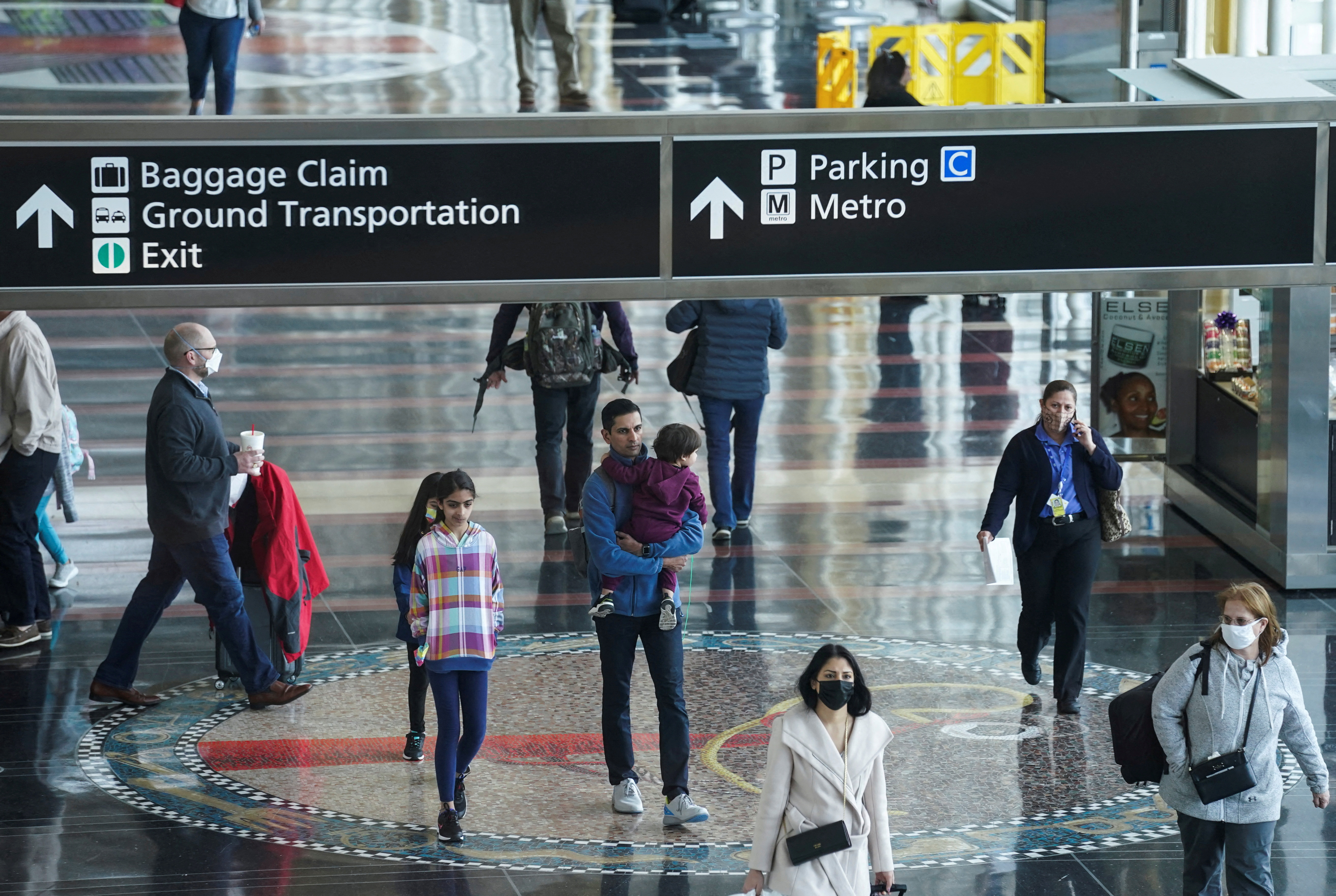
Sign up here.
Reporting by David Shepardson; Editing by Stephen Coates
Our Standards: The Thomson Reuters Trust Principles. New Tab , opens new tab
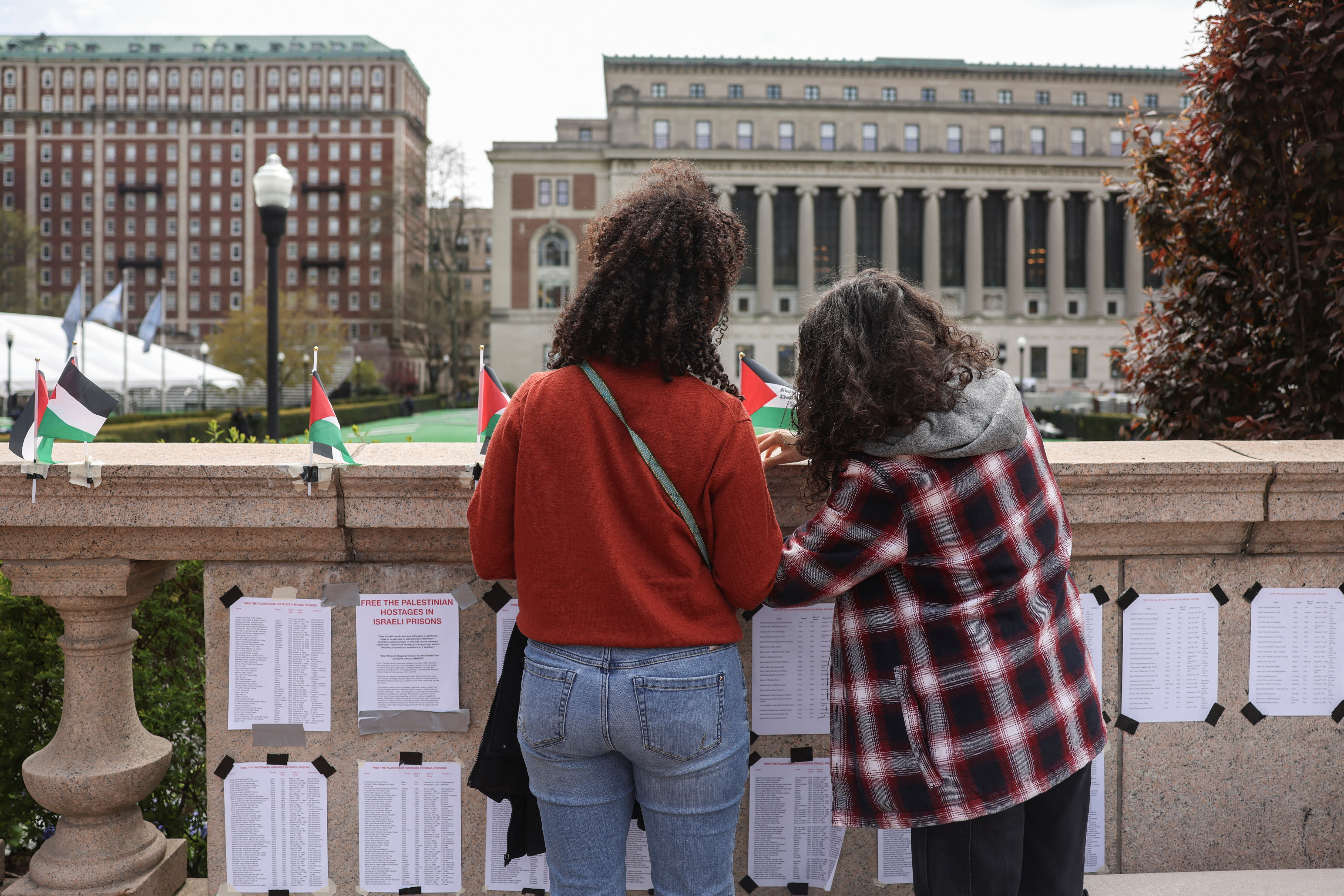
World Chevron

Ukraine's Zelenskiy calls for faster arms supplies as NATO chief visits
President Volodymyr Zelenskiy said on Monday that vital U.S. weapons were starting to arrive in Ukraine in small amounts but deliveries needed to be faster as advancing Russian invasion forces were trying to take advantage.
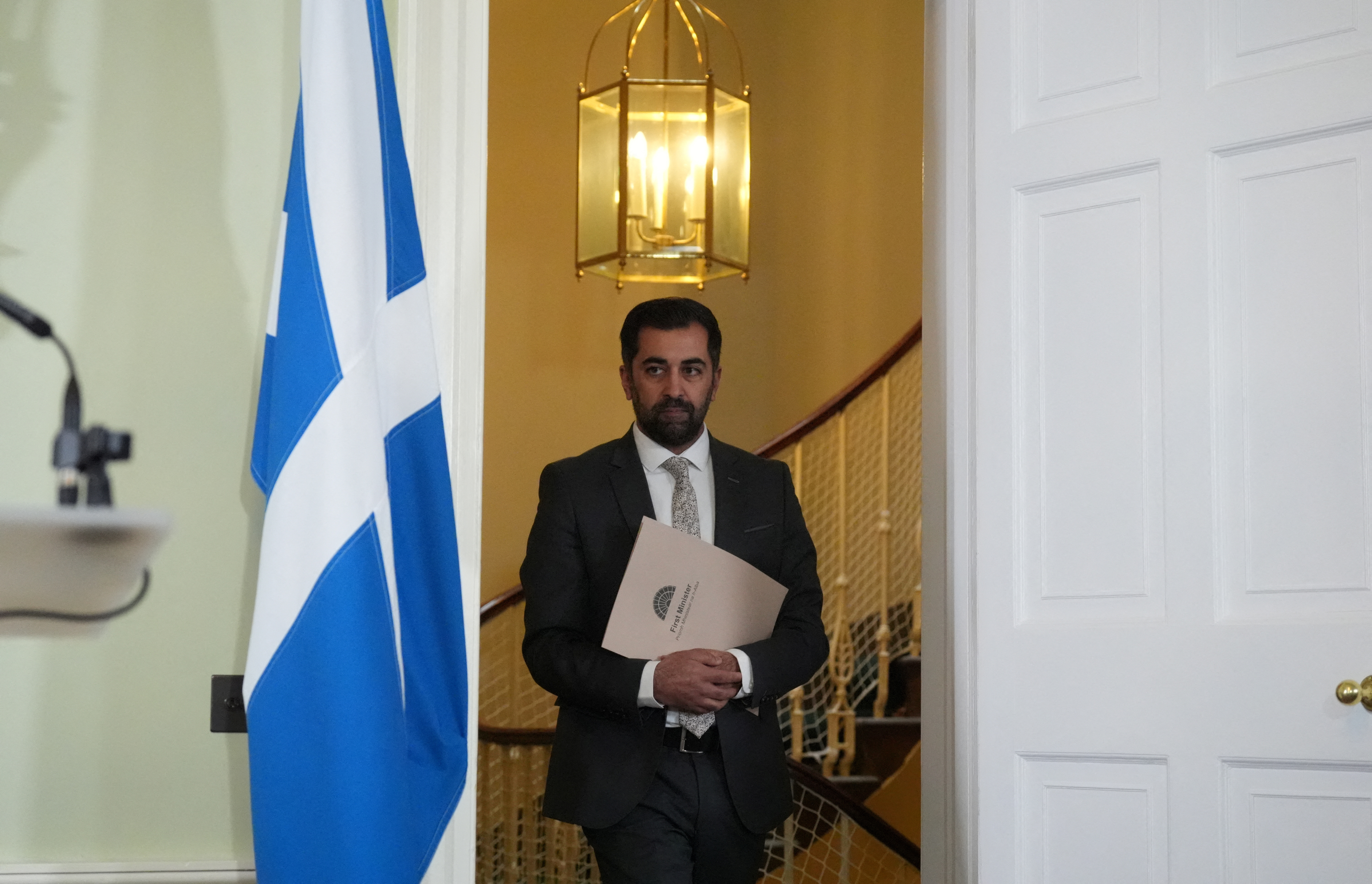
clock This article was published more than 2 years ago
International travel ban ends as borders open to visitors from dozens of countries
Airlines report strong international bookings from travelers who are eager to reunite with loved ones.
From Dublin, Sao Paolo, Brussels, London and other cities around the world, international visitors spilled into U.S. airports Monday in joyous celebrations that marked the end of a pandemic-related travel ban that kept them separated from loved ones for more than 18 months.
“On behalf of the U.S. travel industry: WELCOME,” the U.S. Travel Association said in a tweet Monday morning. “Today marks a monumental and long-awaited day for travelers, long-separated friends and family who can now safely reunite with loved ones.”
The end of a 33-nation ban that kept most non-U.S. citizens out of the country took on a celebratory air Monday, throwing a lifeline to an industry seeking to rebound from the pandemic. It sparked reunions at international airports across the country, but comes as U.S. airlines — which have seen a surge in demand from domestic leisure travelers — are struggling to overcome staffing shortages ahead of the busy travel holiday season. The United States also lifted travel restrictions on land borders, a move that allows fully vaccinated individuals to enter the country from Canada and Mexico. Previously only those whose travel was deemed essential and could show proof of vaccination could enter the United States via land crossing.
Earlier this month, American Airlines angered passengers after it canceled nearly 2,000 flights, citing staffing shortages and bad weather at its Dallas-Fort Worth hub. Southwest Airlines reported losing more than $75 million after it was forced to cancel more than 2,000 flights in October.
Scheduling meltdowns that began amid a summer travel boom have left passengers and observers questioning whether the industry is equipped to handle a continuing rise in passenger levels — and the added responsibilities of screening a growing number of international visitors.
Under the new requirements, airlines are responsible for verifying travelers’ vaccination statuses and ensuring negative coronavirus test results for those who are exempt from mandates. Carriers say they are prepared for the new responsibilities, adding that measures they have put into place — including digital tools that allow travelers to upload coronavirus test results and verify vaccinations — will smooth travel for customers. Several international airports also offer on-site testing, making it easier for travelers to meet U.S. testing requirements.
“Today marks a significant milestone in the progress of worldwide recovery from the covid-19 pandemic,” said Nicholas E. Calio, president of airline trade group Airlines for America.
Henry Harteveldt, an industry analyst and co-founder of Atmosphere Research Group , said carriers will be able to handle the growth in international visitors without too much additional strain.
“For one thing, they do have the pilots and flight attendants trained and ready, though granted, they may need to bring more back,” he said. “The airlines are also not over-scheduling their long-haul route networks yet.”
Officials with U.S. Customs and Border Protection, which handles international arrivals, said they were making preparations to handle the rise in visitors and were working to add staffing at key entry points. The agency warned that travelers should expect longer lines this week as those eager to reunite with family and friends begin to arrive in the United States.
Even so, it appeared that Monday’s reopening went relatively smoothly for airports across the country. Andrew C. Gobeil, a spokesman for Atlanta’s Hartsfield-Jackson airport, the nation’s busiest airport and the world’s busiest before the coronavirus pandemic, said operations were normal Monday.
In a statement, Homeland Security Secretary Alejandro N. Mayorkas hailed the reopening as “a critical step to resuming normal travel.”
International travel ban to end for those who have been vaccinated and tested negative for covid-19
The day was filled with elation in the United States and elsewhere, including an unlikely partnership of competitors.
Rival carriers British Airways and Virgin Atlantic timed departures from parallel runways at London’s Heathrow Airport to have the first flights filled with previously barred travelers land stateside. Both flights arrived at New York’s John F. Kennedy International Airport and passengers were greeted by balloons and cheers as they exited the plane.
“Today is a time for celebration, not rivalry,” Shai Weiss, chief executive of Virgin Atlantic, said in statement.
At Dulles International Airport outside the nation’s capital, travelers reunited with grandchildren in the terminal or hustled out to see girlfriends and fiances waiting anxiously in cars idling at the curb.
Army officer Ben Bennett, 40, holding a rose and a Stars and Stripes balloon, waited for a girlfriend he had met while serving in Germany during the pandemic.
“I’m super excited to have her here,” Bennett said, on his feet and watching the arrival door.
He said they were planning to go to Florida and visit Disney World. But the wait dragged on while his girlfriend went through customs in a line she estimated at 300 people.
Bennett took a seat, eyes flitting from his phone to the door. Then, she was there. They embraced.
The travel ban’s lifting — which brought similar reunion scenes to international airports across the country Monday — has been a boost for the travel industry, both in the United States and abroad. Carriers on both sides of the Atlantic pushed for more than a year to end restrictions and repeatedly expressed frustration that U.S. borders remained closed , even as other countries opened to vaccinated Americans this summer.
But all of that was forgotten as the industry counted down the days for the ban to lift.
U.S. to lift travel ban on travelers from 33 countries
“While we have seen many countries reopen their borders to American visitors over the summer, our international customers have not been able to fly with us or visit the U.S.," Ed Bastian, Delta’s chief executive, said in a statement. “All of that changes now.”
Under the new policy, most visitors from Europe, China, Brazil, India and South Africa can come to the United States as long as they show proof of vaccination and a negative coronavirus test. Children under 18 are not required to show proof of vaccination, but must be tested before they board flights.
Delta Air Lines said that in the six weeks after the Biden administration’s September announcement that it was lifting the travel restrictions, it saw a 450 percent increase in international bookings. American Airlines said demand from London’s Heathrow Airport and Brazil for this week were about 70 percent higher than the previous week.
United Airlines said bookings for transatlantic travel for November exceeded 2019 levels for the first time since the pandemic began.
The carrier’s first international flight of the day, from Dublin, touched down at Newark Liberty International Airport at 11:30 a.m., one of 33 scheduled United flights to arrive Monday in the United States. Of those, more than a half-dozen from countries previously covered by the ban were scheduled to land at Dulles.
Even as domestic travel began to recover this spring and some business travel resumed, many in the travel industry had said a full recovery wouldn’t be possible until the U.S. ended its ban on travelers from the 33 countries.
While carriers had been operating flights from several of the countries included in the ban, many seats that previously were empty suddenly were occupied Monday. Delta said many of its international flights were expected to be full, with high passenger volumes continuing for weeks.
The reopening, while welcome, may not be completely trouble-free, some caution.
“No one is expecting this to go without a hitch,” Harteveldt said. “We are only as good as the data and everyone is prepared for a stop-and-start environment, whether it’s their country or the U.S. If covid cases increase beyond a certain level or vaccine rates don’t reach a certain level, you know that borders may be closed again.”
But those worries were far from the minds of those at Dulles, who waited anxiously for glimpses of their loved ones.
Maureen Watkins, 64, tearfully scooped up one of her two granddaughters and marveled at how they had grown since she saw them early last year.
“Gosh you’re heavy,” said Watkins who had arrived from London. Once it was clear the restrictions would lift, Watkins said she knew she wanted to be on the first flight.
“Every bit of me is just shaking with emotion,” Watkins said, as her son, Elliott, daughter-in-law, Chloe, and their daughters Isla, 4, and Elsie, 2, gathered in the arrivals area.
Maureen Watkins said she plans to stay for two months. Chloe Watkins said the plan is to “eat, drink and be merry.”
Editor’s note: A photo cutline was changed to remove a traveler’s last name.
More coverage: Air travel, transit, railroads
High-speed rail: Las Vegas-S. California project gets $3 billion federal grant
Merger: JetBlue, Spirit case in the hands of a federal judge
Air travel: Alaska Airlines reaches deal to buy Hawaiian Airlines for $1.9 billion
Maryland: Moore administration targets $2 billion cut to transportation projects
Air safety: Air traffic controller’s decision-making spotlighted in near-miss files

Travel Restrictions to Prevent the Spread of Disease
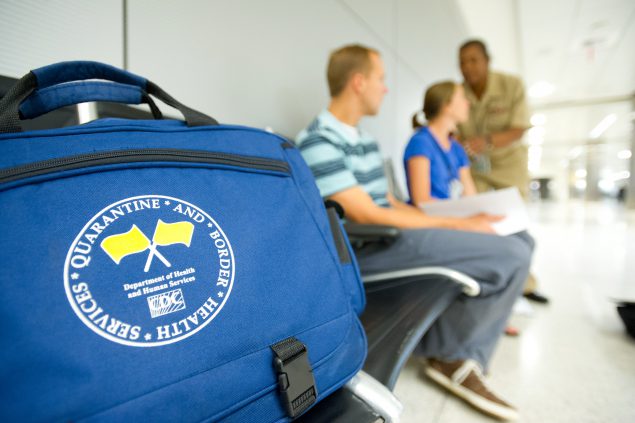
Credit: David Snyder
Disease is just a flight away. To protect America’s health, CDC partners with the Department of Homeland Security to prevent the spread of serious contagious diseases during travel. CDC uses a Do Not Board list to prevent travelers from boarding commercial airplanes if they are known or suspected to have a contagious disease that poses a threat to the public’s health. Sick travelers are also placed on a Lookout list so they will be detected if they attempt to enter the United States by land or sea. These tools can be used for anyone who poses a threat to the public’s health.
Local and state public health officials can request CDC’s assistance if a person who poses a public health threat intends to travel. CDC helps ensure these people do not travel while contagious.
Placing people on the lists
The criteria for adding people to the Do Not Board and Lookout lists are
- not aware of diagnosis or not following public health recommendations, or
- Likely to travel on a commercial flight involving the United States or travel internationally by any means; or
- Need to issue travel restriction to respond to a public health outbreak or to help enforce a public health order.
Criteria number one plus one of the three subsets must be met for a person to be placed on the Do Not Board and Lookout lists.
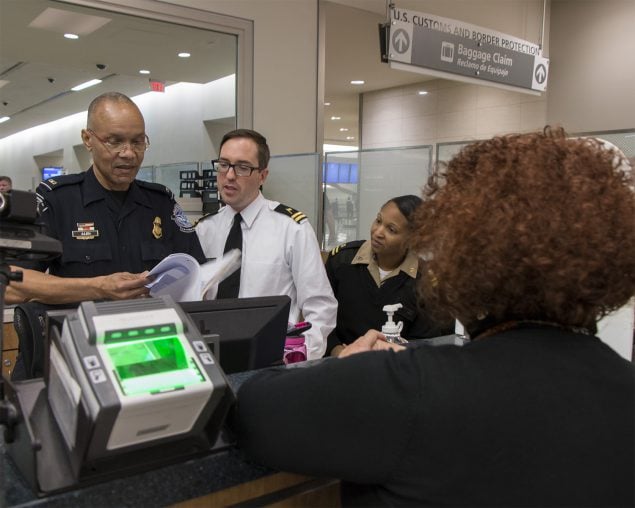
Credit: David Heaberlin
Once a person is placed on these lists, airlines will not issue a boarding pass to the person for any commercial flight within, arriving to, or departing from the United States.
The Do Not Board and Lookout lists have been used for people with suspected or confirmed infectious tuberculosis (TB), including multidrug-resistant tuberculosis (MDR-TB), and measles. During 2020-2022, CDC used these authorities to restrict travel of people with COVID-19 and close contacts who were recommended to quarantine. These authorities were also used for mpox during 2022. Travel restrictions can also be used for other suspected or confirmed contagious diseases that could pose a public health threat during travel, including viral hemorrhagic fevers such as Ebola.
Preventing people with contagious diseases from traveling also helps to make sure they get or continue medical treatment, such as for infectious tuberculosis.
Taking people off the lists
Once public health authorities confirm a person is no longer contagious, the person is removed from the lists (typically within 24 hours). Also, CDC reviews the records of all persons on the lists every two weeks to determine whether they are eligible for removal.
Frequently Asked Questions (FAQs) on Travel Restrictions to Prevent the Spread of Disease
- Importation
- Southern Border Health and Migration
- Travelers' Health
- Vessel Sanitation Program
- Funding and Guidance for State and Local Health Departments
- Emergency Preparedness and Response
- Division of Global Migration Health
Exit Notification / Disclaimer Policy
- The Centers for Disease Control and Prevention (CDC) cannot attest to the accuracy of a non-federal website.
- Linking to a non-federal website does not constitute an endorsement by CDC or any of its employees of the sponsors or the information and products presented on the website.
- You will be subject to the destination website's privacy policy when you follow the link.
- CDC is not responsible for Section 508 compliance (accessibility) on other federal or private website.
An official website of the United States government
Here’s how you know
Official websites use .gov A .gov website belongs to an official government organization in the United States.
Secure .gov websites use HTTPS A lock ( Lock Locked padlock icon ) or https:// means you’ve safely connected to the .gov website. Share sensitive information only on official, secure websites.

COVID-19 international travel advisories
If you plan to visit the U.S., you do not need to be tested or vaccinated for COVID-19. U.S. citizens going abroad, check with the Department of State for travel advisories.
COVID-19 testing and vaccine rules for entering the U.S.
- As of May 12, 2023, noncitizen nonimmigrant visitors to the U.S. arriving by air or arriving by land or sea no longer need to show proof of being fully vaccinated against COVID-19.
- As of June 12, 2022, people entering the U.S. no longer need to show proof of a negative COVID-19 test .
U.S. citizens traveling to a country outside the U.S.
Find country-specific COVID-19 travel rules from the Department of State.
See the CDC's COVID-19 guidance for safer international travel.
LAST UPDATED: December 6, 2023
Have a question?
Ask a real person any government-related question for free. They will get you the answer or let you know where to find it.
Updated: A country-by-country guide to coronavirus reopenings

Almost three years after the COVID-19 pandemic first upended international travel, many countries have finally returned to pre-pandemic entry requirements by removing vaccination and testing mandates; others have made the process less of a hassle by easing restrictions. Even some of the most restrictive nations are finally open to tourists again. For instance, Japan, announced on Sept. 22 that it would allow visa-free travel there as of Oct. 11. Meanwhile, Taiwan restored visa exemption for U.S passport holders on Sept. 12, and entry for Americans are now able to visit.
Still, a number of countries have restrictions in place, so knowing the rules before you travel internationally remains important.
Related: A country-by-country guide to where you can travel without a COVID-19 test
Reentering the U.S. has also gotten easier since the government on June 12 ended its requirement that all air travelers to the U.S. take a COVID-19 antigen test the day before their flight. The U.S. continues to require that noncitizens and nonresidents be fully vaccinated to enter. For details, visit the Centers for Disease Control and Prevention website .
Warnings from the CDC and U.S. Department of State also continued to evolve, with the CDC in early October dropping its COVID-19 travel notices for individual countries.
To get all the up-to-date travel news at your fingertips, download the free TPG App .
TPG is here to guide you through the latest in these updated rules and regulations. To make sure you have the most current information, please follow the provided links to government, tourism, U.S. Embassy and U.S. State Department websites for the most recent updates.
North America
As of June 12, travelers arriving by air to the U.S. no longer need to present results of a negative COVID-19 test taken within one day of their flight. However, all noncitizen and nonresident travelers need to show proof of full vaccination to enter the U.S.
Related: US dropping international COVID-19 testing requirement
The U.S., which reopened to fully vaccinated international travelers on Nov. 8, 2021, still requires all arriving air passengers to provide contact tracing information to their airline. Current details on requirements for entering the U.S.can be found on the CDC's website .
All U.S. states are open and proof-of-vaccination requirements for many indoor activities in New York, Los Angeles, San Francisco, Boston and other cities have ended.
On March 26, Hawaii ended restrictions for domestic travelers, but international arrivals are still subject to the U.S. government's vaccination rules.
Related: Traveling to Hawaii just got a whole lot easier
Masks are no longer required in public spaces. On April 18, a federal judge vacated the executive order President Joe Biden signed soon after taking office in late January 2021 that mandated the wearing of masks on federal property and domestic public transportation , including planes, buses, subways, trains, airports and train stations. Mask-wearing is optional in airports, on airplanes and on certain other public transportation. New York in early September changed its own public transportation mask mandate on subways, buses and shared rides to recommended from required.
The CDC has updated its domestic travel guidance for fully vaccinated travelers, but still strongly advises unvaccinated individuals to test before and after travel within the U.S. Check the CDC website for the latest updates.
Long-standing U.S. restrictions on visitors , including a ban on tourists driving into the country from Canada and Mexico, were lifted on Nov. 8, 2021, but only for fully vaccinated travelers (at least 14 days past their final dose). The vaccination requirement does not include children under the age of 18.
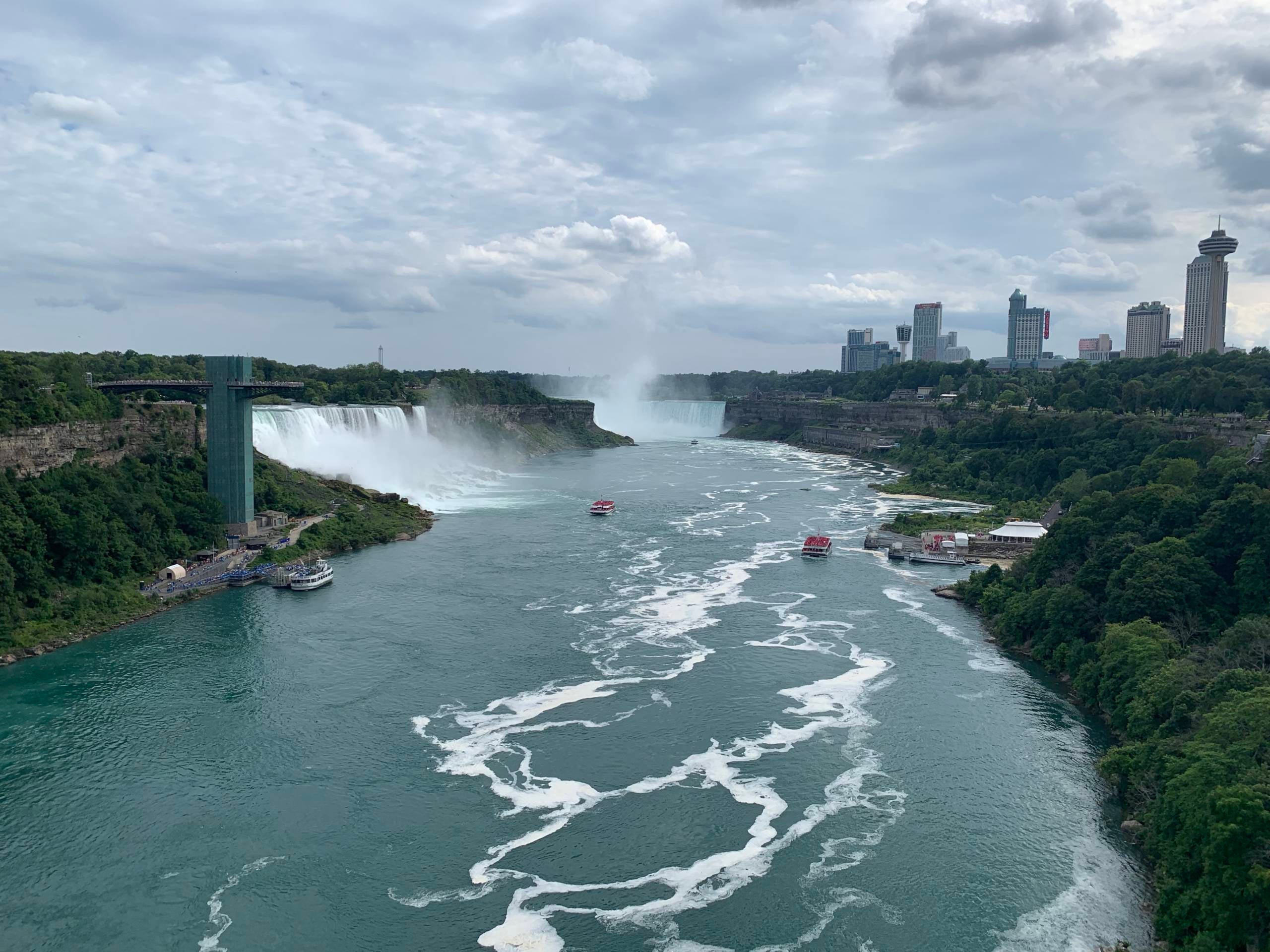
As of Oct. 1, all COVID-19-related entry restrictions for all international visitors to Canada have been eased. Proof of vaccination is no longer required and the electronic ArriveCAN form has been discontinued.
Canada had previously ended its pre-travel testing requirements on April 1 and the rule, in effect since Nov. 30, 2021, that all passengers age 12 and older traveling domestically in Canada by air or by rail need to be fully vaccinated was suspended on June 20.
Find the latest updates here .
Quebec requires anyone seeking to buy alcohol or cannabis at a province-run store to be fully vaccinated.
Fully vaccinated Canadians are again able to enter the U.S. via a land crossing at the border as of Nov. 8, 2021.
For more information and updates, visit the U.S. Embassy in Canada website .
The U.S. Department of State's travel advisory for Canada is Level 1: Exercise Normal Precautions.
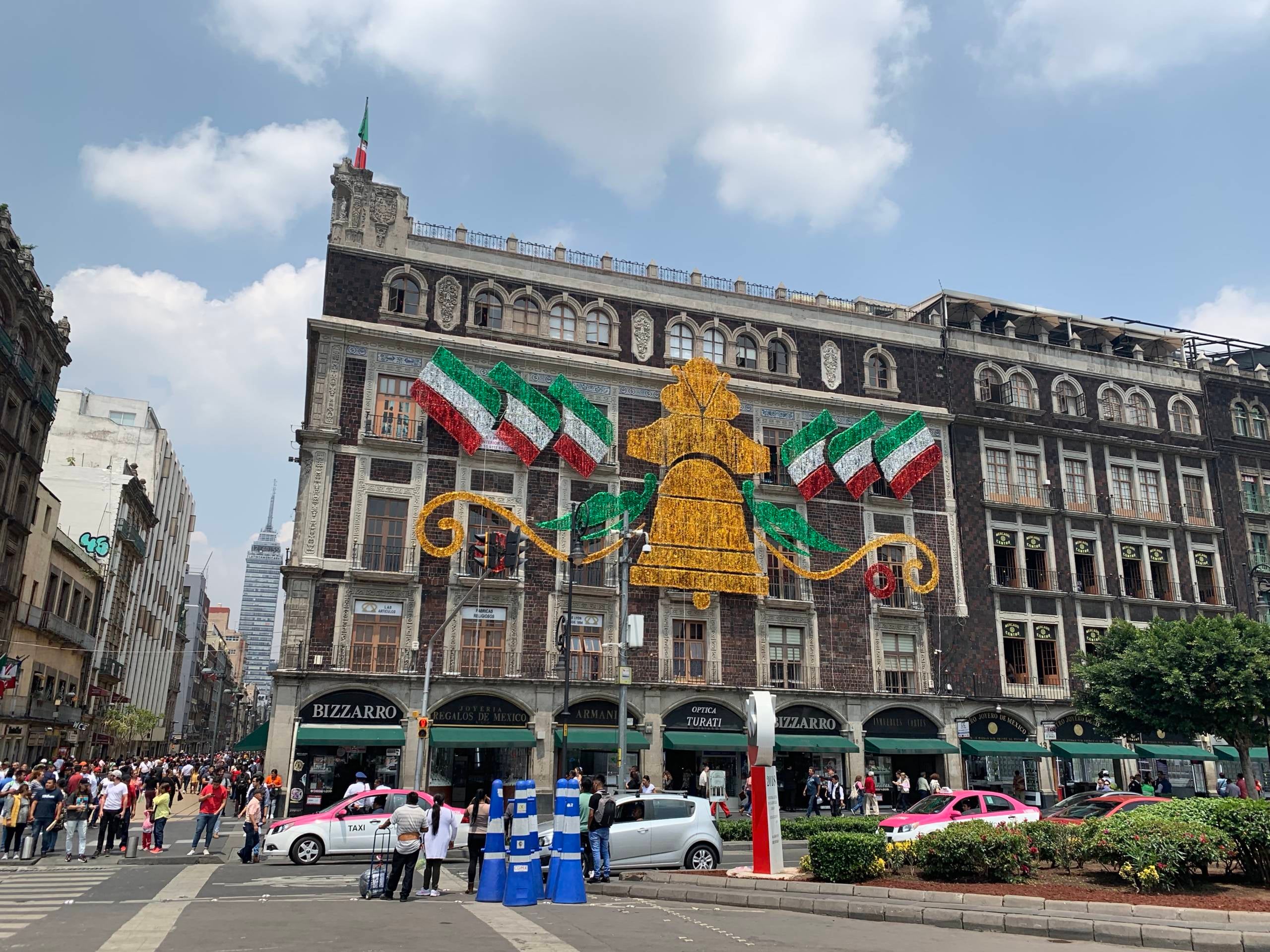
Mexico has never required testing for entry and has lifted most coronavirus restrictions.
According to the U.S. Embassy in Mexico , travelers entering Mexico via land may be subject to health screenings, including temperature checks. Travelers may experience significant delays and face the possibility of being returned to the U.S. or quarantined in Mexico.
An increase in crime against tourists in Cancun and Riviera Maya made the U.S. Consulate General in Merida issue a security alert for Americans traveling in the region in January 2022. Crime in many regions of Mexico is high. The U.S. consulate classifies Colima, Guerrero, Michoacan, Sinaloa, Tamaulipas and Zacatecas as "Do Not Travel" states.
The U.S.-Mexico land border reopened on Nov. 8, 2021, and fully vaccinated travelers are once again allowed to enter the U.S. from Mexico by land. Proof of vaccination is not required for U.S. citizens, but international travelers are required to be vaccinated.
The State Department's advisory for Mexico is now broken down state by state due to threats of crime and kidnapping .
Puerto Rico
Puerto Rico , an unincorporated territory of the U.S., is open to all international travelers, although non- U.S. citizens or permanent residents must present proof of vaccination against COVID-19.
As of March 10, all domestic travelers (U.S. citizens and residents), both vaccinated and unvaccinated, no longer need to provide proof of a negative pre-travel COVID-19 test result to enter Puerto Rico.
International visitors must be fully vaccinated. However, the U.S. rule that required all those arriving by air to provide proof of a negative COVID-19 test taken one day before entry ended on June 12.
All capacity restrictions have also ended. Masks are no longer required in indoor public places, but are recommended on public transportation and when vaccination status cannot be guaranteed. Masks are now optional (as of Oct. 1) at events with more than 1,000 people and attendees are no longer required to provide updated proof of vaccination.
For the latest updates, check here .
Related: Your points and miles guide to Puerto Rico
U.S. Virgin Islands
The U.S. Virgin Islands , which includes St. Thomas, St. John and St. Croix, has been open to tourism since Sept. 19, 2020. As of June 1 , all travelers, whether fully vaccinated or not, no longer need to provide proof of a pre-travel negative test to enter (the test requirement had been dropped for vaccinated domestic travelers as of March 7).
International travelers must still adhere to the U.S. entry requirement that they be fully vaccinated to visit the USVI. Details can be found here .

Antigua and Barbuda
Antigua and Barbuda reopened to tourists on June 4, 2020, and the government's travel advisory as of Aug. 29 lifted all remaining COVID-19 protocols for entry by air and sea. Check for updates here .
Mask-wearing in certain public settings is recommended.
Per the U.S. Embassy for the Eastern Caribbean , the U.S. State Department's advisory for Antigua is Level 1: Exercise Normal Precautions
Anguilla is once again welcoming all international visitors with no COVID-19 entry restrictions in place. The island, which began welcoming preapproved travelers on May 25, 2021, as of Oct. 1 has dropped approval and pre-travel testing requirements for unvaccinated travelers; vaccinated travelers had already been allowed to enter without pre-travel testing since Aug. 8.
The U.S. State Department's advisory for Anguilla is Level 1: Exercise Normal Precautions . Visit the U.S. Embassy in Barbados and the Eastern Caribbean , which oversees Anguilla, for additional information.
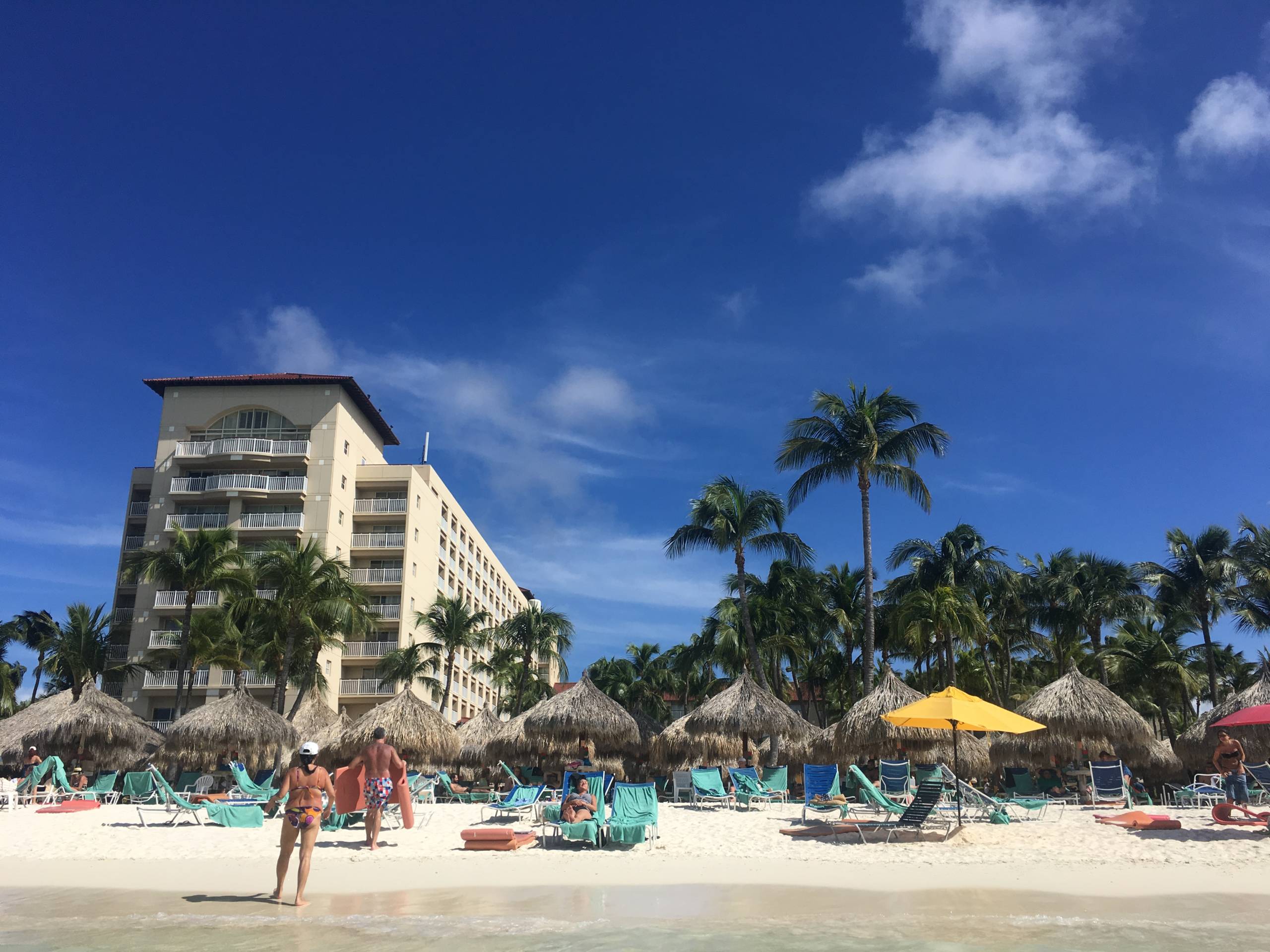
As of March 19, Aruba has relaxed its COVID-19 testing requirements and no longer requires proof of vaccination or a negative test to enter. However, all visitors must still complete an online embarkation/disembarkation card process within 72 to four hours prior to travel. The questionnaire asks for identifying information, including passport details. The form also includes a section where visitors can input their travel plans and answer health questions. Travelers must also download the Aruba Health app as part of the ED card process. Find details here .
Aruba reopened to tourists in the summer of 2020 and American visitors were welcomed back on July 10, 2020. U.S. travelers to Aruba previously had to purchase visitors insurance to cover up to $75,000 in health insurance, but the requirement has been discontinued as of July 8.
Visitors must carry a mask with them and wear one in businesses that require them. As of Feb. 17, all other safety measures have been eased.
Visit the U.S. Consulate General in Curacao , which oversees Aruba, for additional information. The U.S. State Department's advisory for Aruba is Level 1: Exercise Normal Precautions .
For the latest updates related to travel, check Visit Aruba's entry requirements page.
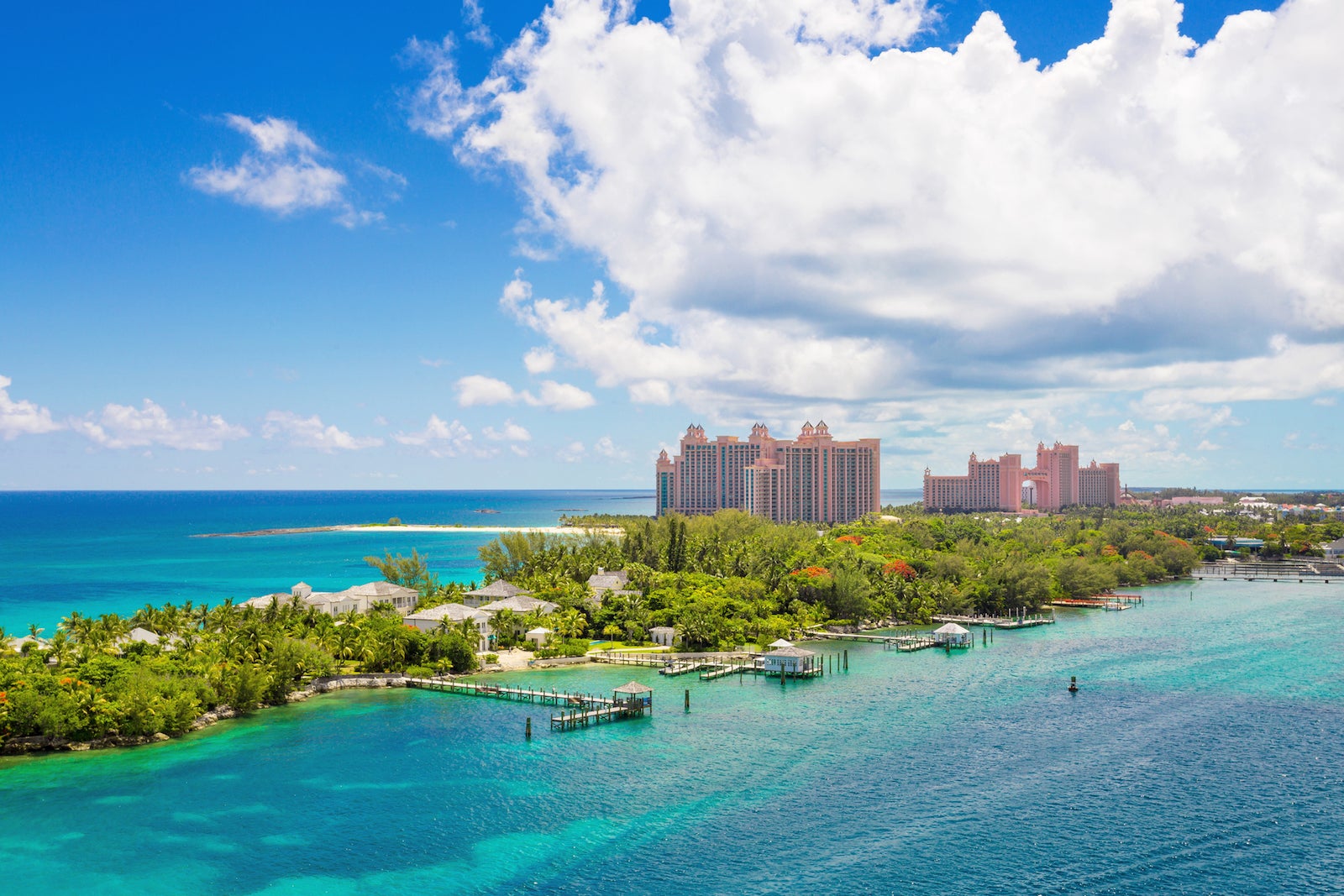
The Bahamas is fully open and as of Sept. 20, all COVID-19 entry restrictions have been lifted, including the need to apply for a Bahamas Health Visa. Details can be found here .
Check the U.S. Embassy in the Bahamas for additional info. The U.S. State Department's advisory for the Bahamas is Level 2: Exercise Increased Caution .
Barbados, which reopened to international travelers in July, 2020, as of Sept. 22 has ended all official COVID-19 entry protocols. Masks are also now optional. Find details here .
The U.S. State Department's advisory for Barbados is Level 1: Exercise Normal Precautions . Check the website of the U.S. Embassy in Barbados for additional information.

Bermuda , which reopened to travelers on July 1, 2020, has ended its pre-travel authorization and pre-travel negative test requirements and as of Nov. 14 visitors only need to fill out an electronic Bermuda Arrival Card , which was in place before the pandemic.
Complete details are available here .
The U.S. State Department's advisory for Bermuda is Level 1: Exercise Normal Precautions .
More information on the coronavirus in Bermuda can be found here .
Americans are welcome to visit Bonaire. As of April 20, proof of vaccination or a negative COVID-19 test result is no longer required for entry.
For the latest details, check here .
The U.S. State Department's advisory for Bonaire is Level 1: Exercise Normal Precautions . For more information, visit the website of the U.S. Consulate General in Curacao , which oversees Bonaire.
British Virgin Islands
The British Virgin Islands officially reopened to tourism on Dec. 1, 2020, and as of July 15, 2022, visitors are no longer required to provide proof of a negative COVID-19 test to enter, even if unvaccinated. Proof of health insurance valid in the British Virgin Islands is also no longer required.
Complete details on travel requirements and restrictions can be found here .
The U.S. State Department's advisory for the British Virgin Islands is Level 1: Exercise Normal Precautions . Check the U.S. Embassy in Barbados and the Eastern Caribbean , which oversees the British Virgin Islands, for additional information.
Cayman Islands
As of Aug. 24, there are no longer any COVID-19 protocols for all travelers, whether vaccinated or unvaccinated, to enter the Cayman Islands and approval via the Cayman Travel Portal has been suspended. Details are here .
The Cayman Islands had been welcoming fully vaccinated tourists since it entered Phase 5 of its reopening on Jan. 20. Cruise tourism resumed on March 21.
Related: After a 2-year absence, cruise ships are returning to the Cayman Islands
The U.S. State Department's advisory for the Cayman Islands is Level 3: Reconsider Travel .
Cuba began welcoming international tourists back Nov. 15, 2021 , and as of April 6, 2022, neither a negative COVID-19 test nor proof of full vaccination is required for entry. Tourists are not required to quarantine but should have medical insurance valid in Cuba and they need to complete a health declaration form prior to travel.
The U.S. State Department has a Level 2: Exercise Increased Caution advisory in place for Cuba. Politics limits Americans' travel to Cuba more than COVID-19. Long-standing travel restrictions were tightened by the U.S. government in late 2019, eliminating many of the reasons Americans were allowed to visit Cuba in recent years. For information on exemptions that allow Americans to travel to Cuba, visit the U.S. Embassy in Cuba's COVID-19 page and "Traveling to Cuba" page .
There are a number of additional restrictions for U.S. travelers visiting Cuba that are not related to the pandemic, and which remain active.
Curacao reopened to U.S. tourists in November 2020. All travelers are required to complete a digital immigration card before departure, but as of June 2, there are no other pre-travel testing requirements for all international visitors. Details are here .
The U.S. State Department's advisory for Curacao is Level 1: Exercise Normal Precautions . Visit the U.S. Consulate General in Curacao' s website for additional information.
Dominica has been open to travelers since Aug. 3, 2020, and as of Aug. 22, all COVID-19-related entry protocols have been dropped. Visitors no longer need to fill out a pre-travel questionnaire or present proof of vaccination or a negative COVID-19 test result.
The U.S. State Department's advisory for Dominica is Level 1: Exercise Normal Precautions .
For more information, see the U.S. Embassy for Barbados and the Eastern Caribbean 's website and Dominica's travel advisory .
Dominican Republic
The Dominican Republic reopened July 1, 2020 and all travelers are currently welcome to visit, with no pre-travel COVID-19 entry requirements.
Related: How to book a trip to the Dominican Republic using points and miles
As of April 23, travelers no longer need to show proof of vaccination or a negative COVID-19 test result to enter and random tests at the airport have ended. The use of masks and social distancing measures in public spaces is now up to the individual. Check for updates here .
All travelers must still fill out and submit an electronic entry ticket (for both arrival into and departure from the Dominican Republic) to declare they have not felt any COVID-19-related symptoms in the last 72 hours and provide contact details for the next 30 days.
The U.S. State Department's advisory for the island is Level 2: Exercise Increased Caution .

Grenada began reopening to foreign tourists on Aug. 1, 2020, with strict protocols, including quarantine, in place for all visitors. But as of April 4, 2022, Grenada has removed all COVID-19-related entry requirements and restrictions for both vaccinated and unvaccinated travelers.
Complete details can be found here .
For more information, check the U.S. Embassy in the Eastern Caribbean's COVID-19 page for Grenada . The U.S. State Department's advisory for Grenada is Level 1: Exercise Normal Precautions .
Haiti — which suffered political and social turmoil following the assassination of its president, Jovenel Moise, on July 7, 2021, as well as a 7.2 magnitude earthquake two weeks later — has reopened its borders to regular international passenger traffic. It has also opened its land borders with the Dominican Republic.
According to the U.S. Embassy in Haiti , as of April 18, all travelers to Haiti age 12 and older will need to present either a vaccination card proving full vaccination or proof of a negative COVID-19 PCR or antigen test taken within 72 hours of travel to their airline; proof of prior COVID-19 infection (a positive test and documentation from the attending physician) is also allowed. Passengers ages 5-11 must only present a negative test result.
The U.S. State Department's advisory for Haiti is Level 4: Do Not Travel .
Jamaica officially reopened for tourism on June 15, 2020, and as of April 16, 2022, passengers no longer need to present proof of a negative COVID-19 test to board their flight to Jamaica.
For faster processing upon arrival at the airport, travelers are encouraged to submit their Immigration/Customs C5 card online anytime before arrival. If the card has not been submitted online, passengers may complete the paper form issued in flight by the airline.
Visit the U.S. Embassy in Jamaica's website for additional information. The U.S. State Department's advisory for Jamaica is Level 3: Reconsider Travel .
Americans can visit Martinique for tourism — and as of Aug. 1 there are no COVID-19-related entry requirements for any traveler, according to the U.S. Embassy for the Eastern Caribbean .
The U.S. State Department's advisory for Martinique is Level 1: Exercise Normal Precautions .
Americans can visit St. Barts for tourism — and as of Aug. 1 there are no COVID-19-related entry requirements for any traveler, according to the U.S. Embassy for the Eastern Caribbean .
Check here for additional information about traveling to the island.
The U.S. State Department's advisory for St. Barts is Level 1: Exercise Normal Precautions .
St. Kitts and Nevis
As of Aug. 15, all travelers are allowed to enter St. Kitts and Nevis without any COVID-19-related restrictions. The only pre-travel requirement is an immigration and customs form .
Details can be found here .
Americans can now stay anywhere on the island, where options include the Park Hyatt St. Kitts , the Four Seasons Nevis and the St. Kitts Marriott Resort.
The U.S. State Department's advisory for St. Kitts and Nevis is Level 1: Exercise Normal Precautions .
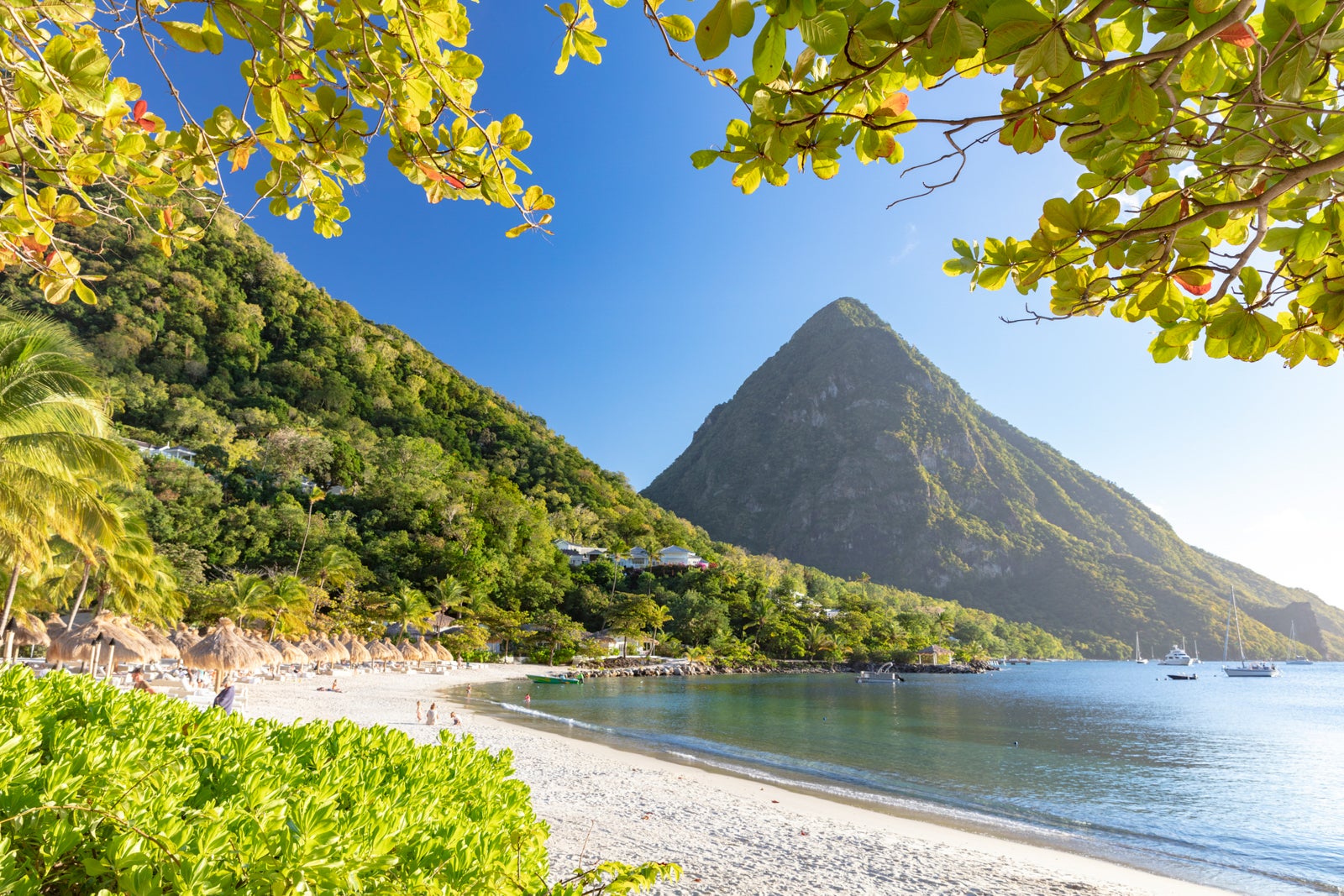
As of Sept. 5, St. Lucia has dropped all previous COVID-19-related entry protocols for both vaccinated and unvaccinated travelers; although, all visitors must complete and have a printed and signed copy of the St. Lucia Health Screening form .
Immediate access to all on-island activities is now available to both fully vaccinated and unvaccinated travelers. Unvaccinated travelers had previously been required to vacation in place at certified properties for the first seven days of their visit.
The U.S. State Department's advisory for St. Lucia is Level 1: Exercise Normal Precautions .
For further details, visit the international arrivals page on the St. Lucia Tourism website and the U.S. Embassy in Barbados and the Eastern Caribbean's website .
St. Vincent and the Grenadines
St. Vincent and the Grenadines began reopening on July 1, 2020 and as of Sept. 18, all COVID-19-related entry protocols have been lifted. Details are here .
The U.S. State Department's advisory for St. Vincent and the Grenadines is Level 1: Exercise Normal Precautions. Check the website of the U.S. Embassy in Barbados and the Eastern Caribbean and Discover St. Vincent and the Grenadines for updates.
St. Maarten
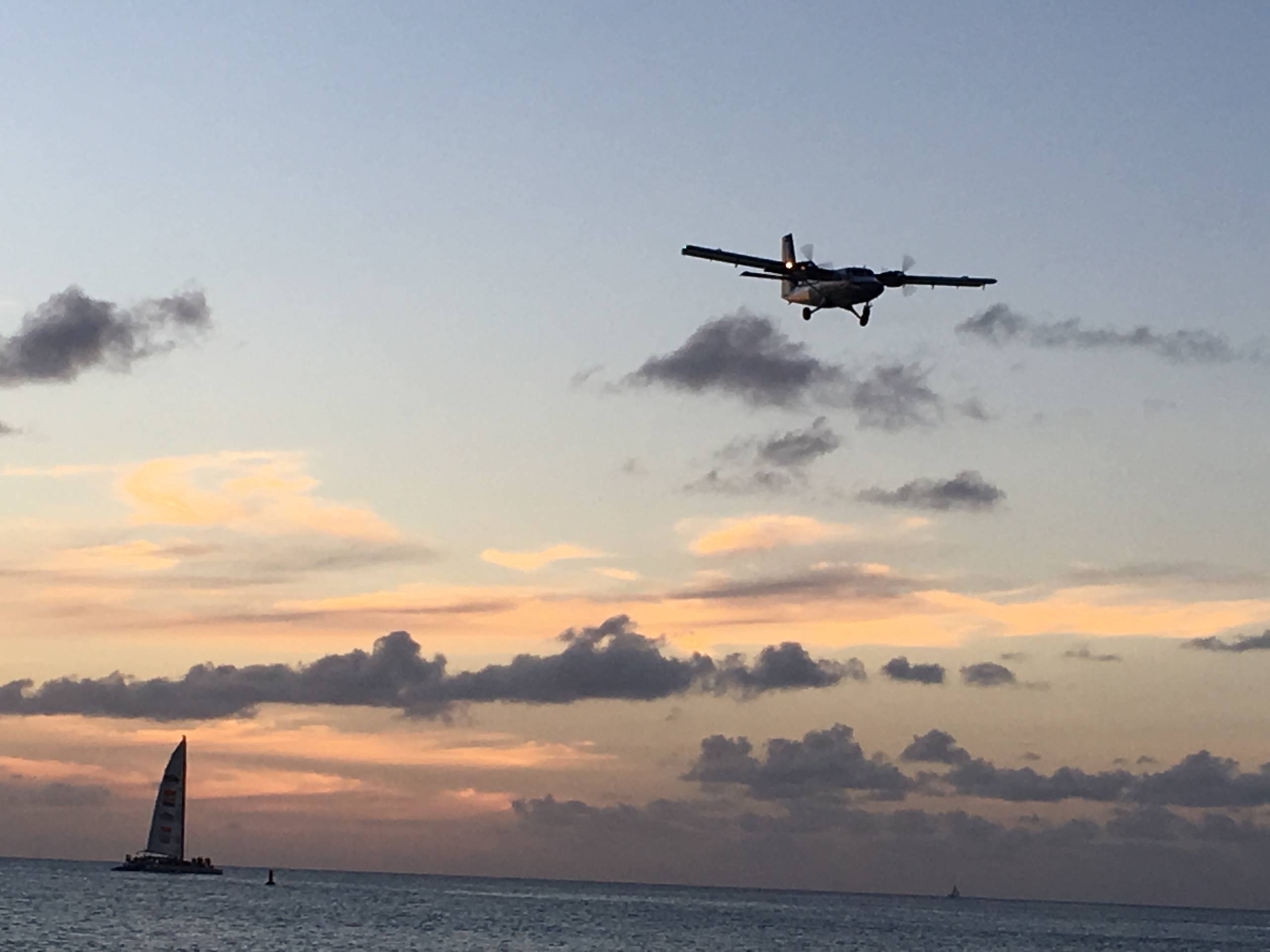
Dutch St. Maarten ended all COVID-19-related entry requirements as of Nov. 1 and is welcoming U.S. and other travelers arriving at Princess Juliana International Airport (SXM) without the need for proof of vaccination, testing or electronic authorization. Details are here.
Tourists can also cross the border from Dutch St. Maarten to French Saint-Martin .
The U.S. State Department advisory is Level 1: Exercise Normal Precautions for both Dutch St. Maarten and French Saint-Martin.
Trinidad and Tobago
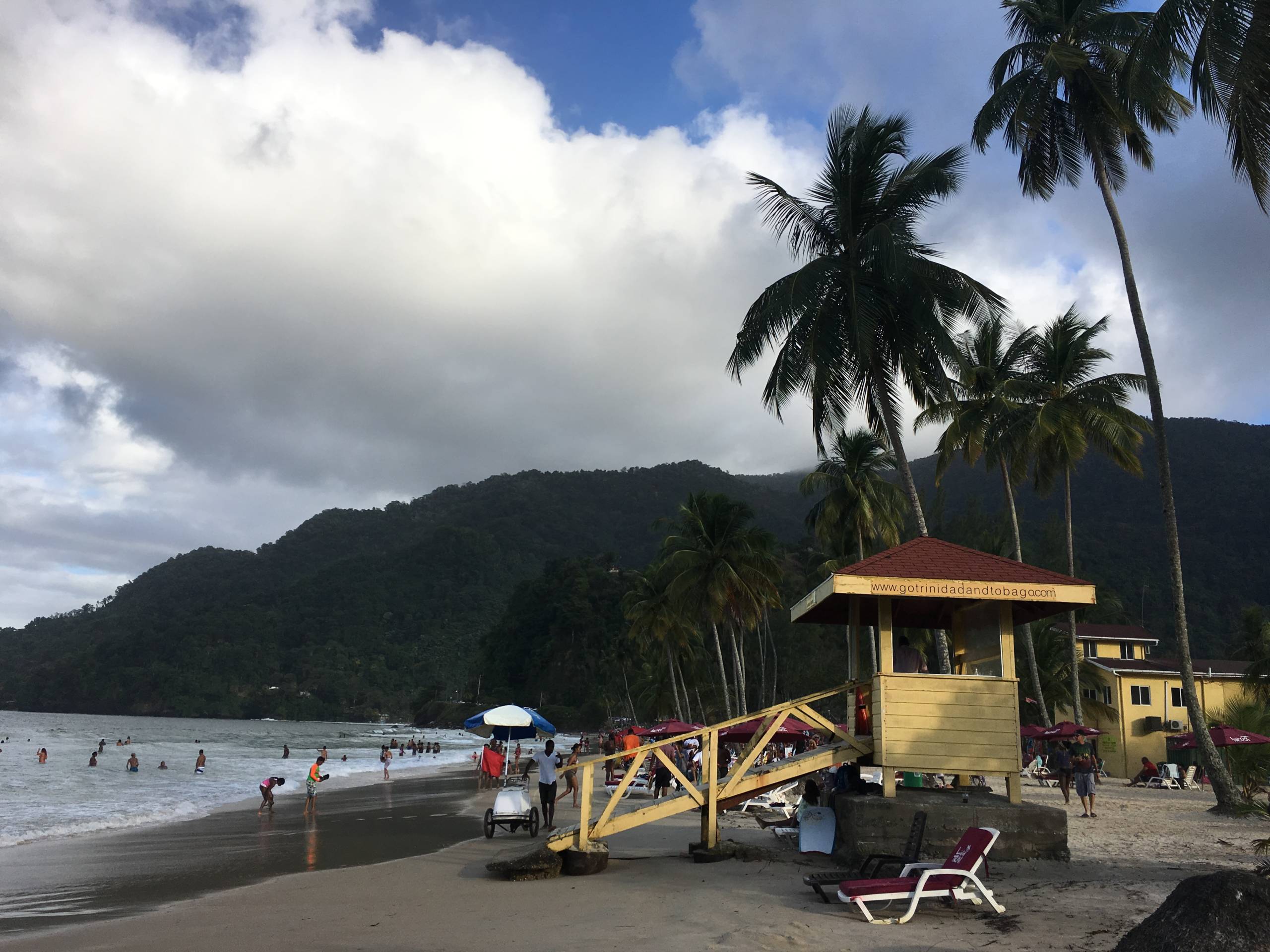
Trinidad and Tobago issued a stay-at-home order in late March 2020 and banned tourists. The country's borders reopened on July 17, 2021, and as of July 1, 2022, pre-travel testing is no longer required for entry.
The U.S. State Department's advisory for Trinidad and Tobago is Level 3: Reconsider Travel . Check the U.S. Embassy in Trinidad & Tobago website for updates.
Turks and Caicos
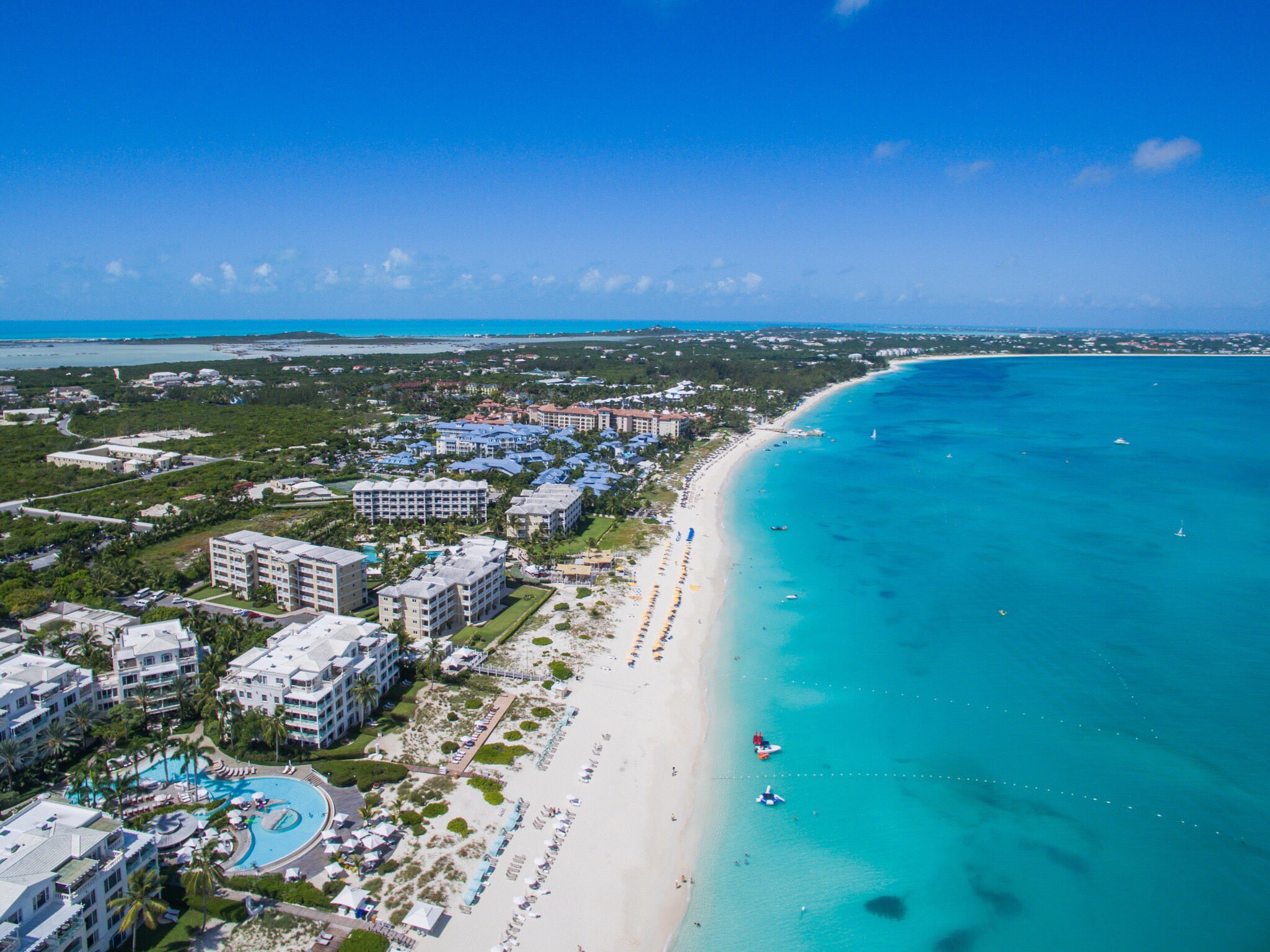
Turks and Caicos, a group of 40 low-lying coral islands popular with tourists in the Caribbean, began welcoming international visitors to Providenciales International Airport (PLS) on July 22, 2020. This British overseas territory includes the island of Providenciales, also known as Provo.
Turks and Caicos currently requires all visitors 18 years of age or older to be fully vaccinated, meaning 14 days must have passed after receiving a single-dose vaccine or a second dose of a two-dose vaccine. Vaccines currently approved are Pfizer, Moderna, AstraZeneca, Johnson & Johnson and others.
To show proof of vaccination, you'll need to provide a digital or paper vaccination record, including the CDC-issued card, or a vaccination letter signed by a medical professional (physician or registered nurse with license number) or one printed from an electronic vaccination database.
Related: Turks and Caicos to require vaccination
As of May 1, travelers to Turks and Caicos are no longer required to present proof of a negative COVID-19 pre-travel test, show proof of medical insurance valid for the treatment of COVID-19 in Turks and Caicos or obtain travel pre-authorization. Masks are no longer required in public places.
For the latest information, visit the Turks and Caicos tourism website and check the website of the U.S. Embassy in the Bahamas , which oversees Turks and Caicos.
The U.S. State Department's advisory for Turks and Caicos is Level 2: Exercise Increased Caution .
Related: Why I love Turks and Caicos
Europe continues to experience COVID-19 waves, although almost all countries have relaxed COVID-19-related entry restrictions and dropped vaccination or testing requirements to access indoor spaces such as restaurants, hotels and museums. The European Council recommended in late February 2022 that its member countries open more broadly to travelers from outside the European Union; by late October, when Spain finally ended its entry requirements, most countries had dropped all COVID-19-related entry requirements for travelers.
The Albanian government reopened for tourism on July 1, 2020, and Americans can visit, according to the U.S. Embassy in Albania .
Effective May 1, 2022, Albania repealed all COVID-19-related entry and public health measures, per the U.S. Embassy.
The U.S. State Department's travel advisory for Albania is now Level 2: Exercise Increased Caution .
Armenia is open to Americans, according to the U.S. Embassy in Yerevan . As of early May, the country no longer requires proof of vaccination or a pre-travel negative test to enter the country.
The U.S. State Department's travel advisory for Armenia is Level 2: Exercise Increased Caution .
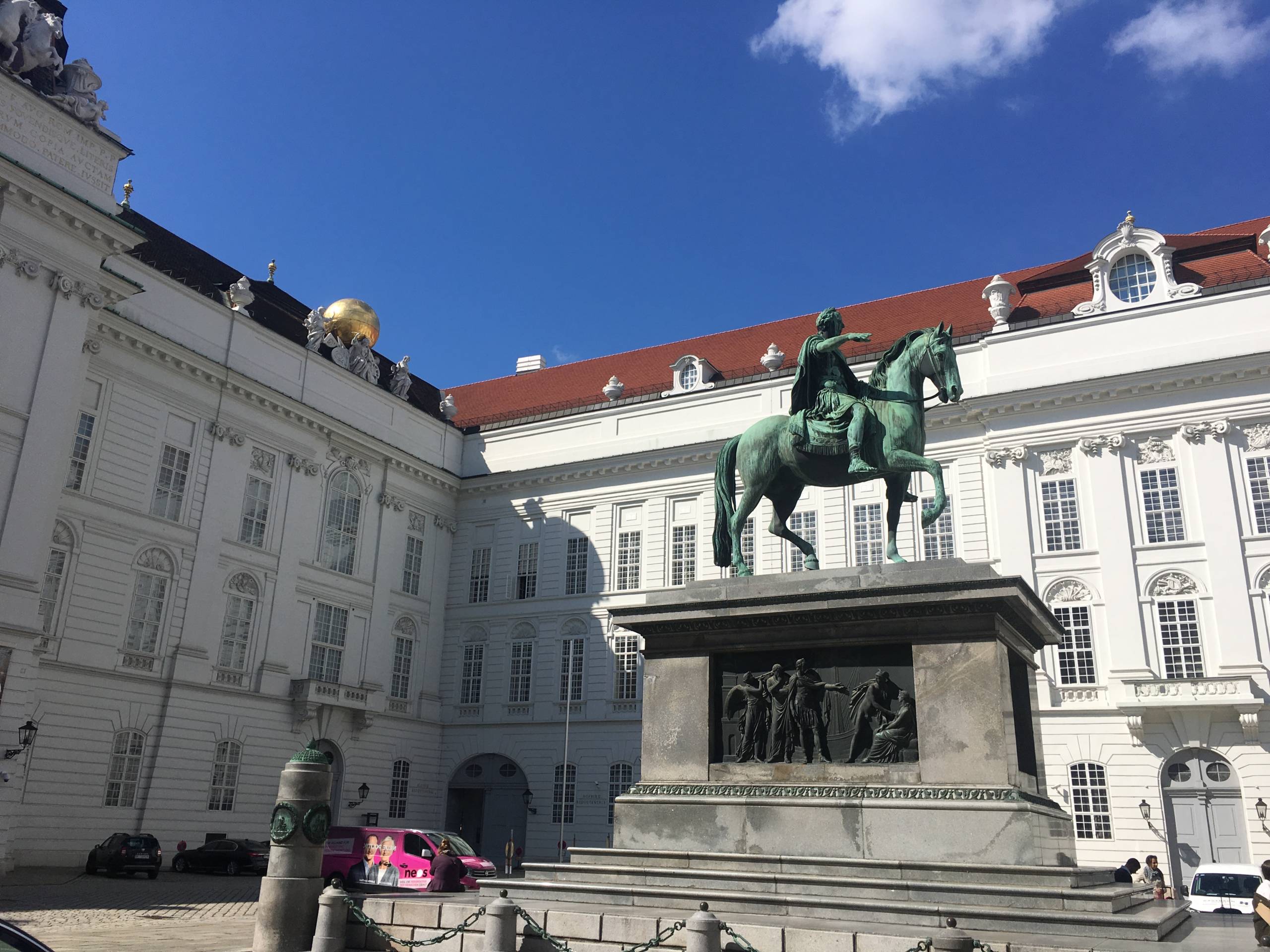
As of May 16, Austria no longer requires visitors from any country to be vaccinated, recovered or tested.
Information can be found here .
As of June 1, FFP2 or KN95 face masks are no longer required on public transportation and in essential shops and pharmacies — but in Vienna, they remain compulsory on public transportation and in pharmacies. For details on current restrictions, check here .
Check the U.S. Embassy in Austria for additional information. The U.S. State Department's advisory for Austria is Level 1: Exercise Normal Precautions .
According to the U.S. Embassy in Azerbaijan , as of June 21, 2021, U.S. citizens can fly to Azerbaijan. Entry by land is not permitted, however, and all travelers over the age of 18 must have proof of vaccination or proof of immunity from a previous infection (the testing requirement was eliminated as of April 14, 2022).
The country is under special restrictions through at least Jan. 1, 2023, to require proof of vaccination for those 18 and older to enter indoor venues, including restaurants, cafes and malls. Masks, however, are no longer required as of May 1.
The U.S. State Department's advisory for Azerbaijan is Level 2: Exercise Increased Caution .
Belarus is on the front lines of the Russia-Ukraine war. The country has also been in the midst of a popular uprising against Alexander Lukashenko, called the "last dictator in Europe."
The U.S. State Department's advisory for the country is Level 4: Do Not Travel ("due to the arbitrary enforcement of laws, the risk of detention, the Russian military attack on neighboring Ukraine, and the buildup of Russian military in Belarus along the border with Ukraine").
It isn't wise to visit — the embassy has suspended operations in Minsk and has asked Americans to depart Belarus if they are there — but the country bordering Russia and Ukraine is open. According to the U.S. Embassy in Belarus , America is on a list of countries that were allowed to enter as of Aug. 15, 2020, but only through Minsk National Airport (MSQ). Land borders are closed to American travelers.
Americans require a visa. A COVID-19 PCR test taken within 72 hours is also required and unvaccinated travelers must self-quarantine for seven days — and complete the full quarantine in Belarus. Travelers also need to fill out a health questionnaire and submit to temperature and health checks on arrival.
Note: On June 29, 2021, the U.S. Department of Transportation prohibited the sale of direct passenger air transportation, including tickets booked through one airline that contain flights operated by multiple airlines, between the U.S. and Belarus. Once this order becomes final, only direct air transportation deemed to be in the national interest of the U.S., including on humanitarian or national security grounds, will be allowed, per the U.S. Embassy.

As of May 23, Belgium has lifted entry restrictions for all travelers, except those from "Very High-Risk" countries — but as of early December, no countries are categorized as such.
That means all Americans, whether they are vaccinated or not, can travel to Belgium without the need to test or quarantine, according to the Embassy and Consulates of Belgium in the U.S .
Further information can be found here and on the U.S. Embassy in Belgium's website .
Belgium had also instituted social distancing restrictions, which are being reduced. For more information, check the country's current measures .
The U.S. State Department's advisory for Belgium is Level 2: Exercise Increased Caution .
Bosnia and Herzegovina
Americans can travel to Bosnia and Herzegovina and, according to the U.S. Embassy , as of May 16 all COVID-19-related restrictions have been removed for all visitors.
The U.S. State Department's advisory for Bosnia and Herzegovina is Level 2: Exercise Increased Caution .

Americans can enter Bulgaria for tourism, per the U.S. Embassy in Bulgaria .
According to the embassy, as of May 1, all COVID-19-related entry restrictions have been lifted and all travelers to Bulgaria no longer need to provide vaccination or testing documents.
The U.S. State Department's advisory for Bulgaria is Level 1: Exercise Normal Precautions .
U.S. travelers can visit Croatia — and as of early May, there are no longer any vaccination or testing requirements for entry, per the U.S. Embassy in Croatia .
The U.S. Embassy does note that entry requirements are subject to change at any time without notice and that the Croatian Border Police have final authority regarding entry into Croatia.
Croatia no longer requires that masks be worn in indoor public spaces, with the exception of health care facilities.
The U.S. State Department's advisory for Croatia is Level 1: Exercise Normal Precautions .
Cyprus, a small island nation off the coast of Turkey, is now open to all international visitors and all previous COVID-19-related entry protocols ended on June 1.
As of July 8 , masks are required in certain indoor areas, including public transportation, for those over 12 years old.
Check the U.S. Embassy in Cyprus for additional information.
The U.S. State Department's advisory for Cyprus is Level 1: Exercise Normal Precautions .
Czech Republic
As of April 9, the Czech Republic has suspended all entry restrictions related to COVID-19. This means Americans can visit for tourism, whether they are vaccinated or not. Details can be found here and here . You can also check the U.S. Embassy in the Czech Republic website .
Direct flights between the U.S. and the Czech Republic resumed this summer on Delta Air Lines.
The U.S. State Department's advisory for the Czech Republic is Level 1: Exercise Normal Precautions .
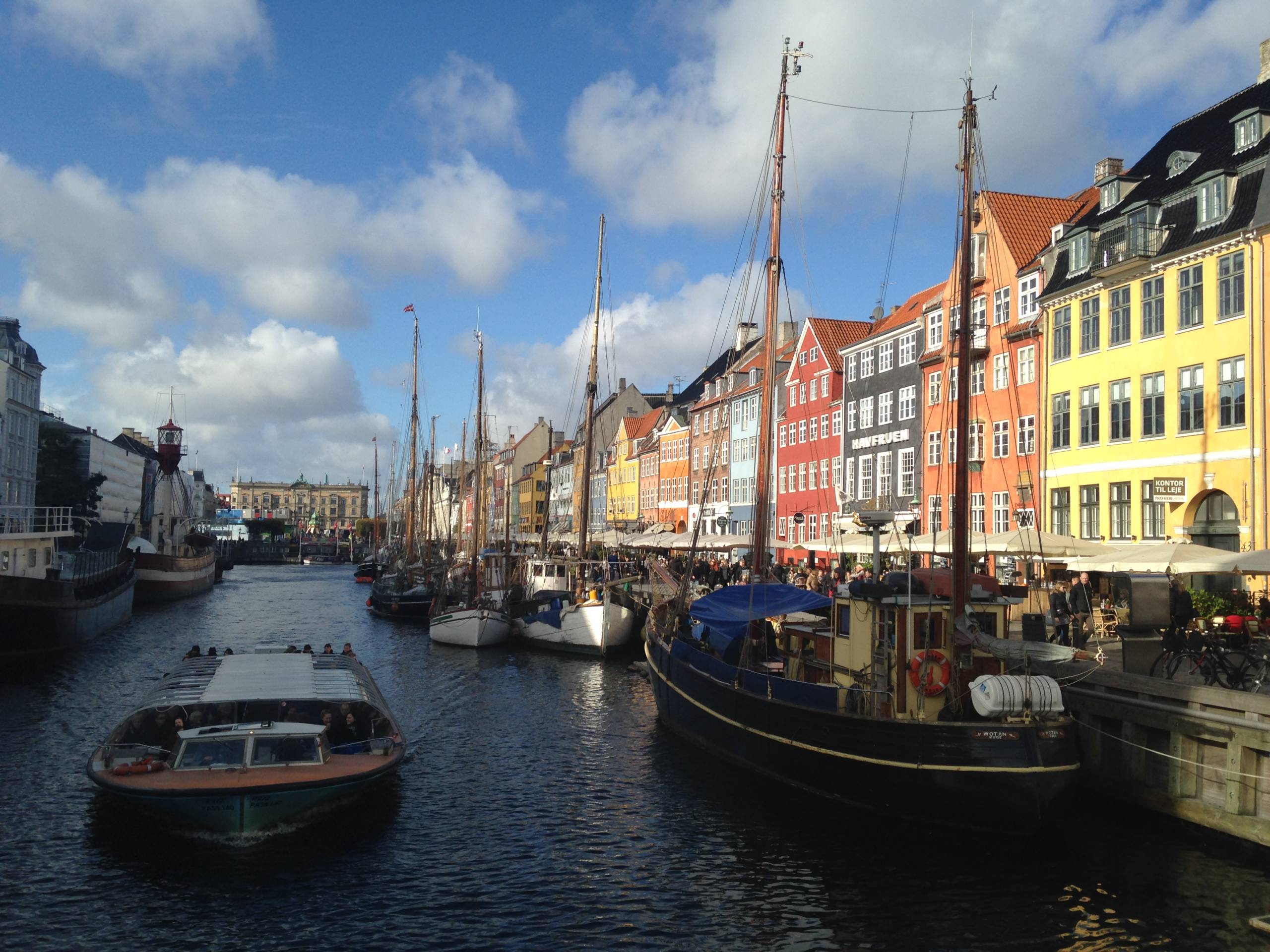
As of March 29, there are no longer any COVID-19-related restrictions for entering Denmark . Americans, whether they are vaccinated or not, can travel there for tourism.
Denmark also dropped all COVID-19-related restrictions within the country as of Feb. 1, although private businesses and cultural institutions may continue to require certain things and there will be recommendations for the use of masks and "corona passports" in certain limited situations. Face masks are no longer required in Danish airports.
Updates to travel restrictions for Denmark can be found here . You can also visit the U.S. Embassy in Denmark for additional information.
The U.S. State Department's advisory for Denmark is Level 2: Exercise Increased Caution .
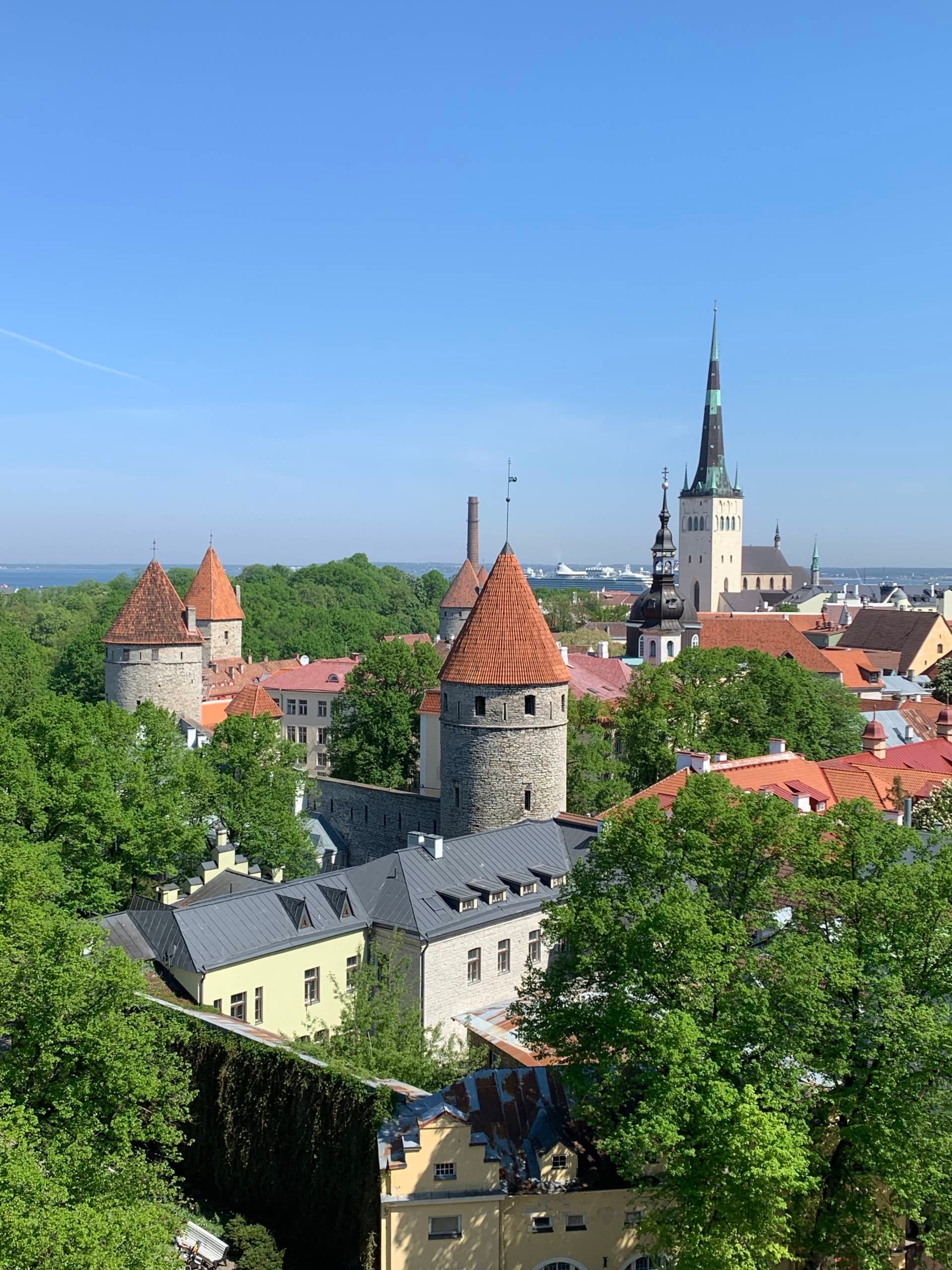
Estonia reopened to Americans as of June 21, 2021, according to the U.S. Embassy in Estonia, including for tourism. As of early July 2022, Estonia has lifted all COVID-19-related entry restrictions. See details here .
Masks are recommended in indoor public spaces.
The U.S. State Department's advisory for Estonia is Level 1: Exercise Normal Precautions .
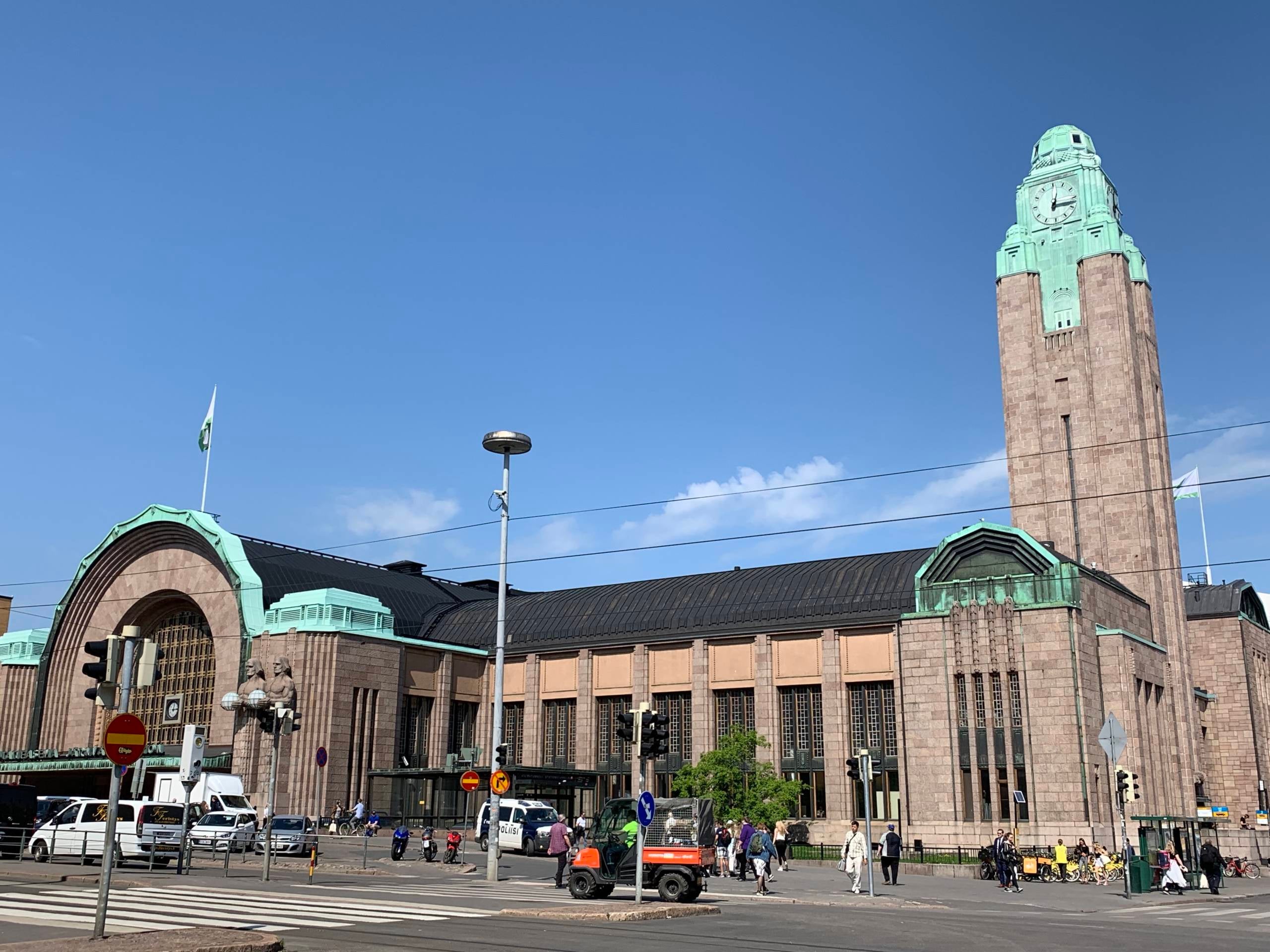
Americans can visit Finland for tourism and all COVID-19-related border restrictions ended as of June 30, per the Visit Finland tourism board .
Check the U.S. Embassy in Finland for additional information. The U.S. State Department's advisory for Finland is Level 1: Exercise Normal Precautions .

As of Aug. 1, all COVID-19-related entry requirements for France have been dropped. This includes proof of COVID-19 vaccination and a negative test result.
Updates to entry restrictions can be found here .
Check the U.S. Embassy & Consulates in France for additional updates. The U.S. State Department's advisory for France is Level 2: Exercise Increased Caution .
Americans are welcome in the country of Georgia, according to the U.S. Embassy in Georgia, and proof of COVID-19 vaccination or a negative pre-travel test is no longer required. Proof of health insurance valid in Georgia is recommended.
The U.S. State Department's current advisory for Georgia is Level 1: Exercise Normal Precautions.
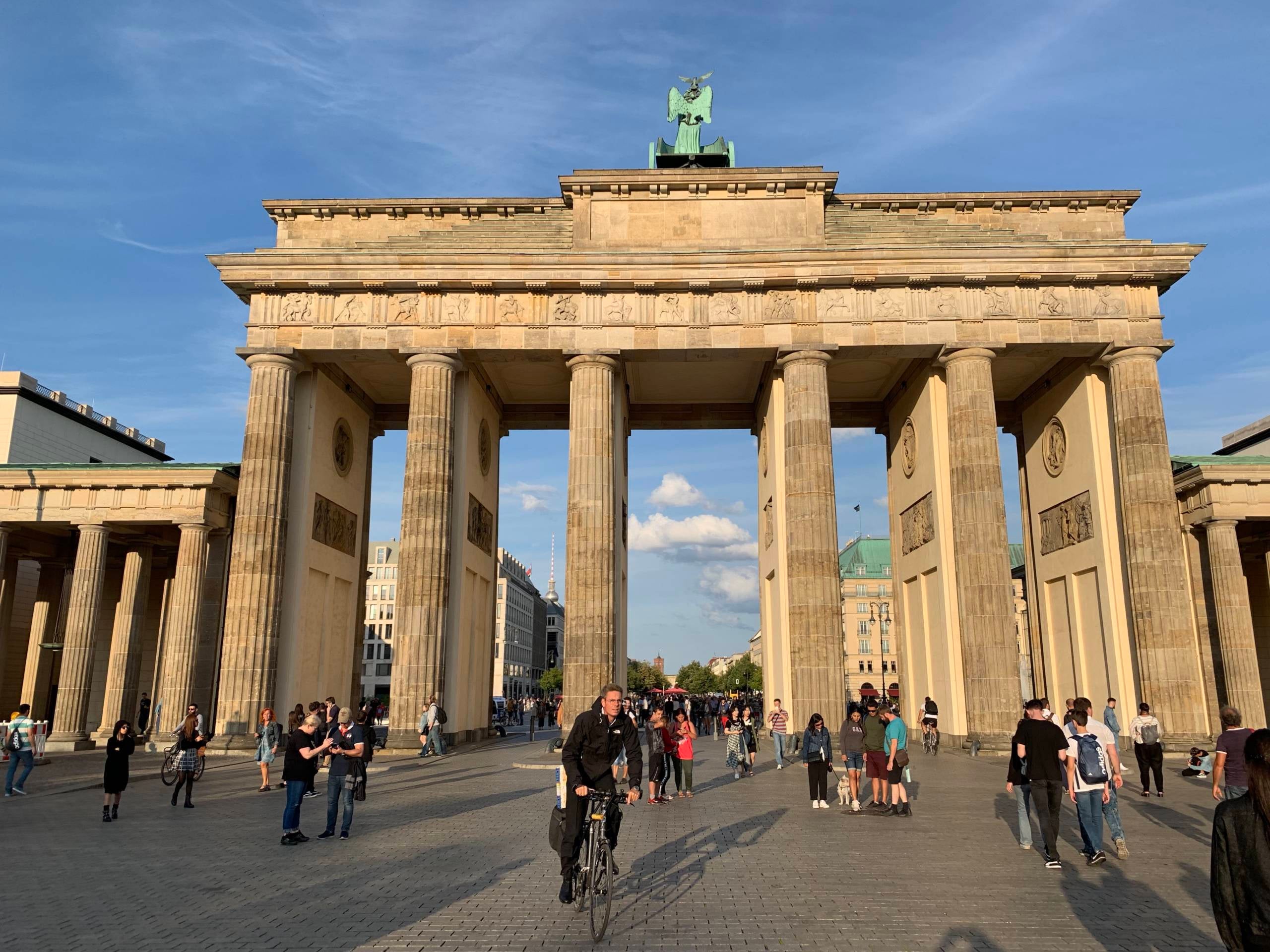
Germany has welcomed all Americans (except those who are residents of China due to reciprocity) since June 20, 2021. As of June 11, 2022, the German government has dropped all COVID-19-related vaccination and testing requirements for entry.
Related: Germany drops COVID-19 travel requirements
Check the U.S. Embassy in Germany or the German Federal Foreign Office for additional information.
Masks are still required on public transportation through at least Jan. 1, 2023.
The U.S. State Department's advisory for Germany is Level 2: Exercise Increased Caution .
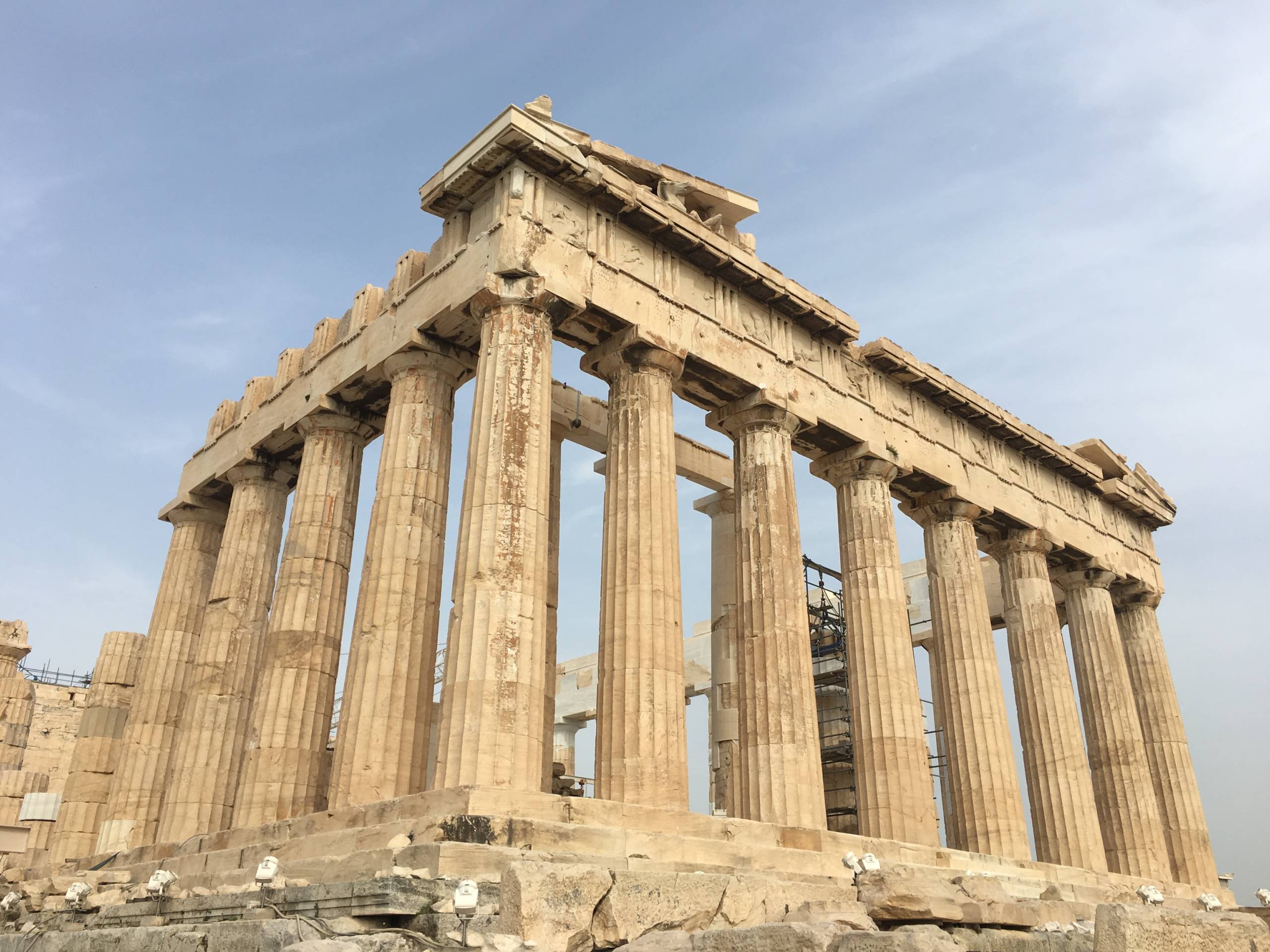
Greece began welcoming U.S. travelers on April 19, 2021. As of May 1, 2022, all travelers to Greece are no longer required to present a vaccination certificate, proof of recovery from COVID-19 or proof of a negative PCR or antigen test. Details can be found here .
As of March 15, 2022, it is also no longer mandatory to complete an online passenger locator form, but filling out a simplified version of the form is recommended.
Face masks are only required on public transportation.
Check the U.S. Embassy in Greece website for additional information.
The U.S. State Department's advisory for Greece is Level 1: Exercise Normal Precautions .
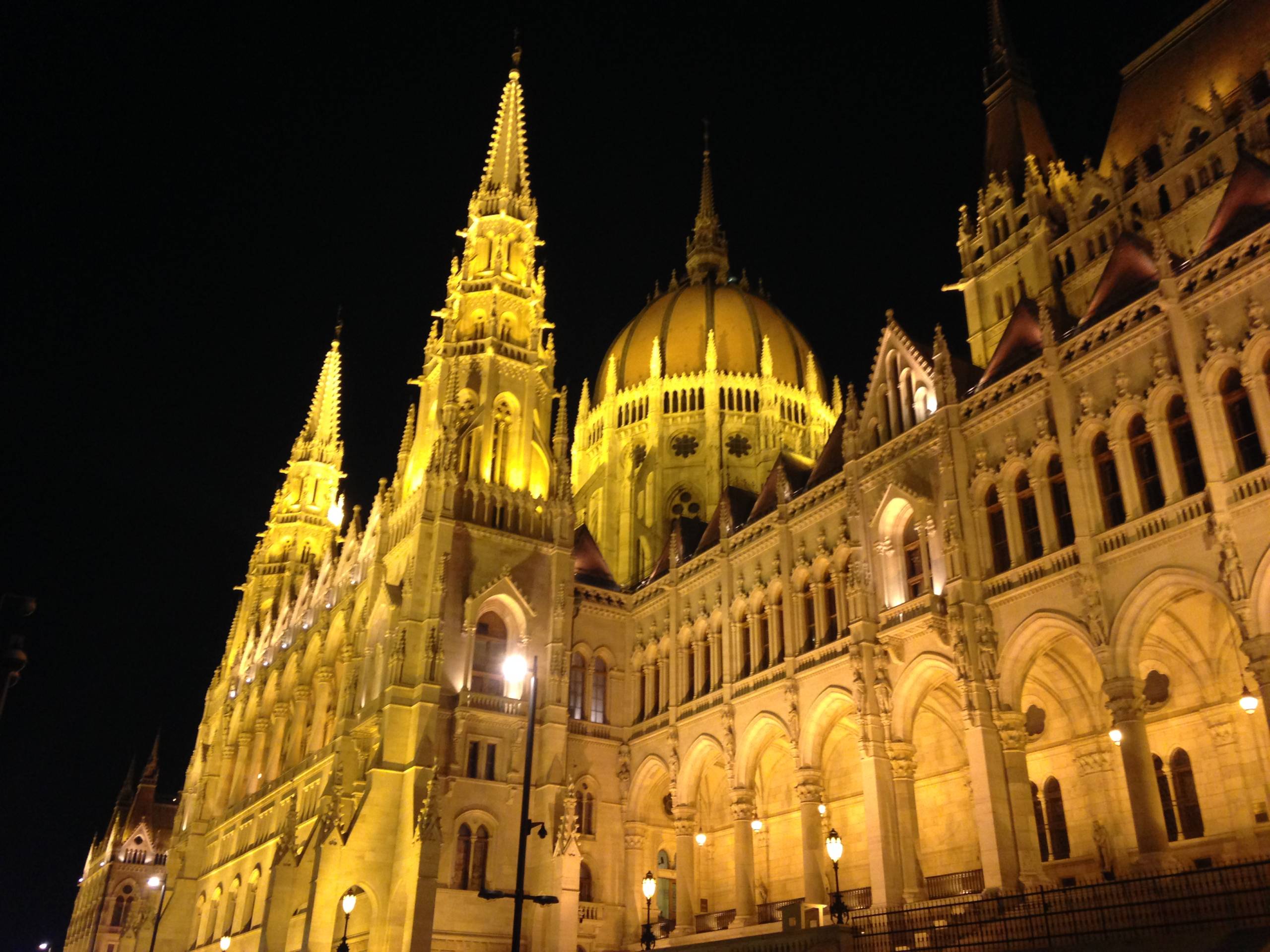
As of March 7, Hungary ended all COVID-19-related travel restrictions for travelers , including Americans, according to the U.S. Embassy in Hungary .
The U.S. State Department's advisory for Hungary is Level 1: Exercise Normal Precautions .

Iceland is welcoming U.S. travelers — and as of Feb. 25, there are no longer any testing or vaccination requirements to enter from any country.
Related: Iceland lifts all COVID-19 restrictions
Read the latest updates on Icelandair's website and check the U.S. Embassy in Iceland for additional information.
The U.S. State Department's advisory for Iceland is Level 1: Exercise Normal Precautions .
Related: 9 reasons you should visit Iceland

As of March 6, Ireland has dropped all COVID-19-related entry requirements for both vaccinated and unvaccinated travelers; completing a passenger locator form is also no longer required.
Updates on traveling to Ireland are here . Details on loosened restrictions within Ireland can be found here and here .
Masks are no longer required but are still recommended on public transportation and in health care settings.
For additional information, visit the U.S. Mission Ireland's website .
The U.S. State Department's advisory for Ireland is Level 1: Exercise Normal Precautions .
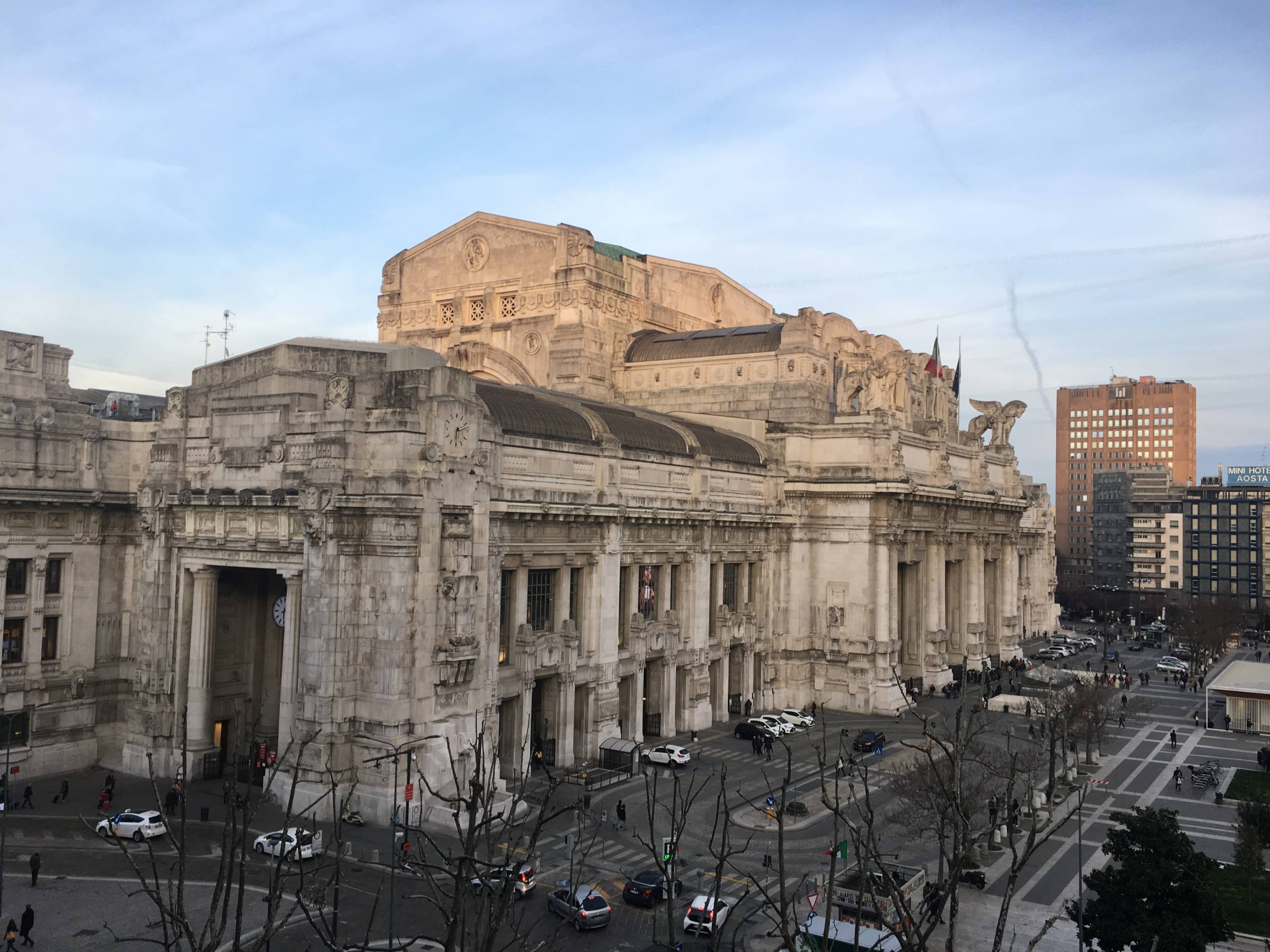
Italy is open for tourism — and as of June 1, both vaccinated and unvaccinated travelers can enter without any COVID-19 vaccination or testing restrictions.
All passengers traveling to Italy had been required to fill out the EU Digital Passenger Locator Form , but that requirement ended on May 1.
In addition, as of June 1 proof of vaccination (the "Green Pass") is no longer required to visit museums, dine in restaurants, use public transportation and access most other indoor venues. Masks are recommended but no longer required on public transport.
Check the U.S. Embassy & Consulates in Italy website for additional information. The latest updates by Italy's Ministry of Foreign Affairs can be found here .
The U.S. State Department's advisory for Italy is Level 2: Exercise Increased Caution .
Kosovo has reopened its borders to Americans and Prishtina International Airport (PRN) is open. According to the U.S. Embassy in Kosovo , as of May 1, travelers can enter Kosovo without proof of vaccination or a negative COVID-19 test, but the embassy says that travelers should bring their vaccination certificate with them because it is still required to enter certain indoor spaces.
The embassy also notes: "Airlines, transit points, and destination countries impose a patchwork of different testing requirements and airlines may refuse boarding for some passengers (including U.S. citizens and Kosovo residents). Airlines have the sole authority to decide who they allow to board their aircraft. Generally, pre-travel testing is recommended."
To dine inside restaurants or enter museums, malls or public institutions, anyone over the age of 16 must show evidence of vaccination or a negative PCR or rapid antigen test.
The U.S. State Department's advisory is Level 2: Exercise Increased Caution .

Americans can visit Latvia and, according to the U.S. Embassy in Latvia , the country ended entry protocols for travelers from non-high-risk countries as of April 1. Currently, the U.S. is not on the high-risk list and Americans can visit whether they are vaccinated or not without the need to pretest or register.
The U.S. State Department's advisory for Latvia is Level 1: Exercise Normal Precautions .
Liechtenstein
Switzerland handles immigration and customs matters for Liechtenstein, meaning that as long as you are qualified to enter Switzerland , you are able to enter Liechtenstein since there's an open border between the two countries.
All Americans had been allowed in for tourism as of June 28, 2021, according to the U.S. Embassy, and as of May 2, 2022, all Americans, no matter their vaccination status, can enter Liechtenstein without any pandemic-related measures.
Travelers can check their eligibility to enter Switzerland and Liechtenstein at the countries' online Travelcheck . They can also check with the Swiss Embassy in Washington, D.C .
All COVID-19-related restrictions for businesses and public transportation have been lifted. Details are here .
The U.S. State Department's advisory for Liechtenstein is Level 1: Exercise Normal Precautions .

Americans can visit Lithuania for any purpose, and as of May 1, according to the U.S. Embassy in Lithuania , all COVID-19-related entry requirements have been lifted.
Information on entry to Lithuania can be found here . Information about the current restrictions and recommendations can be found on the Ministry of Health's webpage .
The U.S. State Department's advisory for Lithuania is Level 1: Exercise Normal Precautions .

According to the U.S. Embassy in Luxembourg , as of Oct. 1, all travelers from the U.S., regardless of their vaccination status, can enter Luxembourg.
Details on travel to Luxembourg are available here .
Masks and CovidCheck are no longer required for entrance to bars, restaurants, stores or on public transportation (only for hospitals and nursing homes). Read more about Luxembourg's restrictions here .
The U.S. State Department's advisory for Luxembourg is Level 1: Exercise Normal Precautions .
There are no COVID-19-related travel requirements in place for entering Malta.
Details are available on the Ministry of Health website .
Masks are now required only in certain settings such as hospitals and care homes.
The U.S. State Department's advisory for Malta is Level 1: Exercise Normal Precautions.
As of March 16, Moldova has lifted all COVID-19-related entry restrictions and Americans are permitted to enter Moldova.
Check the U.S. Embassy in Moldova's website and the Moldovan Border Police website for more information. Face masks are now recommended but not required in all indoor public spaces.
The U.S. State Department's advisory for Moldova is Level 2: Exercise Increased Caution .
According to the Monaco government's COVID-19 website , as of Aug. 12, access to the principality of Monaco is no longer subject to the presentation of a health pass/vaccination certificate.
France , which dropped all COVID-19-related entry protocols on Aug. 1, handles immigration and customs for Monaco.
The U.S. State Department's advisory for France and Monaco is Level 2: Exercise Increased Caution .
Montenegro is open to Americans and the U.S. Embassy in Montenegro notes that as of March 11, no proof of vaccination, COVID-19 passports/certificates or COVID-19 tests are required to enter Montenegro.
Face masks must be worn on all public transportation and in hospitals and collective accommodations.
The U.S. State Department's advisory for Montenegro is Level 1: Exercise Normal Precautions .
The Netherlands

The Netherlands lifted all remaining COVID-19 entry restrictions as of Sept. 17, meaning all international travelers can visit without proof of vaccination required.
Visit the U.S. Embassy in the Netherlands for additional information and the latest updates from the government of The Netherlands can be found here and here .
The U.S. State Department's advisory for the Netherlands is Level 2: Exercise Increased Caution .
North Macedonia

North Macedonia is now open to all tourists, including Americans, with no testing or vaccination requirements, according to the U.S. Embassy in North Macedonia .
The U.S. State Department's advisory for North Macedonia is Level 1: Exercise Normal Precautions .

As of Feb. 12, Norway's travel restrictions have been lifted. The same rules as prior to the COVID-19 pandemic now apply. There are no requirements for testing, quarantine or registration upon arrival in Norway, according to the U.S. Embassy in Norway .
Detailed information about travel to Norway and national and local COVID-19 prevention measures are available on Health Norway's website .
The U.S. State Department's advisory for Norway is Level 1: Exercise Normal Precautions .

As of March 28, Poland has lifted all vaccination and testing requirements for all arriving travelers, including those from outside the EU/Schengen Area. All U.S. citizens are now permitted to visit.
Details and updates can be found here .
Check with the U.S. Embassy ; additional information is available here .
The U.S. State Department's advisory for Poland is Level 1: Exercise Normal Precautions .
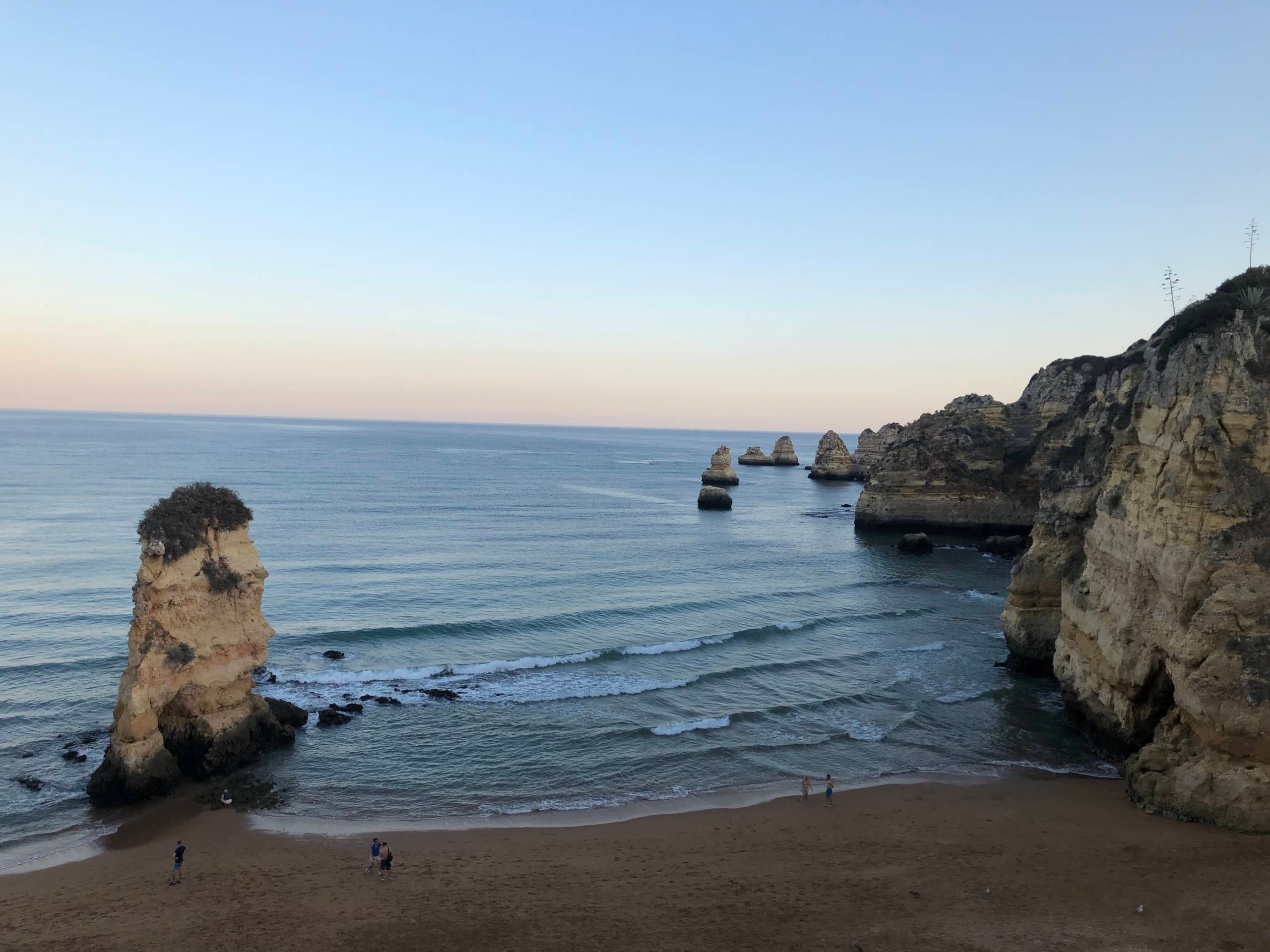
As of July 1, Portugal has dropped all COVID-19-related vaccination and testing restrictions and U.S. travelers can visit without any pre-travel requirements.
More information is available at Visit Portugal and through the U.S. Embassy in Portugal .
Masks are required on public transportation and in health care facilities and nursing homes.
The U.S. State Department's advisory for Portugal is Level 1: Exercise Normal Precautions .
As of March 9, Romania has lifted all COVID-19-related entry restrictions, according to the U.S. Embassy in Romania , and foreign citizens entering Romania no longer need proof of vaccination or a negative test result.
Travelers planning to visit Romania can also check the Embassy of Romania in Washington, D.C. , for updates.
The U.S. State Department's advisory for Romania is Level 1: Exercise Normal Precautions .
Travel to Russia is not advised due to the invasion of Ukraine by Russian forces, which has limited international transportation options as airlines have canceled flights to and from the country. In addition, most cruise lines have canceled scheduled port calls on St. Petersburg .
The Russian government requires that all foreign travelers present proof of a negative COVID-19 PCR test result upon arrival, dated within two days prior to arrival in Russia, along with completion of a digital form that must be printed out and presented to customs in Russia.
The U.S. Embassy in Moscow advises U.S. citizens not to travel to Russia as the country's infrastructure has been unsettled by global sanctions imposed since the Ukraine invasion and because Russia is one of the countries "most affected" by COVID-19. Cases and deaths have surged, hitting record highs through mid-February.
The U.S. State Department's advisory for Russia is Level 4: Do Not Travel .
As of May 3, all travelers entering Serbia no longer need to provide proof of a negative COVID-19 test, according to the U.S. Embassy in Serbia . Most pandemic-related restrictions have gradually been lifted.
The U.S. State Department's advisory for Serbia is Level 2: Exercise Increased Caution .
According to the U.S. Embassy in Slovakia , as of April 6, all COVID-19-related requirements for entry to Slovakia are canceled, regardless of vaccination status, and Americans are allowed to visit for tourism.
As of April 23, most social restrictions were ended and masks are no longer required in public spaces other than health care settings.
The U.S. State Department's advisory for Slovakia is Level 1: Exercise Normal Precautions .
Slovenia has ended its RVT (recovered, vaccinated or tested) rule for entry, according to the Slovenian Tourist Board . Additional information is available here .
Check the U.S. Embassy in Slovenia website for additional information.
All travelers entering Slovenia by air or sea still need to fill out a digital passenger locator form .
The State Department's advisory for Slovenia is Level 1: Exercise Normal Precautions .

On Oct. 21, Spain dropped all remaining COVID-19-related entry requirements , becoming one of the last countries in Europe to do so.
Further details can be found here or on the U.S. Embassy in Spain's website .
The U.S. State Department's advisory for Spain is Level 2: Exercise Increased Caution .

As of April 1, Sweden has lifted all COVID-19-related entry restrictions and bans. Those traveling to the country do not require proof of vaccination or a negative test, according to the Swedish Border Police .
The U.S. Embassy in Sweden also has information on traveling to Sweden.
As of Feb. 9, Sweden has dropped all domestic COVID-19-related restrictions, including the wearing of face masks on public transit and capacity limits and vaccine requirements for restaurants.
The U.S. State Department's advisory for Sweden is Level 1: Exercise Normal Precautions .
Switzerland

According to the U.S. Embassy in Switzerland , as of May 2, 2022, all Americans, vaccinated or not, can visit Switzerland without any COVID-19-related protocols.
Travelers can check their eligibility to enter Switzerland at the country's online Travelcheck . They can also check with the Swiss Embassy in Washington, D.C .
All COVID-19-related restrictions for business and public transportation have also been lifted as of May 2. Details are here .
The U.S. State Department's advisory for Switzerland is Level 1: Exercise Normal Precautions .
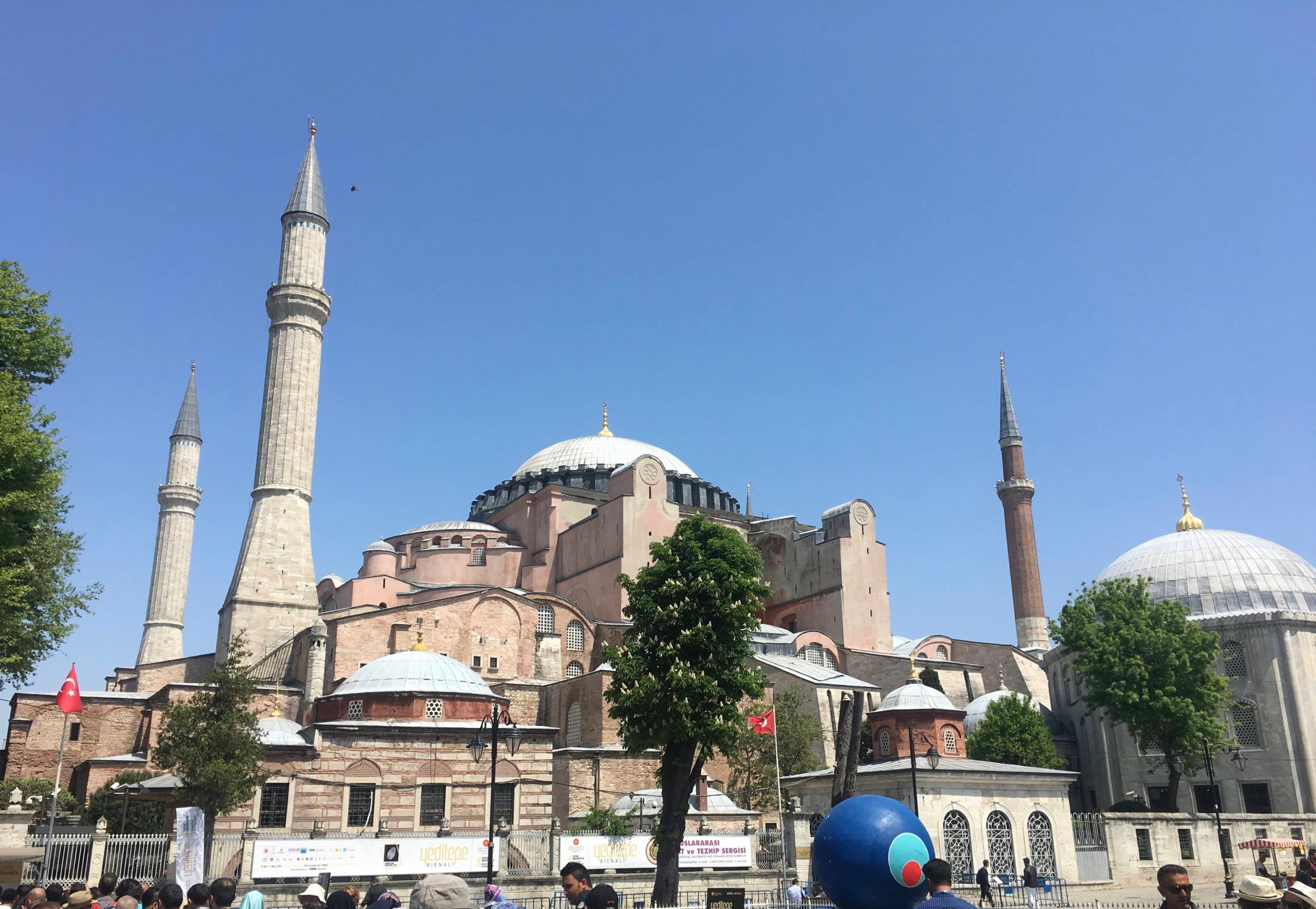
Turkey's international borders are open for travelers from a number of countries, including the U.S., according to the U.S. Embassy in Turkey .
As of June 1, Turkey has dropped all COVID-19-related entry requirements, so proof of vaccination or a negative COVID-19 test is no longer required.
The Turkish Ministry of Health announced on March 2 that masks are no longer required outdoors and indoors if air circulation and social distancing are adequate. Restaurants are open without restrictions.
The U.S. State Department's advisory for Turkey is Level 2: Exercise Increased Caution .
Due to the heavy and sustained armed war with Russia within Ukraine, as well as the government's state of emergency and COVID-19, any travel to Ukraine at this time is not advised. Those U.S. citizens currently in Ukraine should depart immediately, per the U.S. Embassy in Ukraine .
All U.S. citizens age 12 and older who choose to enter Ukraine from the U.S. or another "Red Zone" country must present proof of a negative COVID-19 PCR or rapid antigen test taken within 72 hours of arrival; or, they can present a document confirming the receipt of a full course of vaccination against COVID-19 with vaccines on the WHO's list of approved vaccines.
U.S. citizens traveling to Ukraine must also demonstrate that they have medical insurance covering all expenses related to COVID-19 treatment while in Ukraine.
Since Aug. 5, 2021, all foreign tourists over 18 years old who have not been vaccinated must self-isolate for 10 days and monitor such via the Vdoma mobile app, to be shortened by testing negative within three days. Quarantine is not required if you are in the country for less than 72 hours.
Mask-wearing is mandatory on public transportation and in indoor public spaces.
The U.S. State Department's advisory for Ukraine is Level 4: Do Not Travel .
United Kingdom
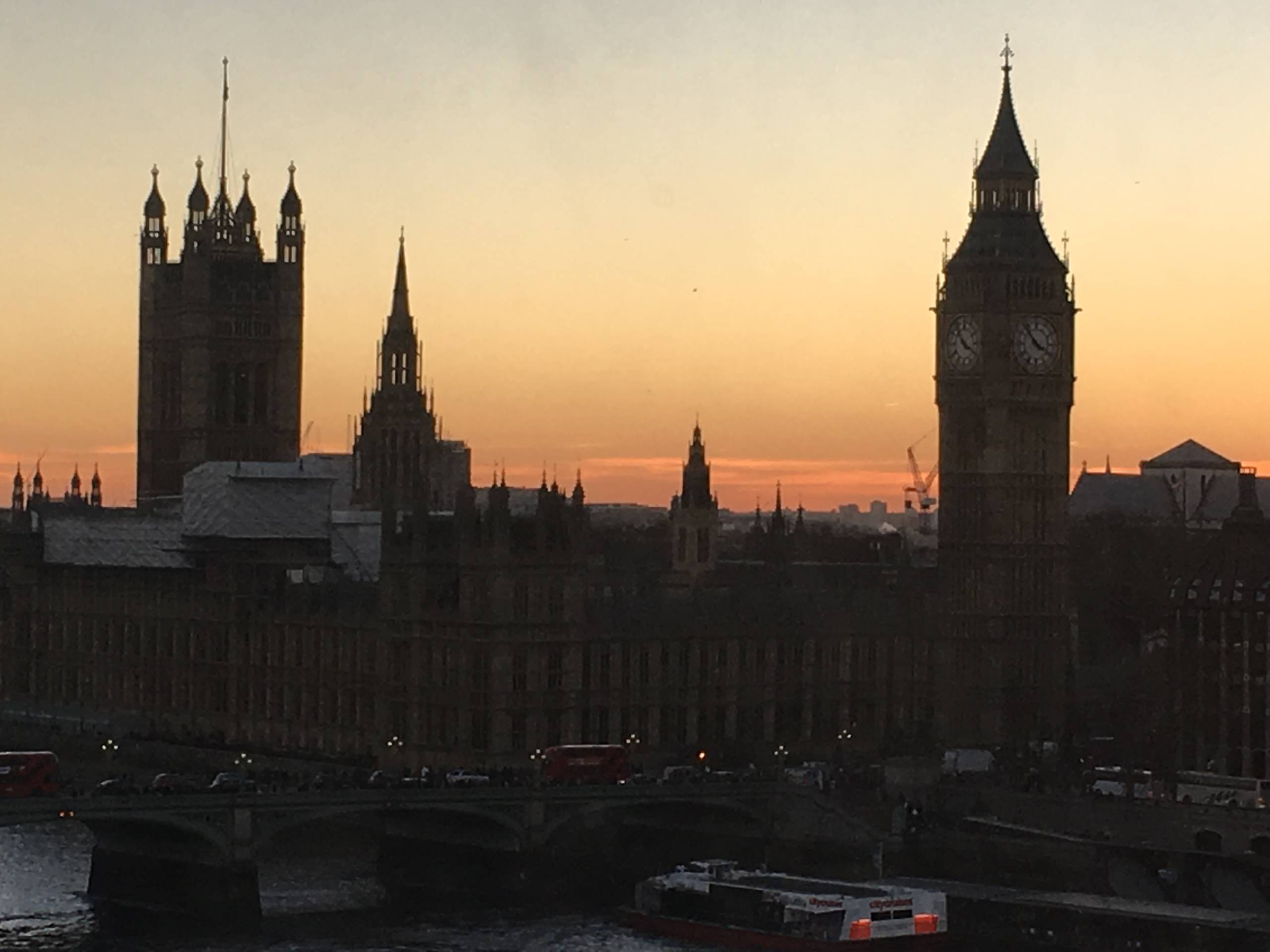
As of March 18, the United Kingdom has lifted all COVID-19-related entry requirements, so U.S. travelers no longer need to show proof of vaccination, recovery or a negative test to enter. The need to fill out an online passenger locator pass has also ended.
All four nations that comprise the U.K. have separate COVID-19 regulations: England's are here , Scotland's are here , Northern Ireland's are here and Wales' are here ..
The U.S. State Department's advisory for the U.K. is Level 2: Exercise Increased Caution .
Visit the U.S. Embassy in the United Kingdom for regular updates.
Central America

Philip Goldson International Airport (BZE) reopened on Aug. 15, 2020, and the return of tourism began on Oct. 1, 2020, with travel requirements in place. But as of July 12, Americans and all international visitors are welcome to visit Belize without any vaccination or testing requirements required. As of April 1, the country also removed all remaining in-country COVID-19-related restrictions, including mask mandates. Details are available here .
All travelers to Belize are advised to purchase local travel health insurance ($18 per person for a visit lasting up to 21 days) from Belize Travel Insurance , but it is not required.
The U.S. State Department's advisory for Belize is Level 2: Exercise Increased Caution .
Costa Rica — which reopened to Americans on Nov. 1, 2020 — repealed its COVID-19-related entry requirements as of April 1, 2022. Details can be found here .
Most businesses are open and face masks are recommended but no longer mandatory in all indoor public settings. Beaches are open and national parks are welcoming visitors at 100% capacity.
Travelers can also check the U.S. Embassy in Costa Rica website for information.
The U.S. State Department's travel advisory for Costa Rica is Level 2: Exercise Increased Caution .
El Salvador
The country of El Salvador reopened for commercial flights to Óscar Arnulfo Romero International Airport (SAL) in San Salvador on Sept. 19, 2020.
Local businesses are open with no restrictions. According to the U.S. Embassy in El Salvador , as of Nov. 17, 2021, the government of El Salvador removed the COVID-19 test and/or vaccination requirements for entry. Travelers are advised to confirm with their airlines that the airline understands and has implemented this change to avoid complications at their departure airport.
The country has said arriving passengers will face temperature checks. A curfew is currently not in place and there are no quarantine requirements for visitors.
The U.S. State Department's travel advisory for El Salvador is Level 3: Reconsider Travel .
Guatemala began slowly reopening to tourism on Sept. 18, 2020, and La Aurora International Airport (GUA) is accepting international arrivals. As of Aug. 12, the country removed all COVID-19-related entry protocols, according to the U.S. Embassy in Guatemala .
Upon arrival, travelers must pass through health checkpoints and masks are required in some public settings.
The U.S. State Department's advisory for Guatemala is Level 3: Reconsider Travel .
Honduras reopened for tourists from all countries on Aug. 17, 2020, with its international airports in operation. Spirit Airlines has resumed service from Fort Lauderdale and Houston, and American Airlines is flying from Miami.
Entering visitors must complete a government registration form and print it, as well as present their original vaccination certificate indicating they are 14 days or more past completing their vaccination or proof of a negative COVID-19 PCR or rapid antigen test taken within 72 hours of check-in at the airport. They will also be required to sign an affidavit and complete customs forms.
Updates on guidelines can be found on the U.S. Embassy in Honduras website .
The U.S. State Department's advisory for Honduras is Level 3: Reconsider Travel .

Nicaragua never really shut down. There were never any stay-at-home or social distancing orders and there are continued questions about how many cases Nicaragua actually has had. In addition, only limited flights from the U.S. have resumed (on Avianca and Copa).
The U.S. Embassy in Nicaragua notes that U.S. travelers are allowed to enter Nicaragua, and proof of COVID-19 vaccination or a negative COVID-19 test result taken within 72 hours of travel is required for entry. Travelers should also be prepared for additional health screenings and may be asked to produce their negative test results. Anyone entering Nicaragua from a country with a known yellow fever risk must also show proof of vaccination at least 10 days prior to arrival.
The U.S. State Department's advisory for Nicaragua is Level 3: Reconsider Travel .
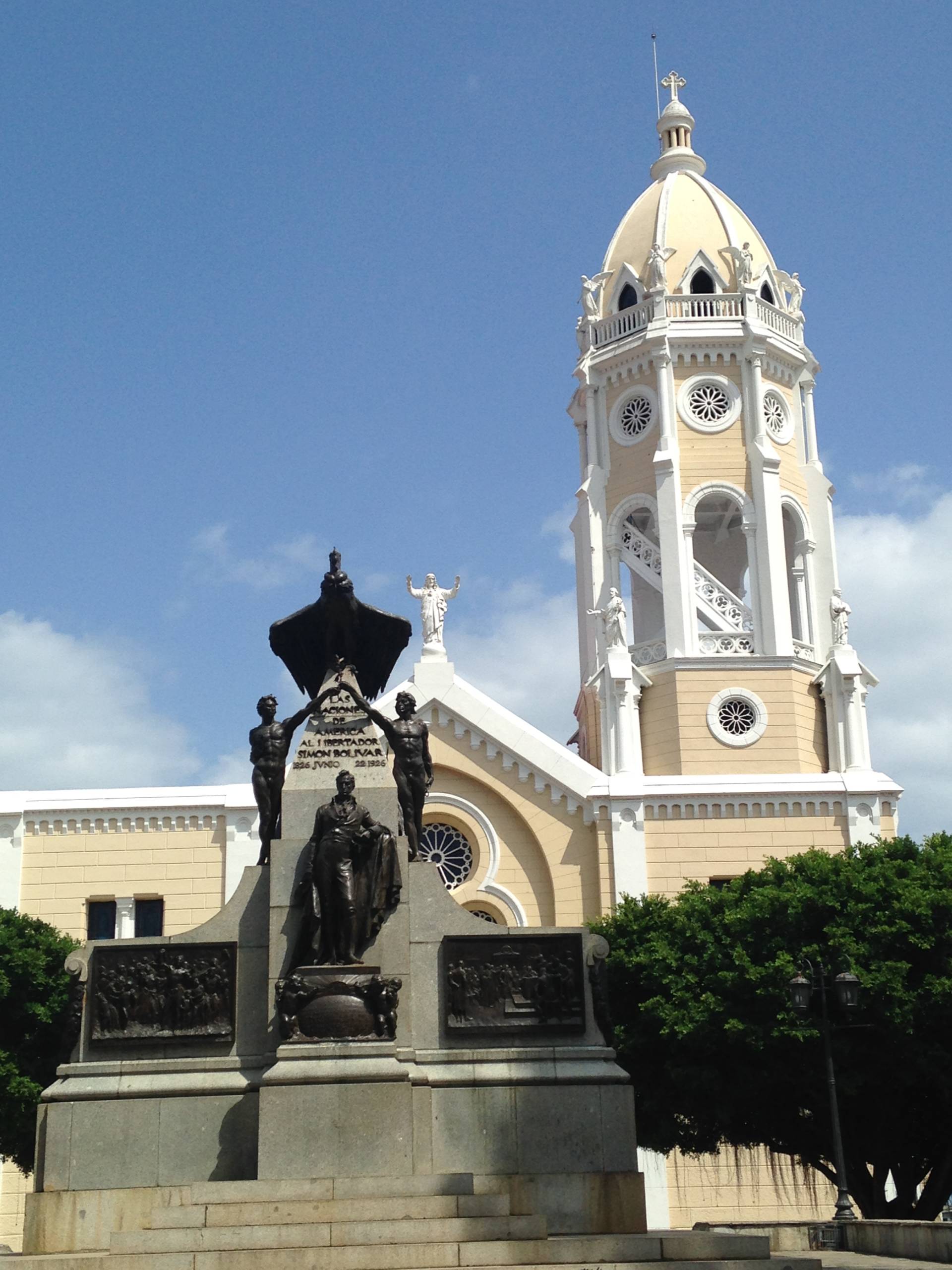
Panama reopened its airport in late August 2020 and tourism resumed on Oct. 12, 2020. The country lifted all remaining COVID-19 entry restrictions for travelers on Sept. 16. Details are available here .
As of July 11, face masks are required only on public transportation and in hospital and health care settings.
The U.S. Embassy in Panama notes on its website that the U.S. State Department has issued a Level 2: Exercise Increased Caution advisory.
South America
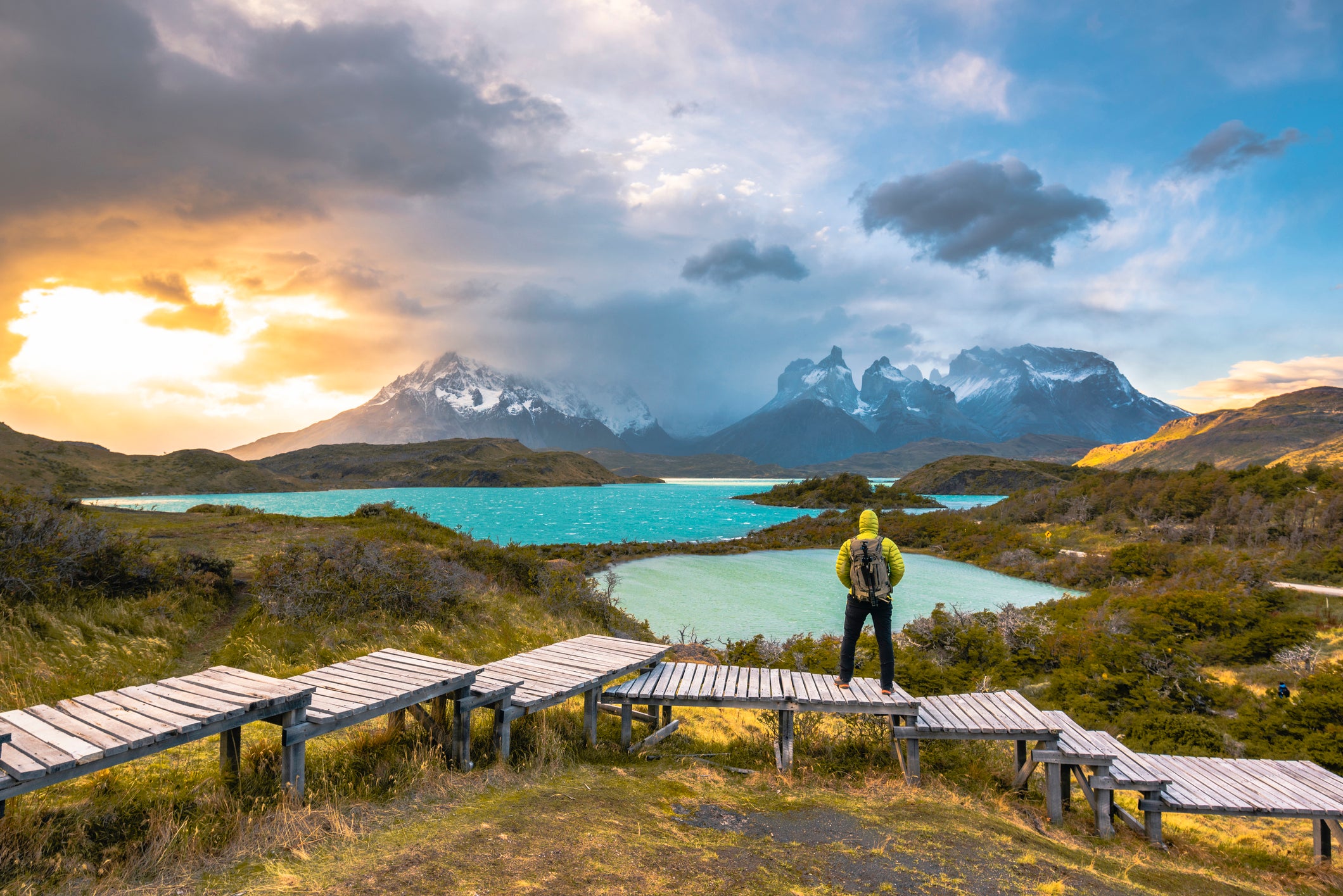
Argentina had one of the world's strictest travel bans, restricting all international visitors until Nov. 1, 2021, when fully vaccinated foreigners (including Americans) were allowed to enter the country. As of early April 2022, all international visitors are welcome, without the need to be vaccinated or tested. See details here .
Visit the U.S. Embassy in Argentina for additional information.
The U.S. State Department advisory for Argentina is Level 1: Exercise Normal Precautions .
Bolivia had been off-limits to tourists, but the country is now open to visitors, according to the U.S. Embassy in Bolivia , with a notation that travelers should be prepared for additional travel restrictions affecting international travel to be put into effect with little or no advance notice.
U.S. citizens will need to obtain a tourist visa ($160 and valid for 30 days).
Entry rules now require travelers to Bolivia, regardless of their country of origin, to present either a COVID-19 vaccination certificate or submit proof of a certified negative COVID-19 PCR test taken within 72 hours of their flight or a negative antigen test taken within 48 hours (children 5 years old and younger are exempt).
Face masks are required in some public spaces.
The U.S. Embassy reports that commercial flights have resumed — Boliviana de Aviacion has flights between La Paz and Miami — but travelers should expect that additional restrictions affecting international travel could be put in place with little advance notice.
The U.S. State Department's travel advisory for Bolivia is Level 2: Exercise Increased Caution .
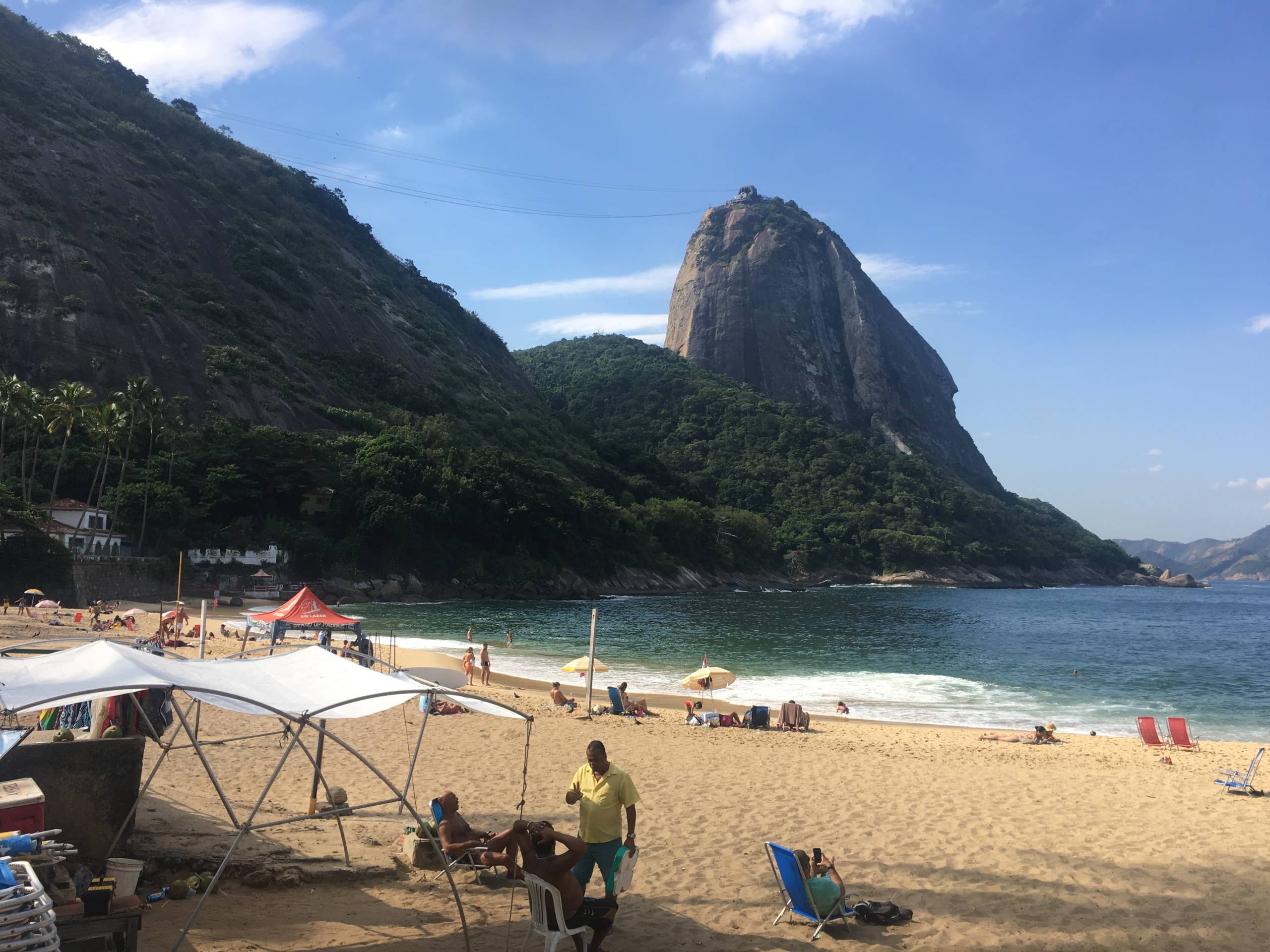
Brazil, a large and populous country, has had the most coronavirus cases in South America. As of Sept. 12, all international travelers, both fully vaccinated and those who are unvaccinated with a negative pre-travel test, are welcome to visit Brazil. Details can be found here .
Fully vaccinated travelers to Brazil are required to present proof of full vaccination to their airline. It can be electronic or printed, but proof in the form of just a QR code will not be accepted.
Unvaccinated travelers must present proof of a negative COVID-19 PCR test or a negative laboratory antigen test taken within one day of boarding.
Brazil no longer requires proof of health insurance for entry, but the U.S. State Department continues to recommend that all travelers purchase insurance before departing the U.S. For updates, check the U.S. Embassy in Brazil's website.
The U.S. State Department's travel advisory for Brazil is Level 2: Exercise Increased Caution .
Chile is welcoming international travelers — and proof of vaccination or a negative COVID-19 test is once again required as of Sept. 1.
According to both the U.S. Embassy in Chile and the Chile Tourism website , any noncitizen or nonresident planning to enter Chile must do the following:
- Travelers age 18 and older to Chile need to provide proof of vaccination when boarding their flight to Chile or proof of a negative COVID-19 PCR test taken within 48 hours of boarding. Random testing may also occur upon or after arrival.
- Travelers visiting the remote Chilean island of Rapa Nui (Easter Island) must be fully vaccinated, have official reservations and fill out a Single Entry Form .
The U.S. State Department's travel advisory for Chile is Level 2: Exercise Increased Caution .
American tourists can visit Colombia, where international flights resumed on Sept. 21, 2020, according to the U.S. Embassy in Colombia . As of May 1, 2022, all visitors age 18 and older need to provide proof of full vaccination or a negative COVID-19 PCR test taken within 72 hours or a negative antigen test taken within 24 hours of their departure to Colombia.
Current requirements also call for all visitors to complete the online pre-travel registration form " Check-Mig " within 72 hours of their flight departure time. Further details are available here .
The U.S. State Department's advisory for Colombia is Level 3: Reconsider Travel .
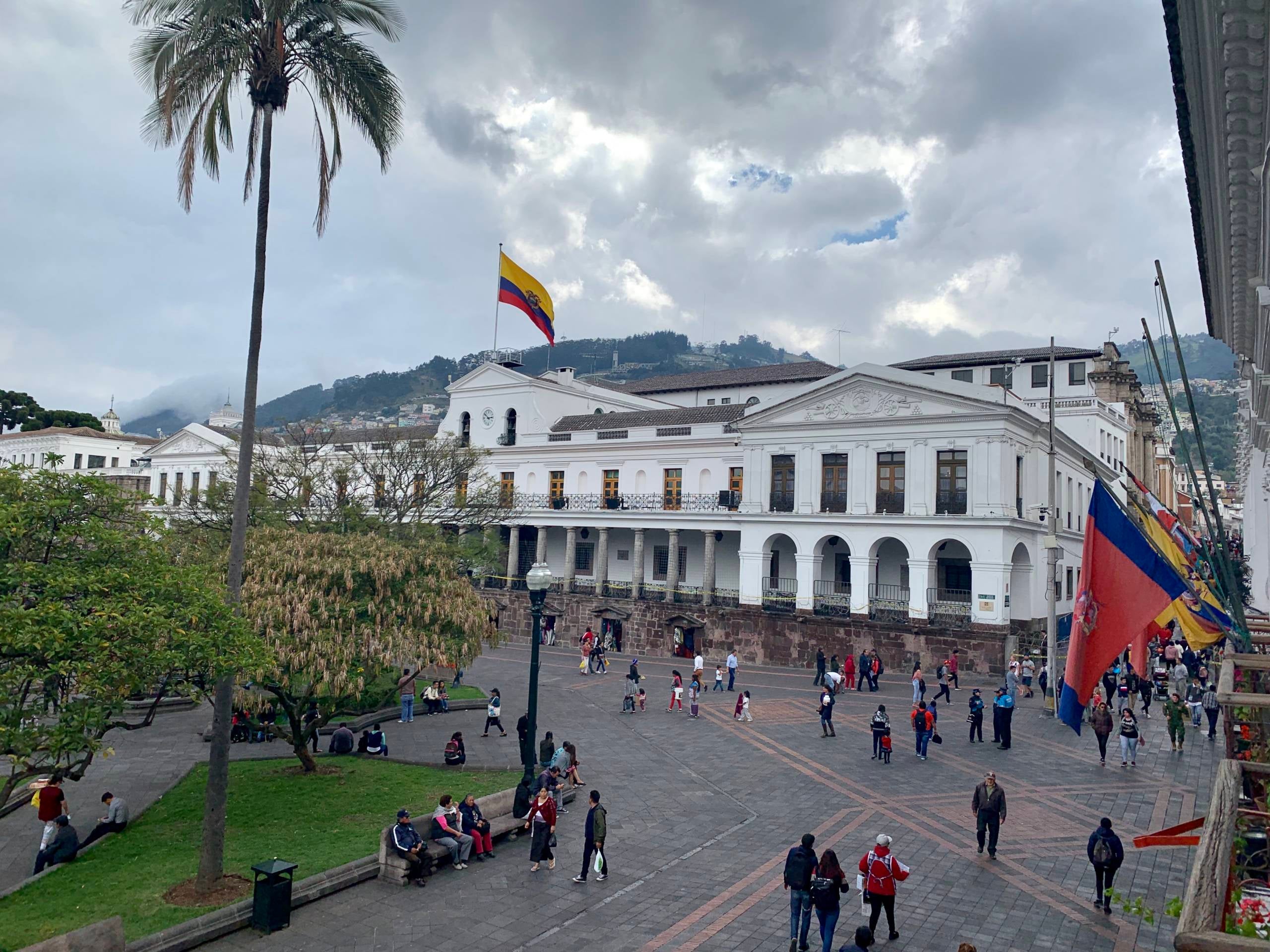
Ecuador is open for tourism, and as of Oct. 20, all COVID-19-related entry requirements for both the mainland and the Galapagos Islands have ended, per the Ecuador Tourism website . However, all visitors must still fill out an online health declaration form and visitors to the Galapagos are still required to present a "transit control card" issued by the Government of Galapagos. See details here .
The U.S. State Department's travel advisory for Ecuador is Level 2: Exercise Increased Caution .
Visit the U.S. Embassy in Ecuador website for additional information.
According to the U.S. Embassy , vaccinated Americans can visit Guyana. As of June 18, all travelers over the age of 12 must present proof of being fully vaccinated against COVID-19 (at least two weeks past their final shot). Predeparture testing is no longer required to enter Guyana.
Restaurants are open and dining is allowed at 100% capacity. Mask-wearing in public is no longer mandatory but is strongly encouraged.
The U.S. State Department's travel advisory for Guyana is Level 3: Reconsider Travel .
According to the U.S. Embassy in Paraguay , the country no longer requires proof of vaccination or a negative COVID-19 test to enter.
The embassy also says that U.S. citizens do not need a visa for visits of up to 90 days for tourism or business. Face masks are no longer mandatory, but are recommended.
The U.S. State Department's advisory for Paraguay is Level 1: Exercise Normal Precautions .
The U.S. Embassy in Peru reports that direct flights from the U.S. are available and as of Nov. 1, Americans are now welcome to enter Peru without proof of COVID-19 vaccination or a negative test result.
Check the Peru Tourism website for additional updates.
The U.S. State Department's advisory for Peru is Level 3: Reconsider Travel .
Uruguay reopened to fully vaccinated international travelers on Nov. 1, 2021, and commercial flights have resumed. According to the U.S. Embassy in Uruguay , unvaccinated travelers can enter with testing. Here's what's required:
- Vaccinated travelers require proof of vaccination, but no longer require a pre-travel negative test.
- Unvaccinated travelers require proof of a negative PCR or antigen test taken within 72 hours before initiating travel (minors under age 6 are exempt)
- Proof of health insurance effective in Uruguay for the duration of your stay is required for all foreign travelers entering Uruguay.
While travelers are no longer required to wear masks, the State Department recommends wearing face coverings inside crowded buildings and on public transportation.
The U.S. State Department's advisory for Uruguay is Level 2: Exercise Increased Caution .
Current entry protocols require that U.S. travelers apply for and obtain a visa and all arriving air passengers must present proof of full vaccination, either with a physical card or a digital card (with a QR code). A booster dose is required if the second dose was more than 270 days prior. If unvaccinated, a negative COVID-19 PCR test taken within 72 hours of arrival is required. There are health screenings upon arrival, but no quarantine is currently required.
For additional information, check with the U.S. Embassy in Venezuela .
The U.S. State Department has issued a Level 4: Do Not Travel advisory .
Bangladesh requires international visitors, including those from the U.S. States, to be fully vaccinated or present proof of a negative COVID-19 test result, according to the U.S. Embassy in Bangladesh .
U.S. citizens need a valid visa or "no visa required" seal to enter. Fully vaccinated travelers do not need to present proof of a negative pre-travel test, but those age 12 and older who are unvaccinated or partially vaccinated must have a negative COVID-19 PCR test result taken within 72 hours of travel to Bangladesh.
The U.S. State Department's advisory for Bangladesh is Level 2: Exercise Increased Caution .
Cambodia, which reopened for tourism early in 2022 now has no pre-travel testing or proof of vaccination required for visitors as of Oct. 6, according to the U.S. Embassy in Cambodia .
All travelers must obtain a visa to enter the country and are encouraged to purchase COVID-19 health insurance valid in Cambodia.
The U.S. State Department's advisory for Cambodia is Level 1: Exercise Normal Precautions .
China was where COVID-19 emerged, and the country suspended entry for nearly all foreigners — including all foreign spectators for the Beijing Winter Olympics, which took place Feb. 4-20, 2022 — and slashed the volume of international passenger flights to and from the country in March 2020. An outbreak in Xian in December 2021 and January 2022 resulted in a monthlong lockdown of the city's 13 million residents and another wave in March resulted in lockdowns in Shanghai and Guangzhou. Ongoing "zero-COVID" lockdowns have resulted in protests around the country in November that the government moved quickly to suppress , later announcing an easing to the length of the lockdowns it imposes.
The State Department's travel advisory for China remains at Level 3: Reconsider Travel , mainly due to arbitrary enforcement of local laws.
Strict anti-travel measures remain in place and tourism isn't allowed. The U.S. Embassy in China says that U.S. citizens with valid resident permits and visas can enter China "under certain conditions."
The latest health notice posted by the Embassy of the People's Republic in the U.S. on Nov. 12 requires that travelers to China obtain a COVID-19 PCR (nucleic acid) test from a certified lab, taken within 48 hours of departure, and then apply for a "health code" to receive a verified "green code" to present when boarding their flight. According to the U.S. Embassy, all arriving passengers are then screened and subject to a minimum 10-day quarantine. They may also be required to install location-tracking software on their phones to access public spaces and businesses.
For additional details on requirements for traveling to China, check with the Chinese Embassy in Washington, D.C., the U.S. Embassy in China and with your airline.

As of May 1, nonresident foreigners who are fully vaccinated can again enter Hong Kong, but proof of vaccination and multiple tests, both before departure and after arrival, are required.
According to the U.S. Consulate General Hong Kong & Macau , Americans can visit Hong Kong, but they must present either a record of full vaccination; a letter from a doctor certifying recovery from COVID-19 plus one dose of a recognized COVID-19 vaccine; or a letter from a doctor attesting to the traveler's inability to receive a COVID-19 vaccine due to a medical condition. Unvaccinated children under the age of 12 are permitted to enter Hong Kong when accompanying a vaccinated parent or caregiver.
As of Sept. 23, all travelers also must take a laboratory rapid antigen test within 24 hours of their flight and declare the negative result on an online Health & Quarantine Information Declaration . They must then present the generated QR code when checking in for their flight.
All mandatory hotel quarantine requirements have ended, but according to the U.S. Consulate General, upon arrival, all travelers will undergo a COVID-19 PCR test, with results available in 24 hours. They will be released immediately to begin a seven-day period of medical surveillance at their homes or accommodation. During the first three days, they will have an amber code and must avoid certain places under the Vaccine Pass scheme. During the remaining four days of medical surveillance, they will have a blue code and face no movement restrictions. On Day 2 (i.e. the day after arrival), they must undergo a PCR test at a community testing center (for free) or at a government-recognized medical facility (for a fee), and they must conduct RATs on days 1-7. A positive result on any of these tests, with accompanying COVID symptoms, will result in immediate hospitalization; a positive result with no symptoms will result in transfer to a Community Isolation Centre or COVID hotel. Please note that arriving travelers without Hong Kong cell phone numbers may have trouble receiving communications from Hong Kong health authorities concerning their COVID test results.
Complete details are available here and here .
Transit passengers are allowed as of April 1, according to Airport Authority Hong Kong. Transit passengers are international travelers who are only flying into Hong Kong in order to catch another flight. Transit passengers cannot leave the airport.
Related: Hong Kong airport to allow transit passengers as part of reopening
Additional details on entry requirements and testing for travelers are here and here . FAQ can be found here .
The U.S. State Department's advisory for Hong Kong is Level 3: Reconsider Travel .
The U.S. Embassy in India notes that travel to India for tourism and other short-term purposes has resumed fully for individuals holding tourist or e-tourist visas. Valid visas, which were previously suspended due to COVID-19-related precautions, have been fully reinstated and are valid for travel until their printed expiration dates.
According to the U.S. Embassy, all international passengers age 5 and older must either present a vaccination certificate proving full vaccination (India recognizes the CDC vaccination card) or a negative COVID-19 PCR test result taken within 72 hours of travel. As of Nov. 22, it is no longer necessary to upload the certificate or test results to the Air Suvidha portal .
Passengers may be tested again upon arrival (2% will be selected at random) and must self-monitor for 14 days. U.S. citizens who must travel to India are strongly urged to get fully vaccinated before travel and continue to take personal health safety measures to protect themselves.
The U.S. State Department's advisory for India is currently Level 2: Exercise Increased Caution .
Indonesia is open again for tourism. On Feb. 4, 2022, Bali reopened to all fully vaccinated international visitors . And now the entry protocols are the same throughout Indonesia.
According to the U.S. Embassy in Indonesia , travelers age 18 and older entering the country through airports, seaports and land borders must be fully vaccinated, but pre-travel testing is no longer required. They will undergo a symptom check upon arrival and travelers may be tested if their temperature is above 99.5 degrees. All travelers are also required to have international health insurance valid for COVID-19 treatment and medical evacuation from Indonesia and download the PeduliLindungi app.
Travelers who cannot be vaccinated for medical reasons and have a letter from a medical doctor are allowed to enter, but are required to undergo a five-day quarantine. There is no quarantine for fully vaccinated travelers.
Travelers must also have a short-visit visa or other entry permit; visas upon arrival are again available.
The U.S. State Department's travel advisory for Indonesia is Level 2: Exercise Increased Caution .
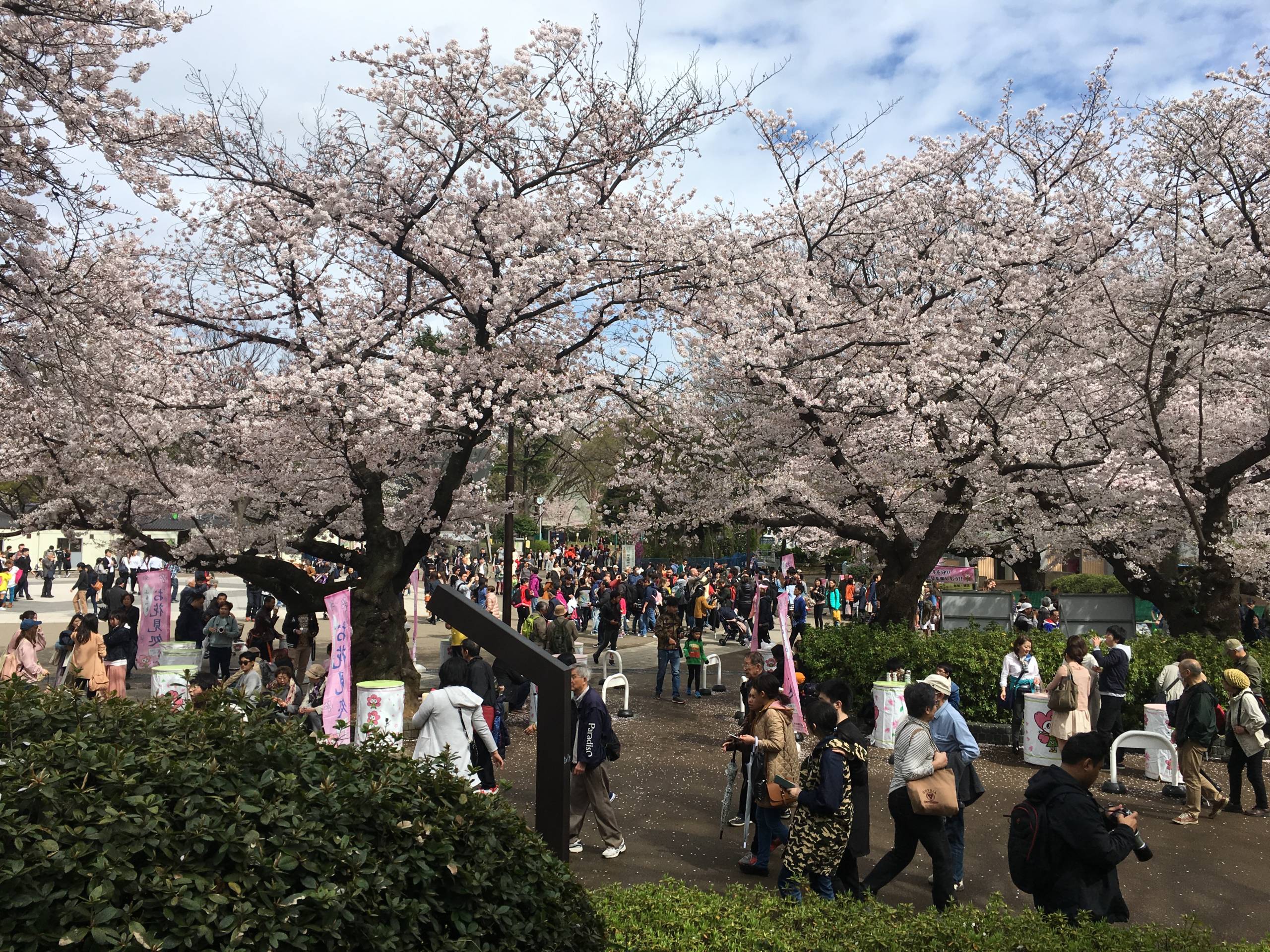
Japan reopened for visa-free tourism as of Oct. 11 .
The country had banned entry by all foreign nationals on Nov. 29, 2021, in response to the omicron variant and had been closed to tourism since 2020. It first began welcoming tourists on June 10 — but only on select tours with fixed schedules and guides.
Travelers age 18 and older who are fully vaccinated must present proof of vaccination. Unvaccinated travelers are permitted to enter Japan, but they must present a negative result of a COVID-19 PCR test taken within 72 hours of departure for Japan.
Requirements for accompanying children vary by age, with unvaccinated children age 6 to 18 required to present a negative COVID-19 PCR test taken within 72 hours while unvaccinated children under six years old not requiring a test. Details are here .
All arriving travelers must also present a completed health questionnaire. As of Nov. 1, travelers to Japan can pre-register here for airport immigration, Customs and vaccination review and use the Fast Track system at major airports throughout Japan.
The U.S. State Department's advisory for Japan is Level 1: Exercise Normal Precautions .
The landlocked Central Asian nation of Kazakhstan has reopened to Americans arriving via its international airports (visa-free for 30 days), according to the U.S. Embassy in Kazakhstan . International flights from Azerbaijan, China, South Korea, the Czech Republic, Germany and the United Arab Emirates have resumed.
A negative pre-travel COVID-19 PCR test is no longer required. The U.S. Embassy notes that travelers who enter with an elevated temperature will be isolated in a facility for infectious diseases.
The U.S. State Department's advisory for Kazakhstan is Level 2: Exercise Increased Caution . As of July 27, 2022, the U.S. Embassy in Kazakhstan advises travelers to reconsider travel to the country due to COVID-19 risk.
The U.S. Embassy in the Kyrgyz Republic says the entry ban for U.S. citizens was lifted in December 2020, but advises citizens that the country offers limited healthcare services. In the case of a COVID-19 infection, travelers might have a hard time getting the treatment they need.
Those who do visit Kyrgyzstan via airports in Bishkek, Osh and Issyk Kul no longer need to present either their original vaccine card showing full vaccination against COVID-19 or proof of a negative COVID-19 PCR test taken within 72 hours of arrival. But the U.S. Embassy still recommends carrying both since requirements are subject to change with little to no notice. U.S. citizens may now enter Kyrgyzstan from land crossings in Kazakhstan, but entering from land borders with China, Uzbekistan and Tajikistan is currently prohibited.
The U.S. State Department's advisory for Kyrgyzstan is Level 1: Exercise Normal Precautions .
As of May 9, fully vaccinated international travelers can enter Laos, but they must also apply for a visa, according to the U.S. Embassy in Laos . The CDC vaccination card is accepted as proof of vaccination. A negative PCR or antigen test is not required for entry.
The U.S. State Department's travel advisory for Laos is Level 2: Exercise Increased Caution .
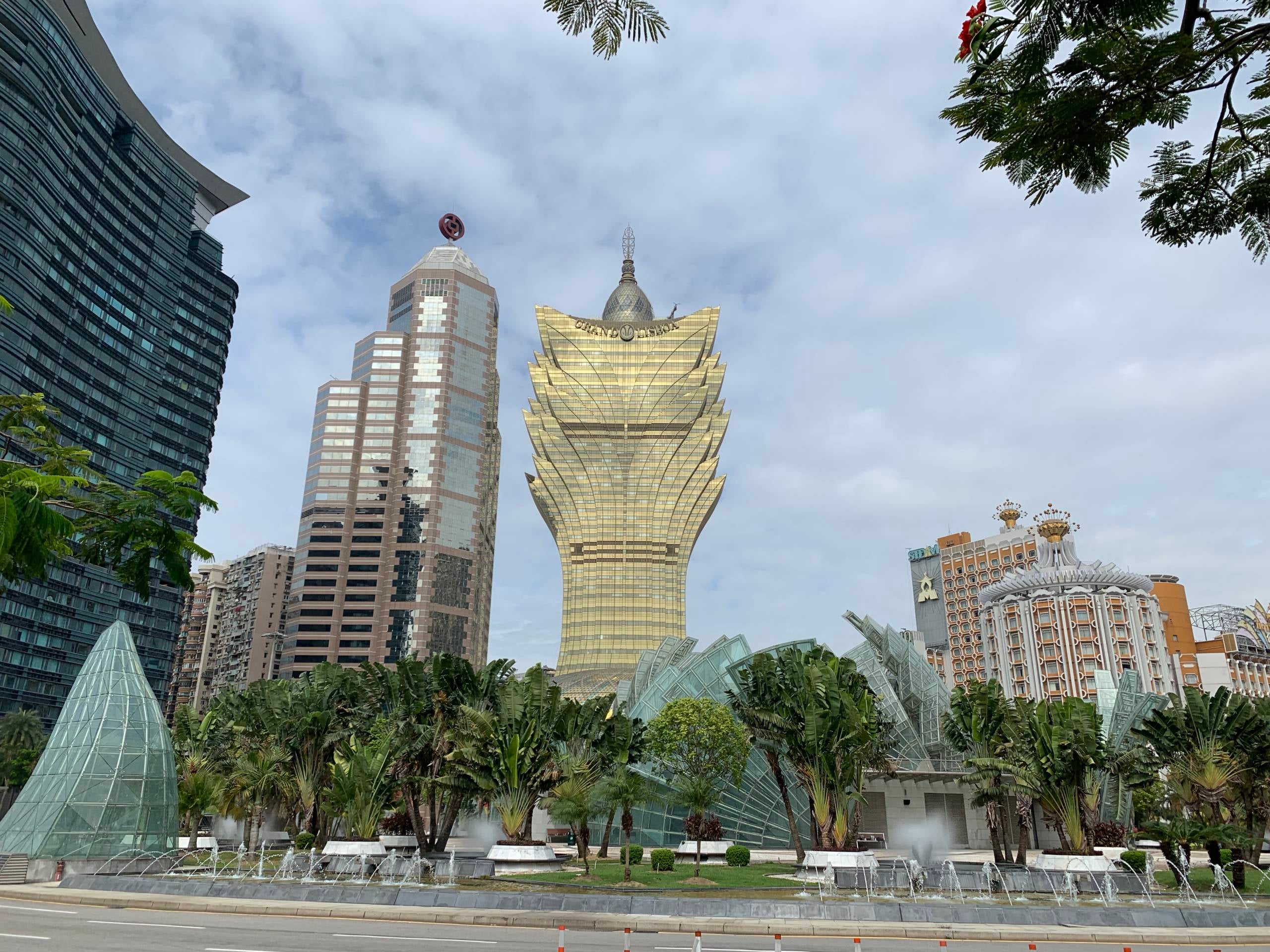
As of Sept. 1, passport holders of the U.S. and 40 other countries (including most of Europe, Canada, Australia, New Zealand, Japan, South Korea, Thailand, Malaysia and Singapore) can enter Macau without prior approval. They are, however, subject to the testing and quarantine requirements stipulated for all visitors. As of Nov. 13, travelers from beyond those previously stipulated may also enter if they fall into certain categories.
According to the U.S. Consulate General Hong Kong & Macau , travelers must present proof of a negative COVID-19 nucleic acid test (PCR) conducted within the past seven days, 48 hours or 24 hours, depending on their point of origin. Details can be found here .
See links on the U.S. Consulate General website for full details.
All outbound travelers from Macau must also test negative within seven days of departure.
The U.S. State Department's advisory for Macau is Level 3: Reconsider Travel .
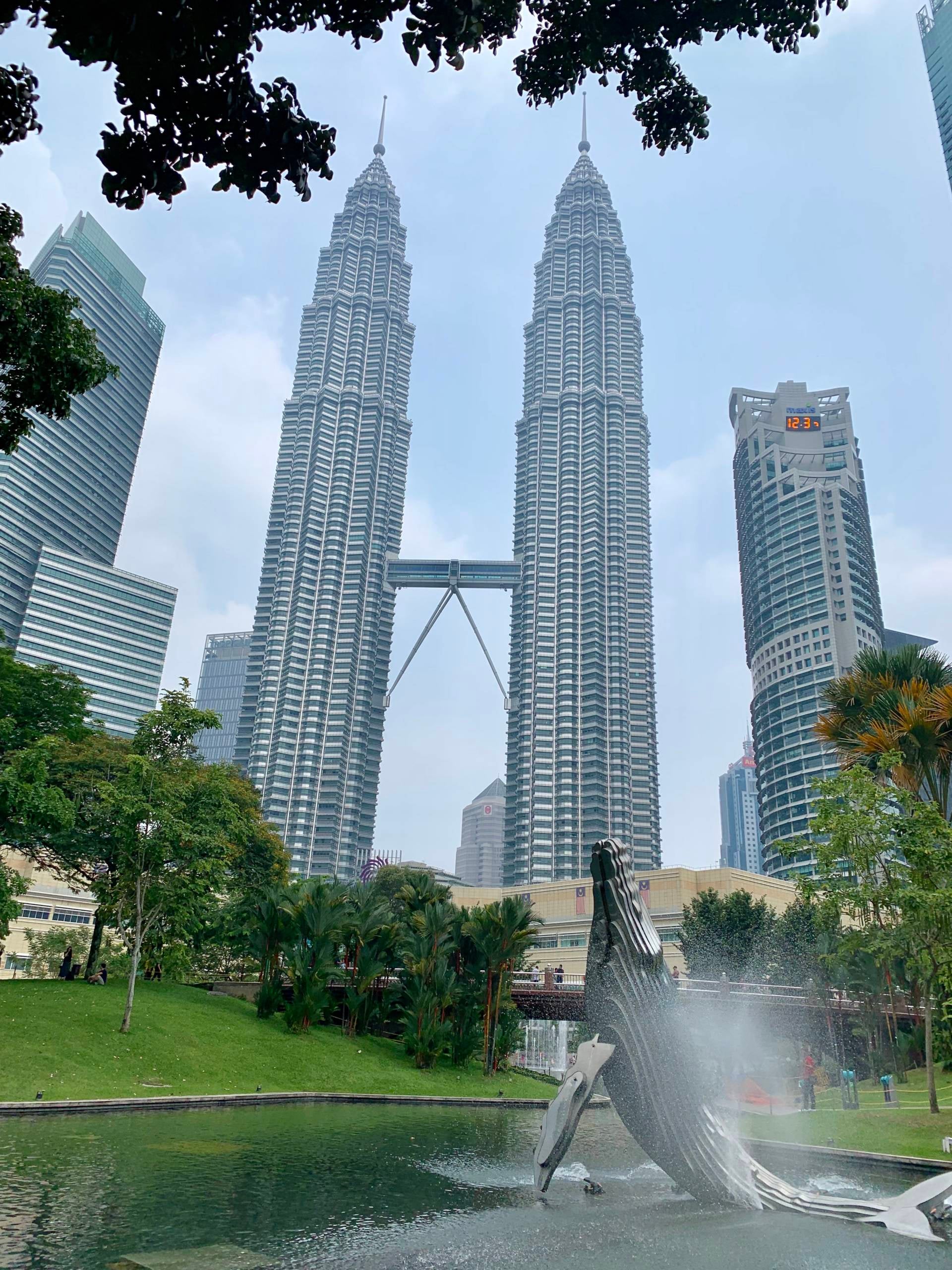
As of Aug.1, Malaysia has lifted all entry restrictions on foreign nationals, according to the U.S. Embassy in Malaysia . U.S. citizens and other non-Malaysian foreign travelers can now enter the country without proof of vaccination or a negative COVID-19 test result.
The embassy reports that arriving travelers are no longer required to download the MySejahtera app and complete the digital predeparture form, but the app should still be downloaded anyway to indicate ta traveler's risk status while in Malaysia and some businesses may ask to check the app before allowing entry.
Entry restrictions may change with little advance notice. Requirements may also vary throughout different regions of the country. The U.S. Embassy recommends checking the social media accounts of the Malaysian Ministry of Health and the Malaysian Immigration Department for the most recent updates on COVID-19 procedures.
The U.S. State Department's advisory for Malaysia is Level 1: Exercise Normal Precautions .
The Maldives
Travelers to the Maldives are no longer required to present proof of a pre-travel negative test as of March 14, when the island nation's public health emergency was revoked . However, travelers (with the exception of arriving tourists and returning residents of the Maldives) are encouraged to take a PCR test between three and five days after arrival.
Related: Where you can travel with no COVID-19 test required
According to the Maldives Immigration website, travelers do not need to be vaccinated for entry. However, all international visitors, including Americans, must still complete a traveler declaration within 72 hours prior to travel. A free 30-day tourist visa will be issued upon arrival. Further details can be found here .
If a traveler tests positive or is exposed to someone with COVID-19 while visiting the Maldives, they must complete a government-mandated quarantine at their own expense.
The latest update on resort openings can be found here .
Emirates is offering connections through Dubai from major global cities including Chicago. Etihad resumed flights from Abu Dhabi, United Arab Emirates, to the Maldives starting in July 2020. Turkish Airlines also started flights in July 2020.
Additional information can be found on the U.S. Mission to Maldives website . The U.S. State Department's advisory for the Maldives is Level 2: Exercise Increased Caution.
Mongolia lifted its restrictions on outbound and inbound travel in June 2021 and ended pre-travel testing requirements in March 2022, according to the U.S. Embassy in Mongolia .
U.S. citizens are allowed to visit, according to the U.S. Embassy, and do not need a visa for a stay of under 90 days (but for stays of more than 30 days, travelers are required to register and failure to do so will incur a fine of $100-$300). Passengers do not need to be vaccinated, but they must fill out a medical declaration form upon arrival.
The U.S. State Department's advisory for Mongolia is Level 1: Exercise Normal Precautions .
Nepal has fully reopened to tourists and as of March 10, 2022, all travelers arriving by air may now receive on-arrival visas (subject to proof of vaccination or negative test results).
According to the U.S. Embassy in Nepal , changes to restrictions and requirements can be enacted with little notice. With the March 10 changes , travelers can enter with proof of full vaccination and those who are not fully vaccinated (and older than 5 years of age) can enter by presenting proof of a negative COVID-19 PCR test taken within 72 hours of boarding their flight for Nepal.
For more information, check the Embassy of Nepal in Washington, D.C. , or Nepal's Department of Immigration .
The U.S. State Department's advisory for Nepal is Level 2: Exercise Increased Caution .
Pakistan has reopened for Americans. However, the U.S. State Department discourages travelers from visiting Pakistan at present due to terrorism and violence .
According to the U.S. Embassy , vaccinated individuals can enter Pakistan with proof of full vaccination, while unvaccinated individuals over the age of 12 must present the results of a negative PCR test taken within 72 hours of boarding their flight.
Americans wishing to travel to Pakistan will need a visa.
The U.S. State Department's advisory for Pakistan is Level 3: Reconsider Travel .
The Philippines
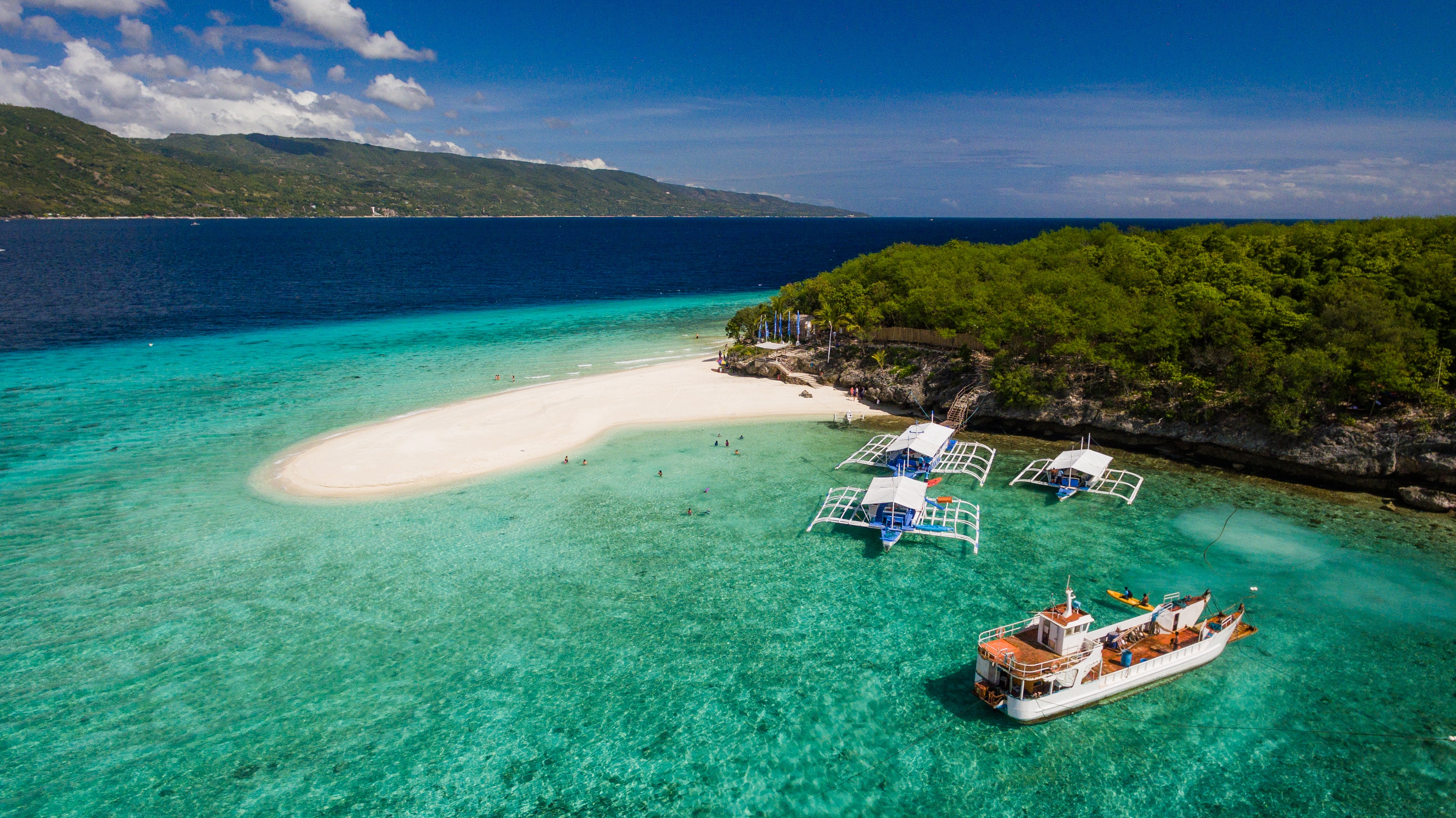
According to the U.S. Embassy in Manila , the Philippines is now granting entry to both fully vaccinated and unvaccinated visitors from countries that are permitted visa-free travel for up to 30 days, including the U.S., but when entering they must have a valid departure ticket within that time frame.
All travelers must complete a Bureau of Quarantine e-Health Declaration Card within 72 hours of travel to the Philippines to receive a QR code. Unvaccinated or partially vaccinated travelers must present proof of a negative laboratory-based rapid antigen test taken within 24 hours of departure. Travelers should also expect health screenings at ports of entry in the Philippines.
Children under the age of 15 are exempt from the vaccination or testing requirements. Details can be found here .
The U.S. State Department's advisory for the Philippines is Level 2: Exercise Increased Caution .

As of April 1, all fully vaccinated travelers (and children under 12 regardless of vaccination status) are able to enter Singapore quarantine-free via any flight. Details can be found here .
With the April 1 changes, travelers must complete an electronic SG Arrival Card and upload a digitally verifiable vaccination certificate within 72 hours of travel. Fully vaccinated adults and their accompanying children age 12 and below no longer need to provide proof of a negative predeparture COVID-19 test, but anyone age 13 and above who is unvaccinated or partially vaccinated must show proof of a negative COVID-19 PCR or antigen test taken within two days of departure for Singapore.
Travel insurance covering at least $30,000 in COVID medical and quarantine costs is required. Installing and activating Singapore's TraceTogether app is also suggested.
See the Singapore Airlines website and U.S. Embassy in Singapore website for additional information.
The U.S. State Department's advisory for Singapore is Level 1: Exercise Normal Precautions .
South Korea
As of Oct. 1, South Korea has eliminated pre-travel and post-arrival testing for all travelers, regardless of vaccination status.
However, visitors are encouraged to register their travel and health information in the Q-code system before departing for South Korea to speed the airport arrival process.
For Information on arrival protocols, check the Incheon Airport website . Additional details are available on the U.S. Embassy in the Republic of Korea website and on the Embassy of the Republic of Korea in the USA website.
The U.S. State Department's advisory is Level 1: Exercise Normal Precautions .
All travelers to Sri Lanka can visit without quarantine as of April 20, although they need to have a valid tourist visa and mandatory local health insurance ($12 for coverage for one month).
Those who are fully vaccinated no longer need to present proof of a pre-travel negative test while unvaccinated travelers must be tested in their own country and provide proof of a negative COVID-19 PCR test taken within 72 hours of their flight or a negative antigen test taken within 48 hours.
Visit the U.S. Embassy in Sri Lanka website for additional updates.
The U.S. State Department's advisory for Sri Lanka is Level 2: Exercise Increased Caution

Taiwan on Sept.12 restored visa exemption for U.S passport holders and entry for Americans is now permitted.
As of Aug. 15, Taiwan has dropped the pre-travel testing requirement for entering the country. As of Oct. 13, quarantine requirements have ended but travelers must still undergo health screenings upon arrival and abide by seven days of self-initiated epidemic prevention (including staying one person per room) and use the rapid test kits given to them upon arrival as instructed.
Details can be found here . For additional information see the American Institute in Taiwan's website .
The U.S. State Department's advisory for Taiwan is Level 1: Exercise Normal Precautions .
Tajikistan never had a full lockdown, and most businesses, hotels and restaurants reopened on June 15, 2020.
According to the U.S. Embassy in Tajikistan , all Americans need a Tajik visa for entry (as well as government permission in advance if seeking to enter via a land border) and those age 3 and older must show a COVID-19 vaccination certificate or the results of a negative COVID-19 PCR test issued within 72 hours of arrival when boarding flights to Dushanbe International Airport (DYU). These test results must then be verified by Dushanbe authorities.
The U.S. Embassy also notes that access to medical care in the country may be limited and that "the Government of Tajikistan frequently adjusts its entry and exit requirements in response to the COVID-19 pandemic, and changes to the policy are not immediately made available to the public." An unexpired visa is also required to leave Tajikistan.
The U.S. State Department's travel advisory for Tajikistan is Level 2: Exercise Increased Caution .
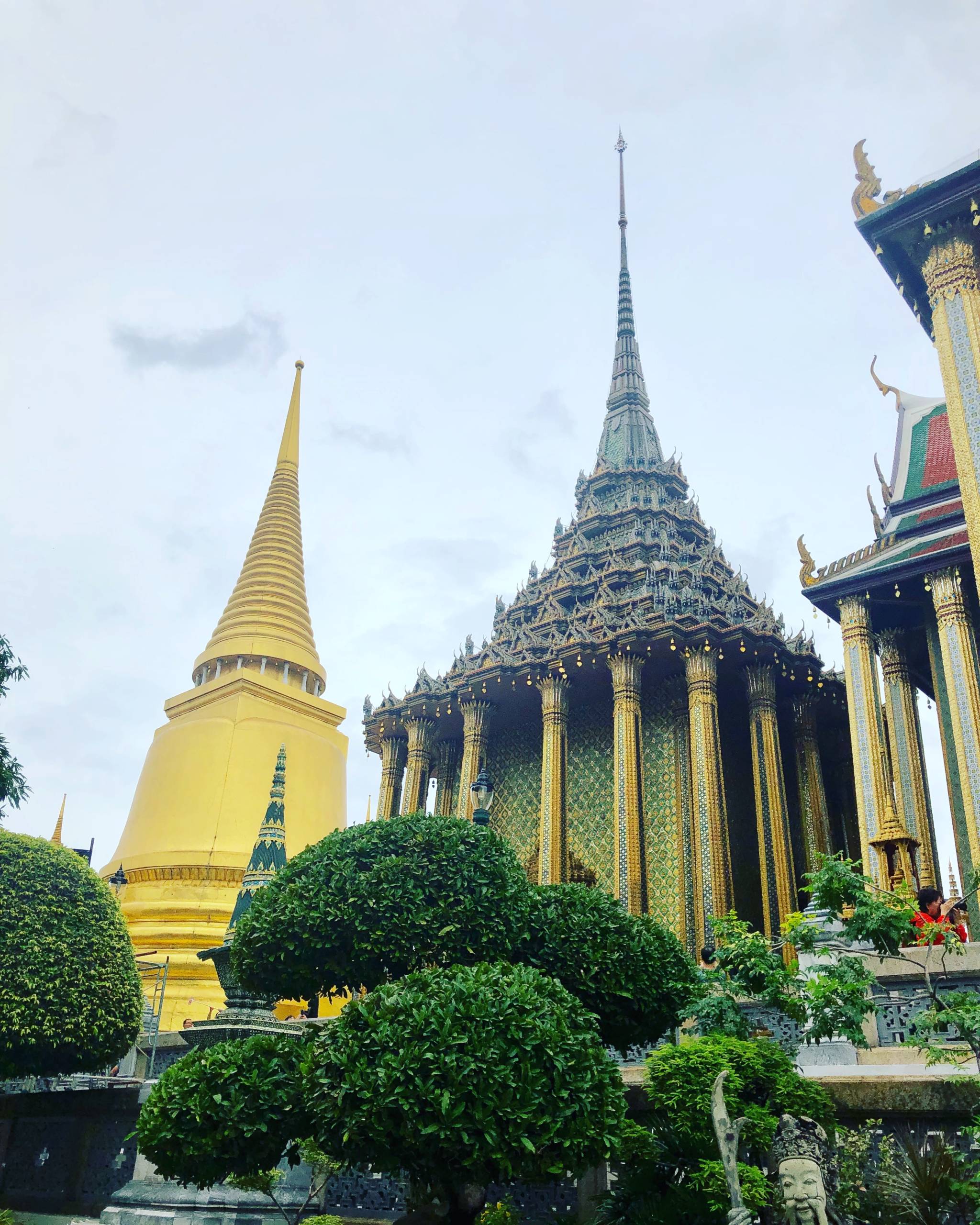
As of Oct. 1, travelers to Thailand no longer need to show proof of vaccination or a negative COVID-19 test to enter the country.
Since April 1, 2021, U.S. passport holders have also not been required to obtain a visa for a tourist visit of up to 45 days in Thailand.
For further information on visiting Thailand, check the U.S. Embassy in Thailand's website and the Royal Thai Embassy's website.
The U.S. State Department's travel advisory for Thailand is Level 1: Exercise Normal Precautions .
Turkmenistan
According to the U.S. Embassy in Turkmenistan, U.S. citizens are allowed to visit the country, but both the U.S. State Department and the CDC heavily discourage going there. Although Turkmenistan just lifted its suspension of all international flights , few commercial airlines offer flights into the country.
The government has not acknowledged any cases of COVID-19 within the borders of Turkmenistan , and the U.S. Embassy in Turkmenistan suggests that the government in Turkmenistan "may be disinclined to do so if cases were confirmed."
Any private U.S. citizen seeking to enter Turkmenistan will be required to present proof of a negative COVID-19 PCR test and a serology certificate confirming the presence of antibodies, both taken within 48 hours of departure from the U.S. or other point of origin. All travelers will also undergo a PCR test upon arrival ($44), followed by an at-home quarantine of three days. Another PCR test ($44) is required to exit quarantine.
The U.S. Embassy notes, "The government of Turkmenistan can and does change quarantine requirements and arrival procedures for private citizens with little advance notice."
U.S. State Department has issued a Level 3: Reconsider Travel advisory.
Uzbekistan is open to Americans. U.S. citizens need a visa for entry, but as of June 10, proof of vaccination or a negative COVID-19 test is no longer required for entry, according to the U.S. Embassy in Uzbekistan .
The U.S. State Department's advisory for Uzbekistan is Level 1: Exercise Normal Precautions .
On March 15, Vietnam reopened to foreign tourists after two years of widespread travel restrictions. Pre-pandemic visa-issuing policies have now resumed and all COVID-19-related mandatory quarantine requirements for new arrivals have been lifted.
As of May 15, travelers no longer have to show proof of a negative COVID-19 test to be allowed into Vietnam. Still, the U.S. Embassy in Vietnam recommends that travelers check with their airline to confirm if tests are needed for the airline or for transit to other countries.
Check with the Vietnam Embassy in the U.S. for additional information.
The U.S. State Department's advisory for Vietnam is Level 1: Exercise Normal Precautions .
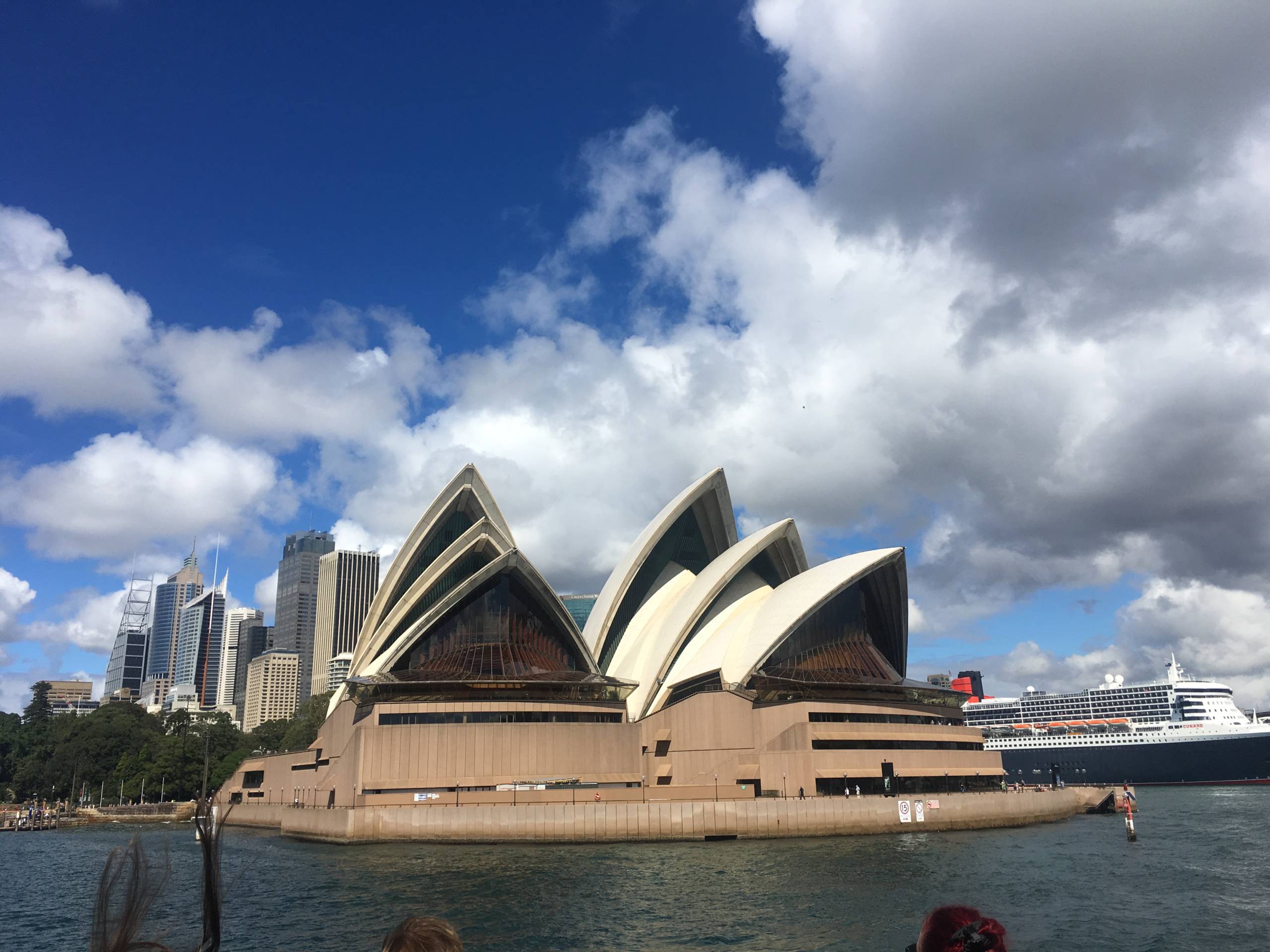
Australia had remained closed to most foreign visitors for two years, although that changed on Feb. 21, 2021, when the country finally reopened to fully vaccinated international visitors. And as of July 6, requirements for proof of vaccination or pre-travel testing have been lifted. Health screenings at ports of entry still stand. Details are here .
All international arrivals in Australia do still need to apply for an electronic visa .
Australia also reopened to cruise ships in February 2021.
Related: It's official: Australia is scrapping its pre-travel testing
Check the U.S. Embassy in Australia website for updates.
Qantas has resumed international flights between Sydney and Los Angeles, London and other cities. American, Delta and United are also offering flights from the U.S. to Australia.
The U.S. State Department's advisory for Australia is Level 1: Exercise Normal Precautions .
French Polynesia
The Islands of Tahiti are now open to all U.S. visitors, regardless of vaccination status. And since French Polynesia is an overseas territory of France, as of Aug. 1, travelers flying to Papeete from Los Angeles, San Francisco, Seattle, Noumea and Auckland no longer need to provide proof of vaccination or a negative test result or present a sworn statement.
Note: Any non-U.S. citizen flying through the U.S. to get to French Polynesia must be fully vaccinated to enter the U.S. by air.
Updates can be found here . Additional information is available on the Air Tahiti Nui website .
If you're itching to travel to French Polynesia, there are lots of options for getting there. Be sure to check out our guide on the best ways to get to Tahiti using points and miles . The destination is home to some famous hotels, such as the Conrad Bora Bora Nui and the Hilton Moorea Lagoon Resort & Spa .
The U.S. State Department's advisory for French Polynesia is Level 1: Exercise Normal Precautions.
Fiji began allowing fully vaccinated travelers from select countries, including the U.S., for tourism as of Dec. 1, 2021, after having been in strict lockdown since March 2020 with no tourism allowed for more than 18 months. Fiji reopened to fully vaccinated travelers from all countries on April 7, 2022.
To enter Fiji, fully vaccinated travelers age 16 and older need to present proof of full vaccination, but predeparture COVID-19 test requirements have been lifted. Children under age 16, when accompanied by a vaccinated adult, do not need to be vaccinated.
As of April 7, travelers do need to have travel health insurance valid for COVID-19 in Fiji.
Check for updates here and visit the U.S. Embassy in Fiji website for additional information. The U.S. State Department's advisory for Fiji is Level 1: Exercise Normal Precautions .

New Zealand
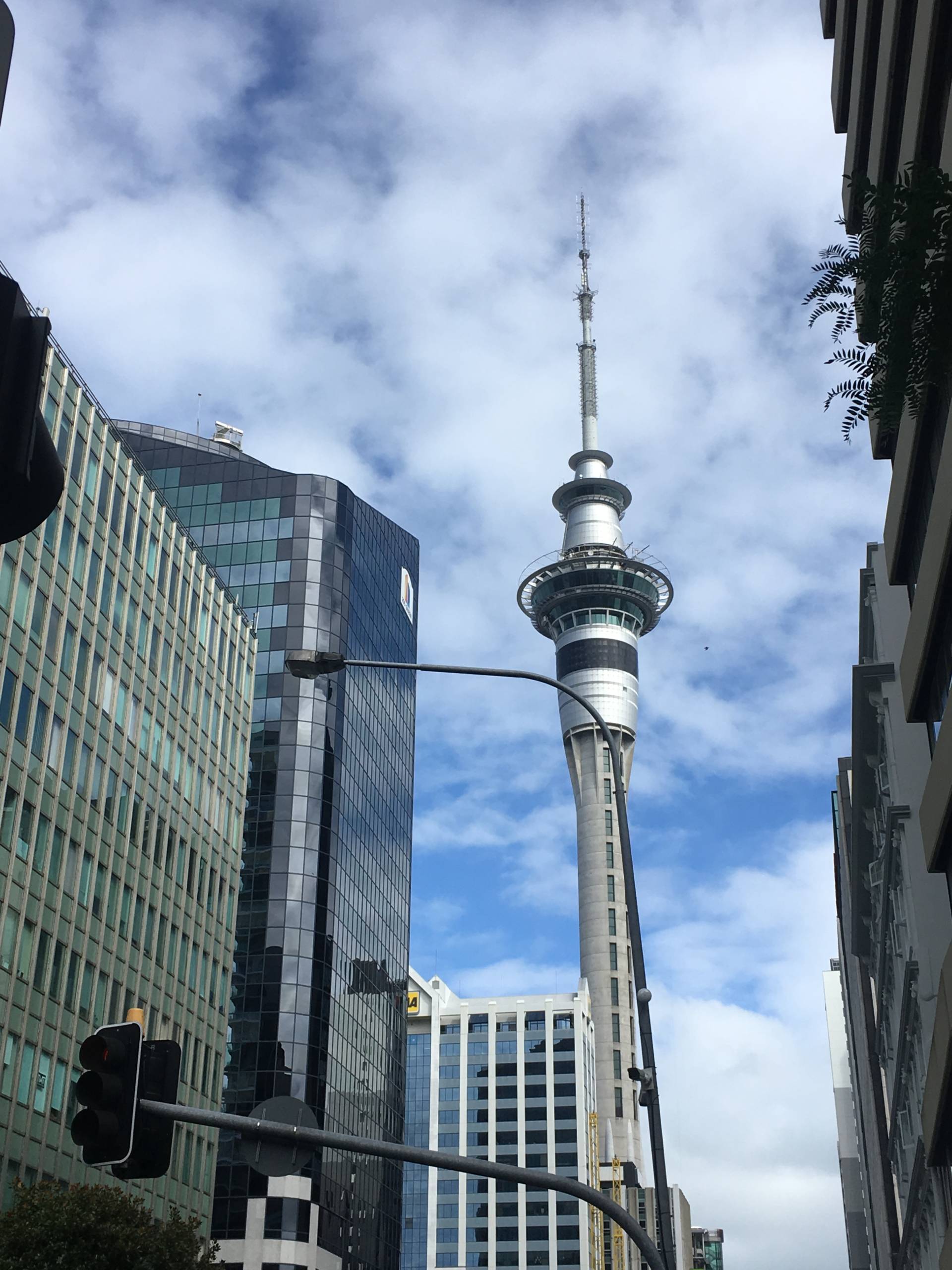
Americans who are fully vaccinated have been allowed to visit New Zealand since May 2, but as of Sept. 13 and Oct. 20, all COVID-related entry requirements, including being vaccinated, have been lifted.
However, any traveler from a visa-waiver country (including the U.S.) must obtain a New Zealand Electronic Travel Authority . Details can be found here .
The U.S. State Department's advisory for New Zealand is Level 1: Exercise Normal Precautions.
As of Aug. 1, foreign nationals are able to enter Samoa, according to the U.S. Embassy in Samoa. And since late September, there are no longer any vaccination or pre-travel testing requirements for Americans seeking to enter Samoa.
The U.S. State Department's advisory for Samoa is Level 1: Exercise Normal Precautions .
U.S. citizens can enter Tonga for tourism purposes, as of Aug. 1, according to the U.S. Embassy in Fiji, Kiribati, Nauru, Tonga, and Tuvalu .
Those who do travel to Tonga need to be fully vaccinated and present a negative rapid antigen test taken within 24 hours of arrival. Check with your airline for the most up-to-date testing requirements.
The U.S. State Department's advisory for Tonga is Level 1: Exercise Normal Precautions .
Middle East
According to the U.S. Embassy in Bahrain , U.S. travelers have been permitted to receive a visa upon arrival and enter Bahrain since Sept. 4, 2020.
As of Feb. 20, 2022, Bahrain no longer requires pre-travel testing or testing upon arrival, no matter a traveler's vaccination status. If travelers plan to go to Saudi Arabia (one Bahrain's neighboring countries) from Bahrain, however, the U.S. Embassy notes that COVID-19-related restrictions might be enforced or changed with little to no notice. The embassy discourages travelers from flying into Bahrain solely to go to Saudi Arabia.
Face masks are now optional in all indoor public spaces and indoor dining has returned to full capacity.
The U.S. State Department's travel advisory for Bahrain is Level 2: Exercise Increased Caution .
Americans had been able to visit Israel if fully vaccinated, and as of March 1, even unvaccinated travelers can enter the country .
According to the U.S. Embassy in Israel , there are no longer any COVID-19 entry requirements or restrictions for travelers. Additional information is available here .
The U.S. State Department's advisory for Israel is now indicated with individual summaries for the country's regions, with a Do Not Travel warning for Gaza.
Jordan is open to Americans, according to the U.S. Embassy in Jordan. All arriving passengers must register online before the flight, but pre-travel and arrival COVID-19 test requirements were dropped as of March 1, 2022. Passengers are encouraged to check with their airlines for specific requirements, though.
All travelers must have travel health insurance valid in Jordan and must complete their online Gateway2Jordan registration to receive a QR code to be presented upon boarding their flight.
The U.S. State Department's advisory for Jordan is Level 2: Exercise Increased Caution .
Americans can once again travel to Kuwait without the need to test or quarantine, according to the U.S. Embassy in Kuwait . Travelers seeking to enter will only be permitted in with either a valid visa or a residency permit. Electronic visas (eVisas) are available for U.S. citizens on the Ministry of Interior website.
According to the U.S. Embassy, as of May 1, proof of vaccination is no longer required to enter.
The U.S. State Department's advisory for Kuwait is Level 1: Exercise Normal Precautions .
As of March 28, registration on the Ministry of Public Health Pass platform has been canceled and travelers no longer need to show their enrollment before being permitted to board a flight bound for Lebanon.
As of March 1, fully vaccinated passengers who received their last dose of a COVID-19 vaccine (or a booster shot) within the past six months are exempt from performing a PCR test or rapid antigen test in their country of departure and from being tested upon arrival at Beirut's airport.
All unvaccinated travelers to Lebanon over the age of 12 must present a negative PCR or rapid antigen test taken within 48 hours of boarding their flight to enter the country, per the U.S. Embassy in Lebanon . All unvaccinated passengers, except those under the age of 12, are also now required to take a PCR test upon arrival at Beirut Airport and refrain from going out in public for 24 hours until receiving a negative result.
The U.S. State Department's advisory for Lebanon is Level 3: Reconsider Travel .
International flights to Oman have resumed and as of May 23, all COVID-19-related entry restrictions have been lifted, according to the U.S. Embassy in Oman . However, the embassy notes that travelers to Oman "may be requested to present a vaccination certificate indicating they have received at least 2 doses of a Sultanate-approved COVID-19 vaccine. The last dose is required to be taken at least fourteen (14) days ahead of the estimated arrival time."
The Sultanate is currently accepting the following approved vaccines: AstraZeneca, Pfizer, Moderna, Johnson & Johnson, Sinovac, Sinopharm, Sputnik V, Novavax, CanSino, Covaxin and Sputnik Lite.
The Royal Oman Police resumed all visa operations and services on Sept. 1, 2021. All travelers are also required to have travel health insurance that is valid in Oman and covers the cost of COVID-19 treatment for at least a month.
The U.S. State Department's advisory for Oman is Level 2: Exercise Increased Caution .
Qatar , which is hosting the 2022 World Cup from late November to mid-December, welcomes foreign tourists and as of Nov. 1, COVID-19-related entry measures have been dropped . Details can be found here .
U.S. citizens do not need a visa to enter Qatar for visits of up to 30 days. Check here and see the website of the U.S. Embassy in Qatar for more information.
Full details on entry requirements are available on Qatar's Ministry of Public Health website .
The U.S. State Department's advisory for Qatar is Level 1: Exercise Normal Precautions .
Saudi Arabia
Fully vaccinated and boosted Americans can travel to Saudi Arabia, and as of March 5, 2022, the country has removed all COVID-19-related testing and quarantine restrictions. According to the U.S. Embassy in Saudi Arabia , fully vaccinated travelers to the kingdom are:
- No longer required to provide proof of a negative PCR or rapid antigen test upon arrival.
- No longer required to undergo any mandatory COVID-19 quarantine upon arrival.
According to the U.S. Embassy, all persons in Saudi Arabia still need to register to show proof of vaccination via the Tawakkalna app by a Ministry of Health-approved vaccine (Pfizer, Moderna, AstraZeneca, Johnson & Johnson, Sinopharm, Sinovac, Covaxin, Sputnik and Covovax). It is used to enter all government and private establishments, as well as for public transportation and domestic air travel. All travelers must also obtain a visa and have health insurance valid in Saudi Arabia.
The U.S. State Department's advisory for the country is Level 3: Reconsider Travel.
U.S. travelers are not able to enter Syria at this time. The U.S. State Department's advisory for Syria is Level 4: Do Not Travel .
United Arab Emirates

The United Arab Emirates is open to tourism and Americans are welcome — without the need to provide proof of vaccination or a negative PCR test as of Nov. 7 .
For complete information on traveling to Dubai, check the Emirates website . Details for Abu Dhabi are available here .
The U.S. State Department's advisory for the UAE is Level 3: Reconsider Travel .
The U.S. State Department has maintained a Level 4: Do Not Travel advisory for Yemen due to issues with terrorism, civil unrest, health risks, kidnapping, armed conflict and landmines. The embassy in Sanaa suspended operations in early 2015, and U.S. citizens in Yemen will not be able to rely on emergency services from the U.S. government.
All travelers entering on U.S. documents are required to have a visa from the Yemeni government before entering the country, and passports must have an additional six months of validity from the date of departure.
According to the U.S. Embassy in Botswana , as of Aug. 28, all Americans are permitted to enter Botswana without proof of COVID-19 vaccination or pre-travel testing.
The U.S. State Department's advisory for Botswana is Level 1: Exercise Normal Precautions .
Democratic Republic of Congo
The Democratic Republic of Congo reopened its borders in August 2020. It is perhaps best known for Virunga National Park, which reopened on April 1, 2021 .
According to the U.S. Embassy , as of Oct. 1, fully vaccinated travelers no longer need to present proof of a negative pre-travel COVID-19 PCR test taken within three days of travel to enter or depart the DRC.
However, all unvaccinated international travelers age 11 and older must arrive with proof of a negative COVID-19 test taken within three days of their departure to the DRC. Upon arrival, unvaccinated travelers age 11 and older must also take a second COVID-19 test at the airport. Travelers should register their information and pay for the test ($45) at inrbcovid.com before they begin their travels and must self-quarantine until they receive a negative test result, usually within 24 hours.
Americans need a visa to visit as well as a WHO card with proof of yellow fever vaccination and proof of health and medical evacuation insurance valid in the DRC.
To exit the DRC, all unvaccinated travelers age 11 and older must pay for and present proof of a negative COVID-19 test from an approved lab taken within three days of travel ($30).
The U.S. State Department's advisory for the Democratic Republic of Congo is Level 3: Reconsider Travel .

International tourism resumed in Egypt in July 2020 and the country is now open to Americans — with no restrictions to entry as of June 2022.
Americans do still need a tourist visa , available on arrival or before arrival via online enrollment . But there are no quarantine requirements and the need to present proof of a negative COVID-19 PCR or antigen test with a QR code was lifted June 17, according to the U.S. Embassy in Egypt . The latest travel advisories are also available here .
The U.S. State Department's warning is Level 3: Reconsider Travel .
Related: Dreaming of visiting Egypt
Ghana's Kotoka International Airport (ACC) reopened for regular international service on Sept. 1, 2020, and the country's land and sea borders reopened on March 28, 2022. According to the U.S. Embassy in Ghana , Americans are allowed to enter the country and all passengers arriving by air must be fully vaccinated (if age 18 or older) and fully vaccinated travelers no longer need to present proof of a negative pre-travel COVID-19 test.
The embassy notes: "All persons 18 years old and above arriving in Ghana will be required to provide evidence of full vaccination for a COVID-19 vaccine. Citizens of Ghana and foreign residents who are not fully vaccinated, will, however, need to provide a negative PCR test result no more than 48-hours old, will undergo an antigen test upon arrival in Ghana, and will be offered vaccination upon arrival. Ghana's Foreign Missions have been instructed to make vaccination a requirement for visa acquisition."
Ghana's Ministry of Public Health has ended its mandate for the use of face masks in public, but social distancing and good hand hygiene are still recommended.
The U.S. State Department's advisory for Ghana is Level 2: Exercise Increased Caution.
Kenya reopened to tourism on Aug. 1, 2020, and Americans are currently welcome to visit. According to the U.S. Embassy in Kenya, all visitors must fill out a mandatory online health form (to obtain a QR code for scanning upon arrival) and have a valid vaccination certificate. If unvaccinated and eligible to visit (and over age 5), travelers must have proof of a negative COVID-19 PCR test taken within 72 hours of departure for Kenya and then take a rapid antigen test (at a cost of $30) upon arrival.
Before travel, both vaccination and test results documents (for eligible unvaccinated visitors) must be uploaded prior to travel into the Panabios system.
All visitors also need to obtain an e-visa.
Face masks are no longer mandatory in public but are recommended in some indoor situations.
The U.S. State Department's travel advisory is now Level 2: Exercise Increased Caution .
According to the U.S. Embassy in Malawi , Americans are allowed to enter Malawi. As of June 1, travelers who can show a digital COVID-19 vaccination certificate no longer need a pre-travel PCR test to enter. With the white CDC card, however, electronic proof of a negative COVID-19 PCR test taken within 72 hours of arrival is required.
Travelers who are unvaccinated need to show a negative COVID-19 PCR test taken with 72 hours of arrival in Malawi.
All travelers must use the Trusted Traveler framework for online authentication of their vaccination or PCR test documents. Details are available here .
More information is available on the Malawi Tourism website .
The U.S. State Department's advisory for Malawi is Level 2: Exercise Increased Caution.
According to the U.S. Embassy in Mauritius , the island nation dropped its pre-travel testing requirement as of March 12 — and as of July 1, there are no longer different rules for vaccinated and unvaccinated travelers. Both groups do need to fill in Mauritius' All in One Travel Form to generate an arrival QR code.
Details of travel requirements and travel alerts for Mauritius can be found here .
The U.S. State Department's advisory for Mauritius is Level 1: Exercise Normal Precautions .
Related: Why Mauritius should be at the top of your travel to-do list
Morocco reopened to foreign visitors on Feb. 7, 2022 , reversing a ban on air travel that was instated in November of 2021.
All COVID-19-related entry requirements were lifted on Sept. 30, with the exception of the completion of a health form .
The U.S. State Department's advisory for Morocco is Level 2: Exercise Increased Caution .
According to the U.S. Embassy in Mozambique , U.S. citizens can enter Mozambique and a visa is required. Visas should be obtained in the U.S. (in New York City or Washington, D.C.) before travel to Mozambique, the embassy says, because visas upon arrival, while available for tourists, are not guaranteed.
Travelers must provide proof of full vaccination or a negative COVID-19 PCR test administered in their country of origin within 72 hours of departure. Children up to age 11 are exempt from this requirement. Travelers should expect health screenings upon arrival and there are many regulations and restrictions in effect for commercial businesses and gatherings. Masks are required in all closed spaces.
Although the government of Mozambique does not require exiting travelers to take COVID-19 tests, individual airport agents might. Travelers should check their airline's requirements ahead of time.
Currently, the U.S. State Department's advisory for Mozambique is Level 2: Exercise Increased Caution .
Namibia has been open for tourism since Sept. 1, 2020, and all COVID-19-related entry requirements have now been lifted. For further information, check the health section of the Visit Namibia website and the U.S. Embassy in Namibia .
The U.S. State Department's advisory for Namibia is Level 1: Exercise Normal Precautions .
Nigeria reopened its airports for domestic travel on July 8, 2020, and international flights resumed in August 2020. All tourists are again welcome, including Americans.
According to the U.S. Embassy in Nigeria , arriving international passengers age 18 and older must have verifiable proof of being fully vaccinated or, if unvaccinated or partially vaccinated, present proof of a negative COVID-19 PCR test taken within 48 hours of departure on the first leg of their journey. A protocol issued in September 2021 requires all international visitors to register via the Nigeria International Travel Portal and upload test results or vaccine certificates prior to travel.
In addition, all travelers who are unvaccinated or partially vaccinated are required to take additional COVID-19 PCR tests on day two and day seven after arrival (and they must register and pay for them beforehand to obtain a QR code). The U.S. Embassy in Nigeria says that travelers might face penalties if they do not comply with COVID-19 regulations while in Nigeria.
Arrival testing details can be found here .
The U.S. State Department has issued a Level 3: Reconsider Travel advisory for Nigeria.
Republic of the Congo
The Republic of the Congo, located in Central Africa between Gabon and the Democratic Republic of the Congo, is allowing U.S. travelers to visit. According to the U.S. Embassy in the Republic of the Congo , there are no longer any COVID-19-related entry restrictions for the country.
The U.S. State Department's advisory for the Republic of the Congo is Level 2: Exercise Increased Caution .
Rwanda is open to American tourists. According to the U.S. Embassy in Rwanda , COVID-19 testing is not required for entry.
Rwanda offers visas on arrival for people of all nationalities.
Visitors to Rwanda's national parks are no longer required to provide negative COVID-19 test results to enter, but must fill out a guest registration and indemnity form and submit it electronically. Details are available here .
Face masks are no longer required nationwide in public spaces, but are recommended.
The U.S. State Department's advisory for Rwanda is now Level 1: Exercise Normal Precautions.
U.S. citizens can visit Senegal. While international flights to Senegal have resumed, most land borders, with the exception of The Gambia, remain closed to tourist traffic, according to the U.S. Embassy .
The embassy also reports that proof of COVID-19 vaccination or a negative pre-travel test are no longer required for entry to Senegal.
The U.S. State Department's advisory for Senegal is Level 1: Exercise Normal Precautions .
The Seychelles began welcoming vaccinated Americans in February 2021. As of March 25, 2021, unvaccinated U.S. travelers can visit. Details can be found here .
All visitors require travel authorization via the online portal and must present valid travel and health insurance that covers, at a minimum, COVID-19-related isolation, quarantine and clinical care.
Fully vaccinated travelers (a booster dose is required for those age 18 and older if the second dose was more than six months prior) and those who have proof of having tested positive in the past two to 12 weeks no longer need to present proof of a negative pre-travel test to enter. Those who are unvaccinated must present proof of a negative COVID-19 PCR test taken within 72 hours or a rapid antigen test taken within 24 hours of their flight and upload the test results to the online portal.
Visitors may only stay at licensed establishments or liveaboards that have been certified by the Public Health Authority. They must also have travel health insurance valid for treatment in the Seychelles.
The U.S. State Department's advisory for Seychelles is Level 1: Exercise Normal Precautions . Check the U.S. Embassy website for updates.
Sierra Leone
All travelers to Sierra Leone are required to register online to receive a Sierra Leone Incoming number, according to the U.S. Embassy in Sierra Leone .
As of April 13, a pre-travel COVID-19 test or a test upon arrival is no longer required for travelers who are fully vaccinated.
Partially vaccinated or unvaccinated travelers no longer have to present proof of a negative pretest, but will be tested upon arrival and must pay the fee online when registering for their Sierra Leone Incoming number.
Proof of yellow fever vaccination is also required.
When departing Sierra Leone, an Outbound number is required for all travelers and those who are unvaccinated or partially vaccinated must present proof of a negative test taken within 48-72 hours of departure.
The U.S. State Department's travel advisory for Sierra Leone is Level 2: Exercise Increased Caution .
South Africa
South Africa reopened to tourism on Oct. 1, 2020, and as of Nov. 11, 2020, U.S. citizens can enter for tourism purposes, according to the U.S. Embassy in South Africa . As of June 22, 2022, all COVID-19-related entry requirements have been dropped; proof of vaccination or a negative test is no longer required to enter South Africa. However, all arriving travelers must fill out a health questionnaire .
Related: The 6 best ways to get to South Africa on points and miles
Details can be found here and on South African Airways' website .
The U.S. State Department's advisory for South Africa is Level 2: Exercise Increased Caution .
U.S. citizens can enter Tanzania with a vaccination certificate containing a QR code (the CDC card does not have one, but one can be accessed via the VAMS system or via Global Haven ). Vaccinated travelers do not need to take a COVID-19 test upon entry.
Tanzania currently requires all unvaccinated or partially vaccinated travelers to present a negative COVID-19 PCR test result containing a QR code and taken within 72 hours of their flight to Tanzania or Zanzibar. They may also be tested upon arrival at their own cost. ($10 in Tanzania and $25 in Zanzibar).
Related: Dreaming of Tanzania
All travelers must complete an online Health Surveillance Form within 24 hours prior to arrival to receive a unique health code. U.S. tourists need a visa to visit Tanzania. All travelers will undergo screening upon arrival.
For more information, see the U.S. Embassy in Tanzania's website .
The U.S. State Department's advisory for Tanzania is Level 2: Exercise Increased Caution .
Americans can currently travel to Uganda.
According to the U.S. Embassy , all arriving passengers must have a visa applied for online and approved by the Ugandan government and those age 6 and older must present proof of full vaccination or a negative COVID-19 PCR test from an accredited laboratory in the country of origin taken no more than 72 hours before boarding their flight for Uganda. Carrying paper copies of both vaccine certificates and test results are required.
The U.S. Embassy also notes that the government of Uganda requires that all departing passengers age 6 and older present proof of full vaccination or a negative PCR COVID-19 test taken within 72 hours of departure. This requirement is mandatory for all departing passengers out of Uganda even if the destination country does not require it.
The U.S. State Department's advisory for Uganda is Level 3: Reconsider Travel .
Zambia , home to Victoria Falls and known as a top safari destination, is open to international travelers, including Americans.
According to the U.S. Embassy in Zambia , the country requires proof of full vaccination or a negative COVID-19 PCR test taken within 72 hours of travel (travelers below age 12 are exempt). Tourists from the U.S. and certain other countries no longer need a visa, but they will be subject to health screenings (all travelers must submit a health declaration form) upon arrival and symptomatic individuals may be required to submit to testing and/or self-isolation.
The U.S. State Department's advisory for Zambia is Level 1: Exercise Normal Precautions .
Zimbabwe reopened its borders to international flights on Oct. 1, 2020, and Americans can visit for tourism. All travelers arriving and departing are required to have proof of full vaccination or a negative COVID-19 PCR test issued by a recognized facility and taken within 48 hours of their time of departure for Zimbabwe. Details are here .
A yellow fever vaccination is also required, according to the U.S. Embassy in Zimbabwe .
Travelers who have received at least three doses of a WHO-approved vaccine are exempt from mandatory wearing of face masks in public, with the exception of public transport and certain indoor spaces.
The U.S. State Department's advisory for the country is now Level 2: Exercise Increased Caution .
Additional reporting by Katherine Fan, Jordyn Fields, Jane Frye, Jacob Harrison, Donna Heiderstadt, Liz Hund, Brian Kim, Stella Shon, Caroline Tanner and Mimi Wright.
UN Tourism | Bringing the world closer
Covid-19 related travel restrictions, share this content.
- Share this article on facebook
- Share this article on twitter
- Share this article on linkedin
Travel Restrictions

The end of COVID-19 travel restrictions: Summary of findings from the COVID-19 related travel restrictions reports
Following the decision of WHO to determine the end of the public health emergency phase for COVID-19, UNWTO has released an in-depth analysis of the travel restrictions introduced in response to the COVID-19 pandemic.

Report: Travel Restrictions 11 th
One out of five destinations continue to have their borders completely closed as new surges of COVID-19 impact the restart of international tourism. The latest research shows that still 98% of all destinations have some kind of travel restrictions in place.

Report: Travel Restrictions 10 th
The global vaccination rollout and increased adoption of digital solutions for safe travel should lead to a rise in international mobility over the weeks and months ahead,the latest data from the UNWTO indicates.

Report: Travel Restrictions 9 th
The emergence of new variants of the COVID-19 virus has prompted many governments to reverse efforts to ease restrictions on travel, with total closures to tourists most prevalent in Asia and the Pacific and Europe.

Report: Travel Restrictions 8 th
According to the eighth edition of the UNWTO Travel Restrictions Report, 70% of all global destinations have eased restrictions on travel introduced in response to the COVID-19 pandemic.

Report: Travel Restrictions 7 th
Though many remain cautious in view of the development of the pandemic, the seventh edition of the UNWTO “COVID-19 Related Travel Restrictions: A Global Review for Tourism” confirms the ongoing trend towards the gradual restart of tourism.

Report: Travel Restrictions 6 th
87 destinations that have now eased travel restrictions, just four have completely lifted all restrictions, while 83 have eased them while keeping some measures such as the partial closure of borders in place.

Report: Travel Restrictions 5 th
According to UNWTO, as of 15 June, 22% of all destinations (48 destinations) have now eased restrictions on travel, up from just 3% (7 destinations) on 18 May.

Report: Travel Restrictions 4 th
The report notes that 100% of all destinations worldwide continue to have some form of COVID-19-related travel restrictions in place. Furthermore, as of 18 May 75% continued to have their borders completely closed for international tourism.

Report: Travel Restrictions 3 rd
UNWTO has found that 83% of destinations in Europe have introduced complete closure of borders for international tourism. In the Americas, this proportion stands at 80%, in Asia and the Pacific it is 70%, in the Middle East it is 62% and in Africa it is 57%.

Report: Travel Restrictions 2 nd
The COVID-19 pandemic has prompted all destinations worldwide to introduce restrictions on travel, research by the World Tourism Organization (UNWTO) has found.

Report: Travel Restrictions 1 st
Almost all global destinations have imposed restrictions on travel since January 2020, including complete bans on all travel as they work to contain the pandemic.
Update April 12, 2024
Information for u.s. citizens in the middle east.
- Travel Advisories |
- Contact Us |
- MyTravelGov |
Find U.S. Embassies & Consulates
Travel.state.gov, congressional liaison, special issuance agency, u.s. passports, international travel, intercountry adoption, international parental child abduction, records and authentications, popular links, travel advisories, mytravelgov, stay connected, legal resources, legal information, info for u.s. law enforcement, replace or certify documents.
Share this page:
Learn about your destination
Take 90 seconds for safer travel.
Travel Advisory Levels
Enroll in step.

Subscribe to get up-to-date safety and security information and help us reach you in an emergency abroad.
Recommended Web Browsers: Microsoft Edge or Google Chrome.
External Link
You are about to leave travel.state.gov for an external website that is not maintained by the U.S. Department of State.
Links to external websites are provided as a convenience and should not be construed as an endorsement by the U.S. Department of State of the views or products contained therein. If you wish to remain on travel.state.gov, click the "cancel" message.
You are about to visit:
Proposed bill would ban Clear users from skipping security lines at California airports
California lawmakers are looking to crack down on airport line-jumpers with a proposed bill that would ban security screening company Clear from general security lines across the state.
The bill is sponsored by state Sen. Josh Newman, a Democrat who represents the 29th Senate District.
Newman told CBS MoneyWatch the bill, which is set to come before the California State Senate's transportation committee on Tuesday, lets wealthier people skip in front of passengers who have been waiting to be screened by Transportation Security Administration agents, and that the bill aims to resolve a "basic equity issue."
Republican state Sen. Janet Nguyen told Politico she understands the frustration stated in Newman's bill and that "it becomes a haves vs. have nots" where people who can afford Clear jump in front of everyone else. However, a spokesperson for Nguyen sought to clarify to USA TODAY on Tuesday that Nguyen had not reviewed the bill in its entirety when she spoke to Politico last week.
"When it comes to making one’s way through airport security, the quality of that experience shouldn’t be contingent on a traveler’s income or willingness to pay," Sen. Newman said in an emailed statement to USA TODAY. "And yet, in many of California's airports, travelers who choose not to participate in the Clear concierge screening service are subject to the indignity of being shunted aside to make way for those who do," the statement continues.
"This is inequitable, especially in light of the fact that it's their tax dollars which fund airport security services in the first place," Newman's statement reads.
What is Clear?
According to its website, Clear charges members $189 a year and allows customers to verify their identities at kiosks upon arriving at airports, where customers can their boarding pass and eyes or fingerprints. After identity verification, a Clear ambassador will then escort customers to the front of the security line.
The service is currently being used in dozens of airports across the country and in major California airports in Los Angeles, San Diego and San Francisco, as well as in many sports stadiums and other venues.
"We are proud to partner with nine airports across California − creating hundreds of jobs, sharing more than $13 million in annual revenue with our California airport partners, and serving nearly 1 million Californians," a Clear spokesperson said in an emailed statement to USA TODAY.
"We are always working with our airline and airport partners as well as local, state, and federal governments to ensure all travelers have a safer, easier checkpoint experience,” the statement reads.
What does SB-1372 propose?
Newman's bill, SB-1372, would require third-party vendors like Clear to get their own dedicated security lane, separate from the one used by general travelers. The bill would apply to new agreements between public airports and third-party security services after Jan. 1, 2025.
He told Politico he is not trying to ban Clear but believes its system is neither efficient nor secure.
"SB-1372 doesn't seem to terminate the Clear concierge service at airports; instead, it seeks to have Clear and other third-party screening services operate separate lines for subscribers, thereby eliminating the friction and frustration caused by the current system," Newman said in a statement.
While the bill faces support from union groups representing flight attendants and TSA employees, it faces strong pushback from six major airline companies: Delta, Hawaiian Airlines, JetBlue, Alaska Airlines, Southwest and United.
The airlines, in a letter to Senate Transportation Committee chair Dave Cortese and published by Politico, said the bill "not only threatens to increase fees on air carriers but also severely restricts airports' ability to manage lines at the security checkpoint, resulting in a negative travel experience for our California customers."
The airlines argue that SB-1372 could eliminate millions in revenue dollars currently paid by Clear, which could further increase air carrier operating costs in the state and leading to increased fares.
The Northern California branch of the American Federation of Government Employees, a federal employee union group, argued in a letter to Cortese that "expedited screening service providers no longer make meaningful contributions to aviation security, and their continued presence at California's airports instead degrade the public's traveling experience."
Sarah Nelson of the Association of Flight Attendants, a union group representing flight attendants in the U.S., said it is concerned by "continuing reports about irregularities in Clear's verification of passenger identification," raising concerns about the integrity of aviation security, according to a letter to Cortese also published by Politico.
Gabe Hauari is a national trending news reporter at USA TODAY. You can follow him on X @GabeHauari or email him at [email protected].
An official website of the United States government Here's how you know
Official websites use .gov A .gov website belongs to an official government organization in the United States.
Secure .gov websites use HTTPS A lock ( Lock A locked padlock ) or https:// means you’ve safely connected to the .gov website. Share sensitive information only on official, secure websites.
FACT SHEET: Biden-Harris Administration Announces Rules to Deliver Automatic Refunds and Protect Consumers from Surprise Junk Fees in Air Travel
Newly finalized rules will mandate automatic, cash refunds for cancelled or significantly delayed flights and save consumers over half a billion dollars every year in airline fees
WASHINGTON – Building on a historic record of expanding consumer protections and standing up for airline passengers, the Biden-Harris Administration announced final rules that require airlines to provide automatic cash refunds to passengers when owed and protect consumers from costly surprise airline fees. These rules will significantly expand consumer protections in air travel, provide passengers an easier pathway to refunds when owed, and save consumers over half a billion dollars every year in hidden and surprise junk fees.
“Passengers deserve to know upfront what costs they are facing and should get their money back when an airline owes them - without having to ask,” said U.S. Transportation Secretary Pete Buttigieg . “Today’s announcements will require airlines to both provide passengers better information about costs before ticket purchase, and promptly provide cash refunds to passengers when they are owed — not only saving passengers time and money, but also preventing headaches.”
The rules are part of the Biden-Harris Administration’s work to lower costs for consumers and take on corporate rip-offs. President Biden signed an Executive Order on Promoting Competition in 2021 that encouraged DOT to take steps to promote fairer, more transparent, and competitive markets.
Requiring Automatic Cash Airline Refunds The first rule requires airlines to promptly provide passengers with automatic cash refunds when owed because their flights are cancelled or significantly changed, their checked bags are significantly delayed, or the ancillary services, like Wi-Fi, they purchased are not provided.
Without this rule, consumers have to navigate a patchwork of cumbersome processes to request and receive a refund — searching through airline websites to figure out how to make the request, filling out extra “digital paperwork,” or at times waiting for hours on the phone. Passengers would also receive a travel credit or voucher by default from many airlines instead of getting their money back, so they could not use their refund to rebook on another airline when their flight was changed or cancelled without navigating a cumbersome request process.
DOT’s rule makes it simple and straightforward for passengers to receive the money they are owed. The final rule requires refunds to be:
- Automatic: Airlines must automatically issue refunds without passengers having to explicitly request them or jump through hoops.
- Prompt: Airlines and ticket agents must promptly issue refunds within seven business days of refunds becoming due for credit card purchases and 20 calendar days for other payment methods.
- Cash or original form of payment: Airlines and ticket agents must provide refunds in cash or whatever original payment method the individual used to make the purchase, such as credit card or airline miles. Airlines may not substitute vouchers, travel credits, or other forms of compensation unless the passenger affirmatively chooses to accept alternative compensation.
- Full amount: Airlines and ticket agents must provide full refunds of the ticket purchase price, minus the value of any portion of transportation already used. The refunds must include all government-imposed taxes and fees and airline-imposed fees.
Protecting Against Surprise Airline Junk Fees Secondly, DOT is requiring airlines and ticket agents to tell consumers upfront what fees they charge for checked bags, a carry-on bag, for changing a reservation, or cancelling a reservation. This ensures that consumers can avoid surprise fees when they purchase tickets from airlines or ticket agents, including both brick-and-mortar travel agencies or online travel agencies.
The rule will help consumers avoid unneeded or unexpected charges that can increase quickly and add significant cost to what may, at first, look like a cheap ticket. Extra fees, like checked baggage and change fees, have been a growing source of revenue for airlines, while also becoming more complex and confusing for passengers over time. In total, thanks to the final rule, consumers are expected to save over half a billion dollars every year that they are currently overpaying in airline fees.
DOT’s rule ensures that consumers have the information they need to better understand the true costs of air travel. Under the final rule, airlines are required to:
- Disclose baggage, change, and cancellation fees upfront: Each fee must be disclosed the first time that fare and schedule information is provided on the airline’s online platform -- and cannot be displayed through a hyperlink.
- Explain fee policies before ticket purchase: For each type of baggage, airlines and ticket agents must spell out the weight and dimension limitations that they impose. They must also describe any prohibitions or restrictions on changing or cancelling a flight, along with policies related to differences in fare when switching to a more or less expensive flight.
- Share fee information with third parties: An airline must provide useable, current, and accurate information regarding its baggage, change, and cancellation fees and policies to any company that is required to disclose them to consumers and receives fare, schedule, and availability information from that airline.
- Inform consumers that seats are guaranteed: When offering an advance seat assignment for a fee, airlines and ticket agents must let consumers know that purchasing a seat is not necessary to travel, so consumers can avoid paying unwanted seat selection fees.
- P rovide both standard and passenger-specific fee information: Consumers can choose to view passenger-specific fee information based on their participation in the airline’s rewards program, their military status, or the credit card that they use — or they can decide to stay anonymous and get the standard fee information.
- End discount bait-and-switch tactics: The final rule puts an end to the bait-and-switch tactics some airlines use to disguise the true cost of discounted flights. It prohibits airlines from advertising a promotional discount off a low base fare that does not include all mandatory carrier-imposed fees.
DOT’s Historic Record of Consumer Protection Under the Biden-Harris Administration Both of these actions were suggested for consideration by the DOT in the Executive Order on Promoting Competition and build on historic steps the Biden-Harris Administration has already taken to expand consumer protections, promote competition, and protect air travelers. Under the Biden-Harris Administration, DOT has advanced the largest expansion of airline passenger rights, issued the biggest fines against airlines for failing consumers, and returned more money to passengers in refunds and reimbursements than ever before in the Department’s history.
- DOT launched the flightrights.gov dashboard, and now all 10 major U.S. airlines guarantee free rebooking and meals, and nine guarantee hotel accommodations when an airline issue causes a significant delay or cancellation. These are new commitments the airlines added to their customer service plans that DOT can legally ensure they adhere to and are displayed on flightrights.gov .
- Since President Biden took office, DOT has helped return more than $3 billion in refunds and reimbursements owed to airline passengers – including over $600 million to passengers affected by the Southwest Airlines holiday meltdown in 2022.
- DOT has issued over $164 million in penalties against airlines for consumer protection violations. Between 1996 and 2020, DOT collectively issued less than $71 million in penalties against airlines for consumer protection violations.
- DOT recently launched a new partnership with a bipartisan group of state attorneys general to fast-track the review of consumer complaints, hold airlines accountable, and protect the rights of the traveling public.
- In 2023, the flight cancellation rate in the U.S. was a record low at under 1.2% — the lowest rate of flight cancellations in over 10 years despite a record amount of air travel.
- DOT is undertaking its first ever industry-wide review of airline privacy practices and its first review of airline loyalty programs
In addition to finalizing the rules to require automatic refunds and protect consumers from surprise fees, DOT is also pursuing rulemakings that would:
- Propose to ban family seating junk fees and guarantee that parents can sit with their children for no extra charge when they fly. Before President Biden and Secretary Buttigieg pressed airlines last year, no airline committed to guaranteeing fee-free family seating. Now, four airlines guarantee fee-free family seating, as the Department is working on its family seating junk fee ban proposal.
- Propose to make passenger compensation and amenities mandatory so that travelers are taken care of when airlines cause flight delays or cancellations.
- Expand the rights for passengers who use wheelchairs and ensure that they can travel safely and with dignity . The comment period on this proposed rule closes on May 13, 2024.
Travelers can learn more about their protections when they fly at FlightRights.gov . Consumers may file an airline complaint with the Department here .
- Share full article
Advertisement
Supported by
Automatic Refunds and No More Hidden Fees: D.O.T. Sets New Rules for Airlines
The Transportation Department issued new requirements on refunds when flights are canceled or delayed and on revealing “junk” fees before booking. Here’s what passengers can expect.

By Christine Chung
The Transportation Department on Wednesday announced new rules taking aim at two of the most difficult and annoying issues in air travel: obtaining refunds and encountering surprise fees late in the booking process.
“Passengers deserve to know upfront what costs they are facing and should get their money back when an airline owes them — without having to ask,” said U.S. Transportation Secretary Pete Buttigieg in a statement, adding that the changes would not only save passengers “time and money,” but also prevent headaches.
The department’s new rules, Mr. Buttigieg said, will hold airlines to clear and consistent standards when they cancel, delay or substantially change flights, and require automatic refunds to be issued within weeks. They will also require them to reveal all fees before a ticket is purchased.
Airlines for America , a trade group representing the country’s largest air carriers, said in a statement that its airlines “abide by and frequently exceed” D.O.T. consumer protection regulations.
Passenger advocates welcomed the new steps.
Tomasz Pawliszyn, the chief executive of AirHelp, a Berlin-based company that assists passengers with airline claims, called it a “massive step forward and huge improvement in consumer rights and protection” that brings the United States closer to global standards in passenger rights.
Here’s what we know about the D.O.T.’s new rules, which will begin to go into effect in October.
There’s now one definition for a “significant” delay.
Until now, airlines have been allowed to set their own definition for a “significant” delay and compensation has varied by carrier . Now, according to the D.O.T., there will be one standard: when departure or arrival is delayed by three hours for domestic flights and six hours for international flights.
Passengers will get prompt refunds for cancellations or significant changes for flights and delayed bags, for any reason.
When things go wrong, getting compensation from an airline has often required establishing a cumbersome paper trail or spending untold hours on the phone. Under the new rules, refunds will be automatic, without passengers having to request them. Refunds will be made in full, excepting the value of any transportation already used. Airlines and ticket agents must provide refunds in the original form of payment, whether by cash, credit card or airline miles. Refunds are due within seven days for credit card purchases and within 20 days for other payments.
Passengers with other flight disruptions, such as being downgraded to a lower service class, are also entitled to refunds.
The list of significant changes for which passengers can get their money back also includes: departure or arrival from an airport different from the one booked; connections at different airports or flights on planes that are less accessible to a person with a disability; an increase in the number of scheduled connections. Also, passengers who pay for services like Wi-Fi or seat selection that are then unavailable will be refunded any fees.
Airlines must give travel vouchers or credits to ticketed passengers unable to fly because of government restrictions or a doctor’s orders.
The vouchers or credits will be transferable and can be used for at least five years after the date they were issued.
Fees for checked baggage and modifying a reservation must be disclosed upfront.
Airlines and ticket agents are now required to display any extra fees for things like checking bags or seat selection clearly and individually before a ticket purchase. They will also need to outline the airline’s policies on baggage, cancellations and changing flights before a customer purchases a ticket.
The rules, which apply to all flights on domestic airlines and flights to and from the United States operated by foreign airlines, have varying start dates.
For example, automatic refunds must be instituted by the airlines within six months. But carriers have a year before they’re required to issue travel vouchers and credits for passengers advised by a medical professional not to fly.
Follow New York Times Travel on Instagram and sign up for our weekly Travel Dispatch newsletter to get expert tips on traveling smarter and inspiration for your next vacation. Dreaming up a future getaway or just armchair traveling? Check out our 52 Places to Go in 2024 .
Christine Chung is a Times reporter covering airlines and consumer travel. More about Christine Chung
Open Up Your World
Considering a trip, or just some armchair traveling here are some ideas..
52 Places: Why do we travel? For food, culture, adventure, natural beauty? Our 2024 list has all those elements, and more .
Mumbai: Spend 36 hours in this fast-changing Indian city by exploring ancient caves, catching a concert in a former textile mill and feasting on mangoes.
Kyoto: The Japanese city’s dry gardens offer spots for quiet contemplation in an increasingly overtouristed destination.
Iceland: The country markets itself as a destination to see the northern lights. But they can be elusive, as one writer recently found .
Texas: Canoeing the Rio Grande near Big Bend National Park can be magical. But as the river dries, it’s getting harder to find where a boat will actually float .
Forgot Password?
Not Registered? Register for Access.

Individual investors who register can access dashboard, daily blog posts, latest videos, podcasts and stay current with industry insights. On top of that, Financial Professionals get additional access to the tools, technology, resources and support they need to take the business to the next level.
Already Registered? Sign In.
- DIGITAL FUNDS
- MODEL PORTFOLIOS
- Our Company
- WisdomTree Prime
- Investor Relations
- United States
- Switzerland
- United Kingdom
- Netherlands
- Domestic Equity ETFs >
- EM Equity ETFs >
- International Equity ETFs >
- Fixed Income ETFs >
- Alternative ETFs >
- Capital Efficient ETFs >
- Megatrend ETFs >
- Crypto ETFs >
- All Indexes
- Large Cap Core >
- Mid & Small Cap Core >
- Large Cap Value >
- Mid & Small Cap Value >
- Large Cap Growth >
- Mid & Small Cap Growth >
- EPS WisdomTree U.S. LargeCap Fund
- DGRW WisdomTree U.S. Quality Dividend Growth Fund
- USMF WisdomTree U.S. Multifactor Fund
- NTSX WisdomTree U.S. Efficient Core Fund
- EZM WisdomTree U.S. MidCap Fund
- EES WisdomTree U.S. SmallCap Fund
- DGRS WisdomTree U.S. SmallCap Quality Dividend Growth Fund
- DLN WisdomTree U.S. LargeCap Dividend Fund
- DTD WisdomTree U.S. Total Dividend Fund
- DHS WisdomTree U.S. High Dividend Fund
- AIVL WisdomTree U.S. AI Enhanced Value Fund
- WTV WisdomTree U.S. Value Fund
- DON WisdomTree U.S. MidCap Dividend Fund
- DES WisdomTree U.S. SmallCap Dividend Fund
- QGRW WisdomTree U.S. Quality Growth Fund
- QMID WisdomTree U.S. MidCap Quality Growth Fund
- QSML WisdomTree U.S. SmallCap Quality Growth Fund
- Emerging Markets >
- Regional/Single Country >
- DEM WisdomTree Emerging Markets High Dividend Fund
- DGRE WisdomTree Emerging Markets Quality Dividend Growth Fund
- DGS WisdomTree Emerging Markets SmallCap Dividend Fund
- EMMF WisdomTree Emerging Markets Multifactor Fund
- NTSE WisdomTree Emerging Markets Efficient Core Fund
- XC WisdomTree Emerging Markets ex-China Fund
- XSOE WisdomTree Emerging Markets ex-State-Owned Enterprises Fund
- CXSE WisdomTree China ex-State-Owned Enterprises Fund
- EPI WisdomTree India Earnings Fund
- International >
- International Mid & Small Cap >
- Global >
- Regional/Single Country Small Cap >
- DWM WisdomTree International Equity Fund
- DWMF WisdomTree International Multifactor Fund
- DDWM WisdomTree Dynamic Currency Hedged International Equity Fund
- DOL WisdomTree International LargeCap Dividend Fund
- AIVI WisdomTree International AI Enhanced Value Fund
- DTH WisdomTree International High Dividend Fund
- IHDG WisdomTree International Hedged Quality Dividend Growth Fund
- IQDG WisdomTree International Quality Dividend Growth Fund
- NTSI WisdomTree International Efficient Core Fund
- DLS WisdomTree International SmallCap Dividend Fund
- DDLS WisdomTree Dynamic Currency Hedged International SmallCap Equity Fund
- DIM WisdomTree International MidCap Dividend Fund
- DNL WisdomTree Global ex‐U.S. Quality Dividend Growth Fund
- DEW WisdomTree Global High Dividend Fund
- WTRE WisdomTree New Economy Real Estate Fund
- DXJ WisdomTree Japan Hedged Equity Fund
- HEDJ WisdomTree Europe Hedged Equity Fund
- EUDG WisdomTree Europe Quality Dividend Growth Fund
- DFJ WisdomTree Japan SmallCap Dividend Fund
- DXJS WisdomTree Japan Hedged SmallCap Equity Fund
- DFE WisdomTree Europe SmallCap Dividend Fund
- EUSC WisdomTree Europe Hedged SmallCap Equity Fund
- Strategic Core/Core Plus >
- Securitized Sector >
- Government Strategies >
- Interest Rate Strategies >
- Credit >
- Currency Strategies >
- AGGY WisdomTree Yield Enhanced U.S. Aggregate Bond Fund
- AGZD WisdomTree Interest Rate Hedged U.S. Aggregate Bond Fund
- SHAG WisdomTree Yield Enhanced U.S. Short-Term Aggregate Bond Fund
- UNIY WisdomTree Voya Yield Enhanced USD Universal Bond Fund
- WTBN WisdomTree Bianco Total Return Fund
- MTGP WisdomTree Mortgage Plus Bond Fund
- USFR WisdomTree Floating Rate Treasury Fund
- USSH WisdomTree 1-3 Year Laddered Treasury Fund
- USIN WisdomTree 7-10 Year Laddered Treasury Fund
- HYZD WisdomTree Interest Rate Hedged High Yield Bond Fund
- SFIG WisdomTree U.S. Short-Term Corporate Bond Fund
- WFHY WisdomTree U.S. High Yield Corporate Bond Fund
- WFIG WisdomTree U.S. Corporate Bond Fund
- ELD WisdomTree Emerging Markets Local Debt Fund
- EMCB WisdomTree Emerging Markets Corporate Bond Fund
- CEW WisdomTree Emerging Currency Strategy Fund
- USDU WisdomTree Bloomberg U.S. Dollar Bullish Fund
- Managed Futures >
- Option-Based >
- Commodity >
- WTMF WisdomTree Managed Futures Strategy Fund
- GTR WisdomTree Target Range Fund
- PUTW WisdomTree PutWrite Strategy Fund
- GCC WisdomTree Enhanced Commodity Strategy Fund
- HYIN WisdomTree Alternative Income Fund
- Tactical >
- GDE WisdomTree Efficient Gold Plus Equity Strategy Fund
- GDMN WisdomTree Efficient Gold Plus Gold Miners Strategy Fund
- Megatrends >
- WBAT WisdomTree Battery Value Chain and Innovation Fund
- WCBR WisdomTree Cybersecurity Fund
- WCLD WisdomTree Cloud Computing Fund
- WDNA WisdomTree BioRevolution Fund
- WTAI WisdomTree Artificial Intelligence and Innovation Fund
- Bitcoin >
- BTCW WisdomTree Bitcoin Fund
- All Digital Funds
- Asset Allocation >
- Equity >
- Fixed Income >
- Money Market >
- Income >
- Siegel Collaboration Strategies >
- WTSIX WisdomTree Short-Duration Income Digital Fund
- EQTYX WisdomTree Siegel Global Equity Digital Fund
- LNGVX WisdomTree Siegel Longevity Digital Fund
- MODRX WisdomTree Siegel Moderate Digital Fund
- Technology >
- U.S. LargeCap Core >
- TECHX WisdomTree Technology & Innovation 100 Digital Fund
- SPXUX WisdomTree 500 Digital Fund
- Government >
- Short-Term Government >
- WTLGX WisdomTree Long Term Treasury Digital Fund
- WTSTX WisdomTree 7-10 Year Treasury Digital Fund
- WTTSX WisdomTree 3-7 Year Treasury Digital Fund
- TIPSX WisdomTree TIPS Digital Fund
- FLTTX WisdomTree Floating Rate Treasury Digital Fund
- WTSYX WisdomTree Short-Term Treasury Digital Fund
- WTGXX WisdomTree Government Money Market Digital Fund
- On the Markets
- Quality for Volatility
- Fixed Income: A New Rate Regime
- Tactical Investment Ideas
- Emerging Markets
- Capital Efficiency
- The Evolution of Crypto
- Currency Hedging
- Value Investing
- Artificial Intelligence & Innovation
- BioRevolution
- Cloud Computing
- Cybersecurity
- Global Energy Transformation
- Model Adoption Center
- Portfolio & Growth Solutions
- All PATH Tools
- Fund Comparison
- Index Attribution
- Performance at Glance
- Morningstar Ratings
- Fixed Income Barbell
- Earnings Path
- WisdomTree Insights
- Prospectus & Regulatory
- Fact Sheets & Reports
- ETF Education
- 2023 Capital Gains Distributions
- Advisor Solutions
- The Modern Investor Solutions
- All Insights
- Contributors

More of the Same
Key Takeaways
- Comments and outlooks provided in earnings reports can reveal crucial information about a company’s health and prospects.
- Insights from management teams are invaluable. When they indicate trends, such as auto insurance pricing remaining high in 2024, it’s a macro signal that should not be ignored.
- Analyze nuances to understand broader economic trends. Earnings season can provide valuable lessons for investors.
It’s early. Earnings season has only just begun. But a few meaningful themes are already beginning to emerge.
Travelers Investor Presentation

Travelers Earnings Call

If it is rate cuts you want, Travelers is not your friend. Services have been a headache for the FOMC, and that is not going to rapidly dissipate. Travelers sees no meaningful deceleration in renewal premium changes for property insurance from the current *checks notes* 13.4% in 2024. Auto insurance? There will be only a “moderation” from 16.6%. When it comes to inflation , this is a primary example of how sticky certain portions can be under the surface. This stickiness insures no rate cuts until late 2024.
Then there is the consumer. For all the mixed signals, there is a modicum of clarity coming through. Retail sales are lying. The U.S. consumer remains fine.
United Airlines Earnings Call

Costco Monthly Sales Report

Ulta Beauty at J.P. Morgan Retail Round-Up

There are certainly puts-and-takes. United Airlines benefitted from accelerating demand in the first quarter, with both premium (high-end consumer and business travelers) and basic economy (lowest fare) up nicely from a year ago. Confidence in the future? In spades. That should not be shrugged off. The good start to the year is set to continue. Consumer demand for premium tickets? That is strong, too.
Ulta has other things to say. At a glance, it would appear that the beauty business is falling off a cliff. That is not entirely the case. The “beauty boom” is waning, but Ulta is guiding to positive comparable sales. That is a slowing of sales growth, not a disaster. A growth of 4% to 5% in comparable growth for the year is not an indication of the death of the consumer. For its part, Costco saw its sales accelerate in March.

Not to mention, United Airlines called out the return of business travel as a tailwind for the year as well. That will spiral into the broader hospitality industry, further bolstering the services economy.
ASML Earnings Call

The ASML call was intriguing for numerous reasons. Did ASML miss orders? Yes. Was that the primary takeaway? No. ASML makes the machines that make the chips for AI and other applications. There is no doubt about the optimism surrounding AI and its associated opportunities. But there was an interesting twist to the narrative from the ASML call.
The fabrication facilities being built across the globe—particularly in the U.S.—will go online in the coming years. AI is not driving a single-year type of tailwind. It is a multiyear build-out of capacity that provides visibility into longer-term demand. Even with the headwinds from U.S. restrictions on technology sales to China, the 10% to 15% hit is not overly meaningful to the outlook. The kicker? The long-awaited development of the internet of things (IoT) is more likely given the AI boom and the need for data. That takes more chips. More chips equals more ASML machines.
Why does any of this matter? For a few reasons. The consumer is not dead, and neither is the economy. That’s good news. But the insurance premium problem is not going away. Services inflation is ensuring that the FOMC does not cut in the near term. Insurance is a significant component of that equation, and the guidance is not in the Fed’s favor. If ASML is to be believed (and it should be), AI investment is not a short-term thing. The CHIPS Act and other policy initiatives are ensuring that more fabrication facilities are built, and those take time and equipment to build and operate.
It is early. There will be more lessons to be learned. So far, earnings are telling us it’s more of the same. Inflation remains sticky, the consumer is alive and AI has a longer-than-expected reach.
Related Blogs

About the Contributor
Sam Rines serves as a Macro Strategist, Model Portfolios at WisdomTree extending the firm’s custom model portfolio management capabilities. Prior to WisdomTree, Samuel was a Managing Director of CORBU, a research firm we struck up a relationship with to deliver model portfolios. Samuel is a global macro expert focused on the investment implications of politics and policy. His PolyMacro research has been widely followed by large family offices, institutional investors and the media. Prior to joining CORBU, Samuel was the Chief Economist and Investment Strategist at Avalon Advisors. Before joining Avalon, Samuel was a portfolio manager at Chilton Capital Management, where he launched the Chilton ESG Equity Strategy and a long/short technology portfolio. Samuel started his career as the cross-asset analyst for a small hedge fund. He is the author of the book “After Normal: Making Sense of the Global Economy ”.
This content is intended for Financial Professionals only . Financial Professionals who register get exclusive access to WisdomTree Advisor Solutions.
Welcome to WisdomTree
You are visiting our U.S. website. Please note that the information contained on this website is intended only for persons resident in the United States. If you are an investor based outside the United States, please instead visit your local website.
You’re Almost There! Verify Your Email
An email has been sent to . To complete your registration, verify your email address by clicking the link we just sent you. If you have not received a registration email, please check your spam folder, or request another email here .
Check your inbox to verify your email.

IMAGES
VIDEO
COMMENTS
The U.S. lifted restrictions Monday on travel from a long list of countries including Mexico, Canada and most of Europe, allowing tourists to make long-delayed trips and family members to ...
What to Know: U.S. Travel Restrictions. Lauren Hard 📍 Reporting from New Jersey. Reuters. The new policy ends an 18-month ban on nonessential travel from 33 countries, including China, Brazil ...
The White House on Friday will lift COVID-19 travel restrictions for fully vaccinated international visitors starting Nov. 8, ending historic restrictions that had barred much of the world from ...
Even after the restrictions were eased, spending by international travelers in the U.S. was still down by 78 percent in March 2022 compared to 2019 levels and by 56 percent for business travel ...
President Joe Biden's administration plans to ease in early November COVID-19 pandemic-related travel restrictions that have barred people from much of the world from entering the United States ...
It's a long-awaited moment for travelers from more than 30 countries. The U.S. initiated its first COVID-19-related travel ban on China in February 2020. By the end of March, it had added travel ...
Given the resumption of air travel as worldwide restrictions due to the COVID-19 pandemic begin to ease, these policies will, consistent with the measures required by Executive Order 13998 of ...
The U.S. House of Representatives on Wednesday voted to end a requirement that most foreign air travelers be vaccinated against COVID-19, one of the few remaining pandemic travel restrictions ...
The Biden administration is lifting its requirement that international travelers test negative for COVID-19 within a day before boarding a flight to the United States, ending one of the last ...
8 min. From Dublin, Sao Paolo, Brussels, London and other cities around the world, international visitors spilled into U.S. airports Monday in joyous celebrations that marked the end of a pandemic ...
The country has suspended its pandemic-related travel restrictions until the end of August. The C.D.C. risk assessment for Covid-19 is Level 3: High. GHANA.
Last Updated: May 4, 2023. The Administration will end the COVID-19 vaccine requirements for international air travelers at the end of the day on May 11, the same day that the COVID-19 public health emergency ends. This means starting May 12, noncitizen nonimmigrant air passengers will no longer need to show proof of being fully vaccinated with ...
Travel restrictions can also be used for other suspected or confirmed contagious diseases that could pose a public health threat during travel, including viral hemorrhagic fevers such as Ebola. Preventing people with contagious diseases from traveling also helps to make sure they get or continue medical treatment, such as for infectious ...
COVID-19 testing and vaccine rules for entering the U.S. As of May 12, 2023, noncitizen nonimmigrant visitors to the U.S. arriving by air or arriving by land or sea no longer need to show proof of being fully vaccinated against COVID-19. As of June 12, 2022, people entering the U.S. no longer need to show proof of a negative COVID-19 test. U.S. citizens traveling to a country outside the U.S.
Mongolia lifted its restrictions on outbound and inbound travel in June 2021 and ended pre-travel testing requirements in March 2022, according to the U.S. Embassy in Mongolia. U.S. citizens are allowed to visit, according to the U.S. Embassy, and do not need a visa for a stay of under 90 days (but for stays of more than 30 days, travelers are ...
"The end of COVID-19 travel restrictions: Summary of findings from the COVID-19 related travel restrictions reports", highlights key findings of the 11 reports published by the United Nations Specialized Agency for tourism on the issue. Guiding tourism through crisis.
March was by far the busiest month for COVID-19-related travel restrictions. After the World Health Organization (WHO) declared COVID-19 a pandemic on March 11, the Trump administration issued a travel ban on non-Americans who visited more than two dozen European countries within 14 days of coming to the United States. On March 17, the United States and Canada mutually agreed to close their ...
The end of COVID-19 travel restrictions: Summary of findings from the COVID-19 related travel restrictions reports. Following the decision of WHO to determine the end of the public health emergency phase for COVID-19, UNWTO has released an in-depth analysis of the travel restrictions introduced in response to the COVID-19 pandemic.
The vaccine mandate is one of the few remaining pandemic travel restrictions still in place. The United States will end its COVID-19 vaccination requirements for international travellers and ...
× External Link. You are about to leave travel.state.gov for an external website that is not maintained by the U.S. Department of State. Links to external websites are provided as a convenience and should not be construed as an endorsement by the U.S. Department of State of the views or products contained therein.
All remaining Covid travel restrictions have now been lifted for passengers entering the UK. ... All UK Covid travel rules will end, says government. Published. 14 March 2022
California lawmakers are looking to crack down on airport line-jumpers with a proposed bill that would ban security screening company Clear from general security lines across the state.. The bill ...
This ensures that consumers can avoid surprise fees when they purchase tickets from airlines or ticket agents, including both brick-and-mortar travel agencies or online travel agencies. The rule will help consumers avoid unneeded or unexpected charges that can increase quickly and add significant cost to what may, at first, look like a cheap ...
Sanctions on individuals consist of travel bans and asset freezes. ... these restrictions will cover nearly 90% of Russian oil imports to Europe by the end of 2022. This will significantly reduce Russia's trade profits. ... The restrictions on the import of certain potash fertilisers under the EU sanctions only apply to products imported to ...
The Transportation Department on Wednesday announced new rules taking aim at two of the most difficult and annoying issues in air travel: obtaining refunds and encountering surprise fees late in ...
United Airlines benefitted from accelerating demand in the first quarter, with both premium (high-end consumer and business travelers) and basic economy (lowest fare) up nicely from a year ago. ... United Airlines called out the return of business travel as a tailwind for the year as well. ... Even with the headwinds from U.S. restrictions on ...